Unit 3: Civil Rights and Civil Liberties - AP Government - GENERAL TERMS, AP GOV: Required Court Cases + Documents, Unit 3: Civil Rights and Civil Liberties - AP Government - WEEK 2, Unit 3: Civil Rights and Civil Liberties - AP Government - WEEK 1
1/82
There's no tags or description
Looks like no tags are added yet.
Name | Mastery | Learn | Test | Matching | Spaced |
|---|
No study sessions yet.
83 Terms
1st Amendment
Freedom of Religion, Speech, Press, Assembly, and Petition
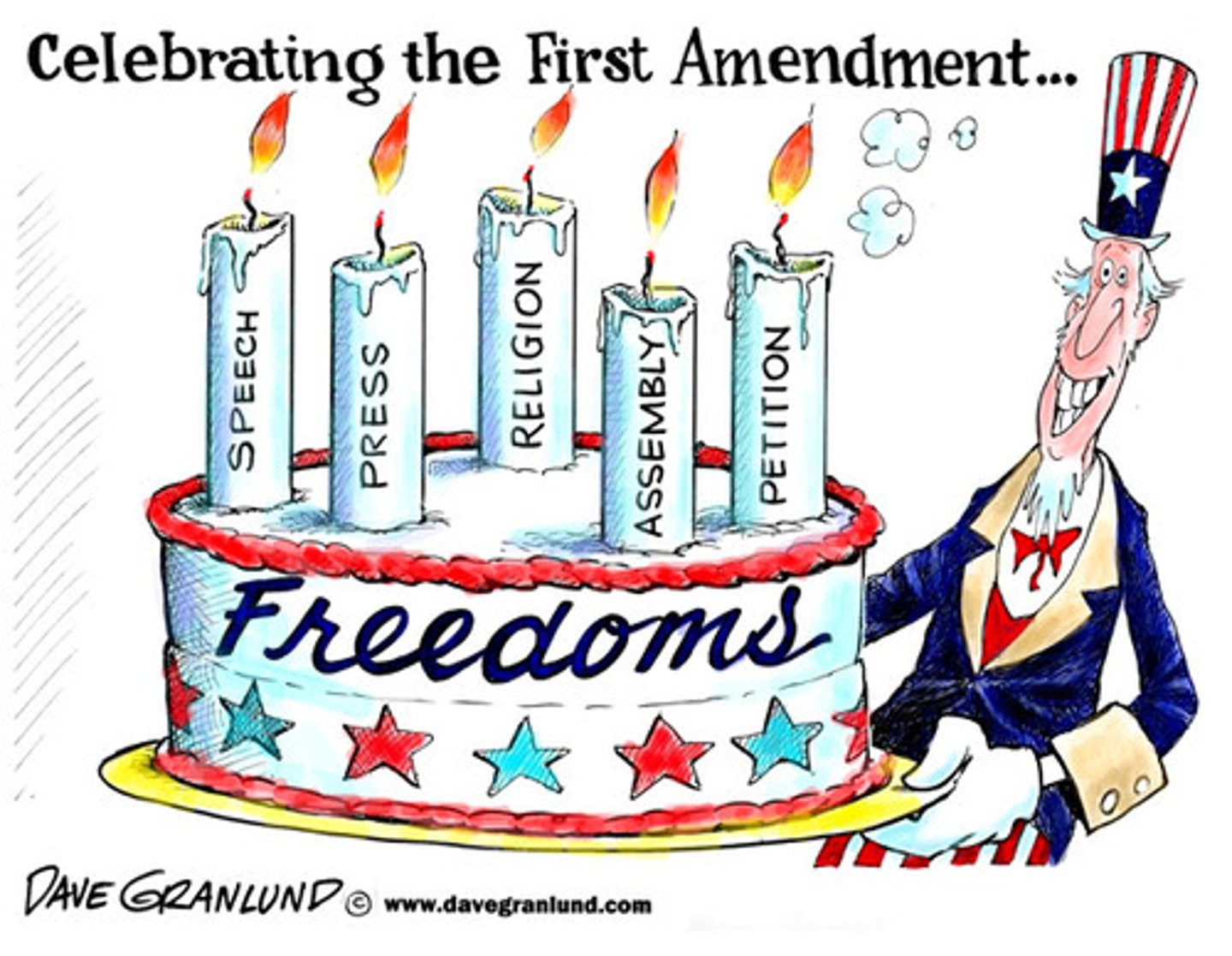
2nd Amendment
Right to bear arms

3rd Amendment
No quartering of soldiers
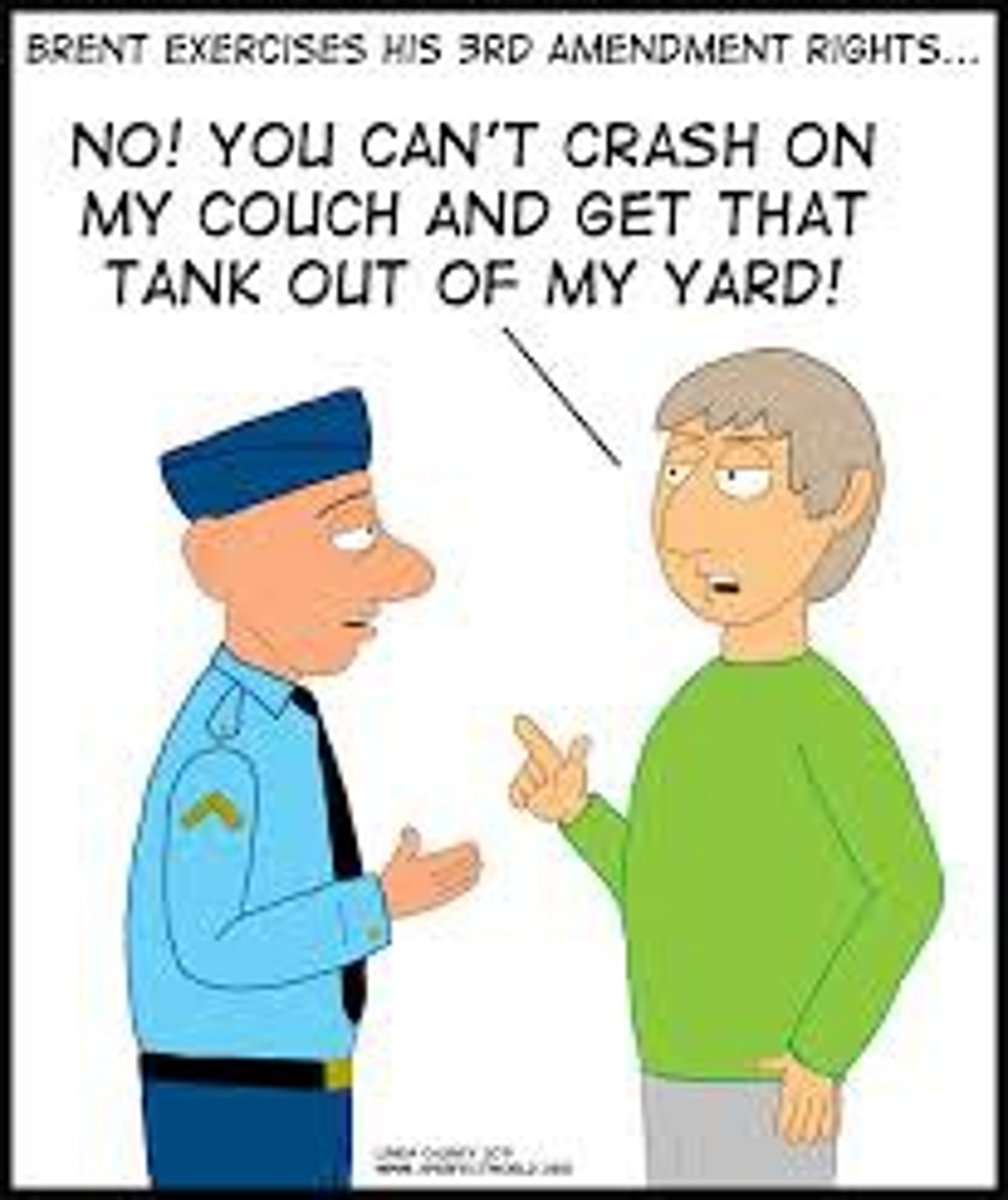
4th Amendment
Freedom from unreasonable searches and seizures
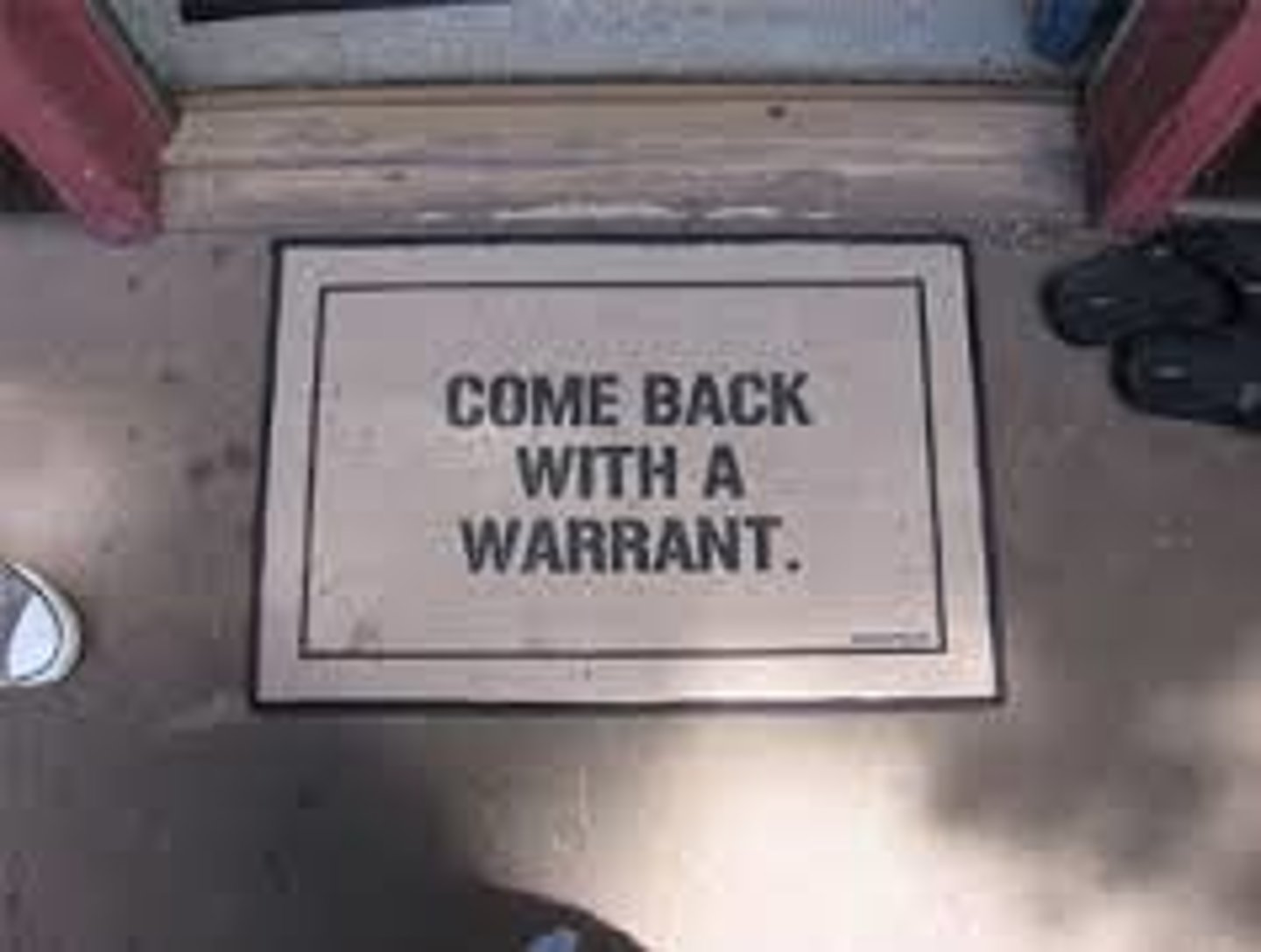
5th Amendment
Right to stay silent, indictment by grand jury. protection against double jeopardy, compensation for private property taken
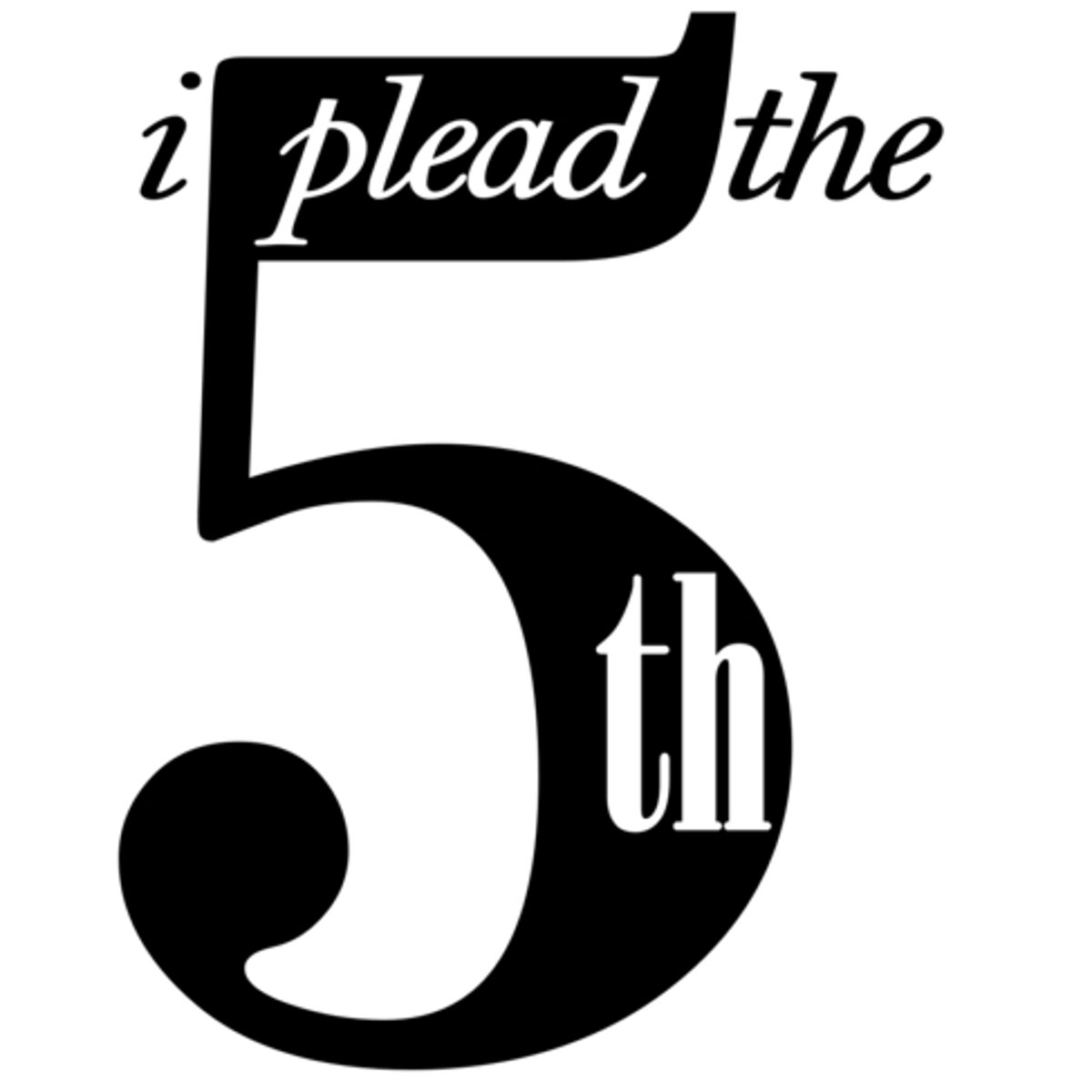
6th Amendment
Right to a speedy, public trial and impartial jury
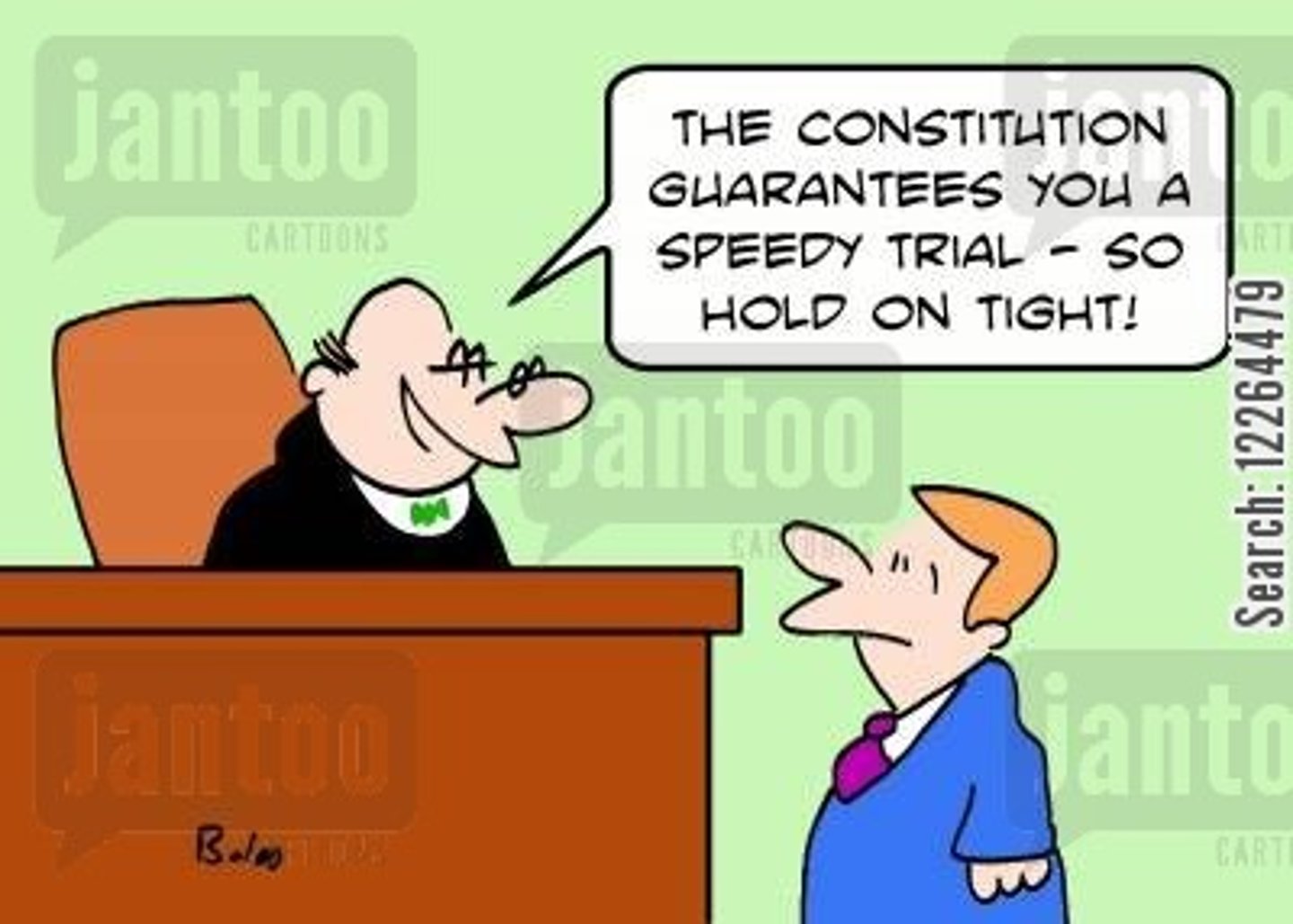
7th Amendment
Right to trial by jury
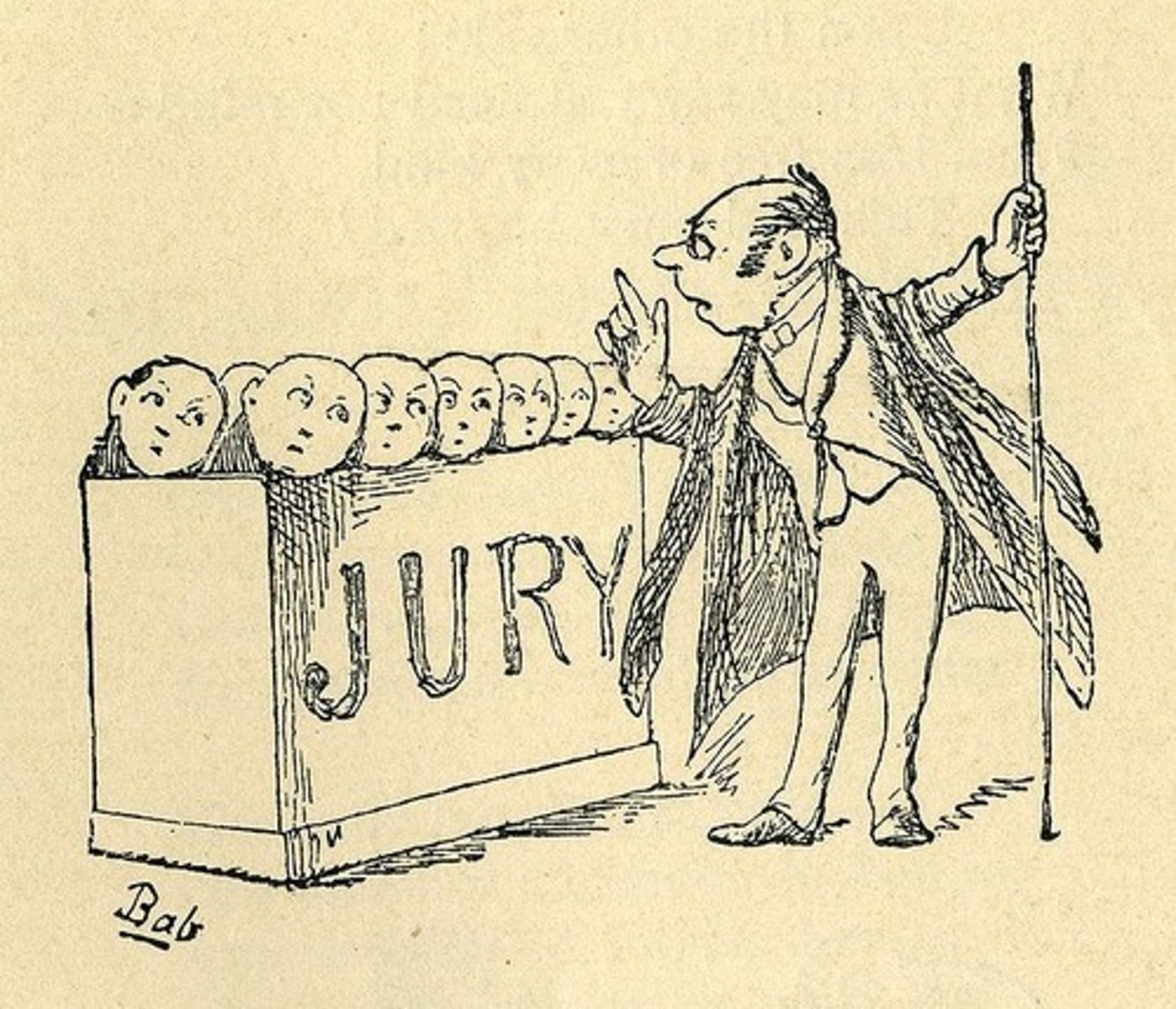
8th Amendment
No cruel or unusual punishment (including excessive bail)
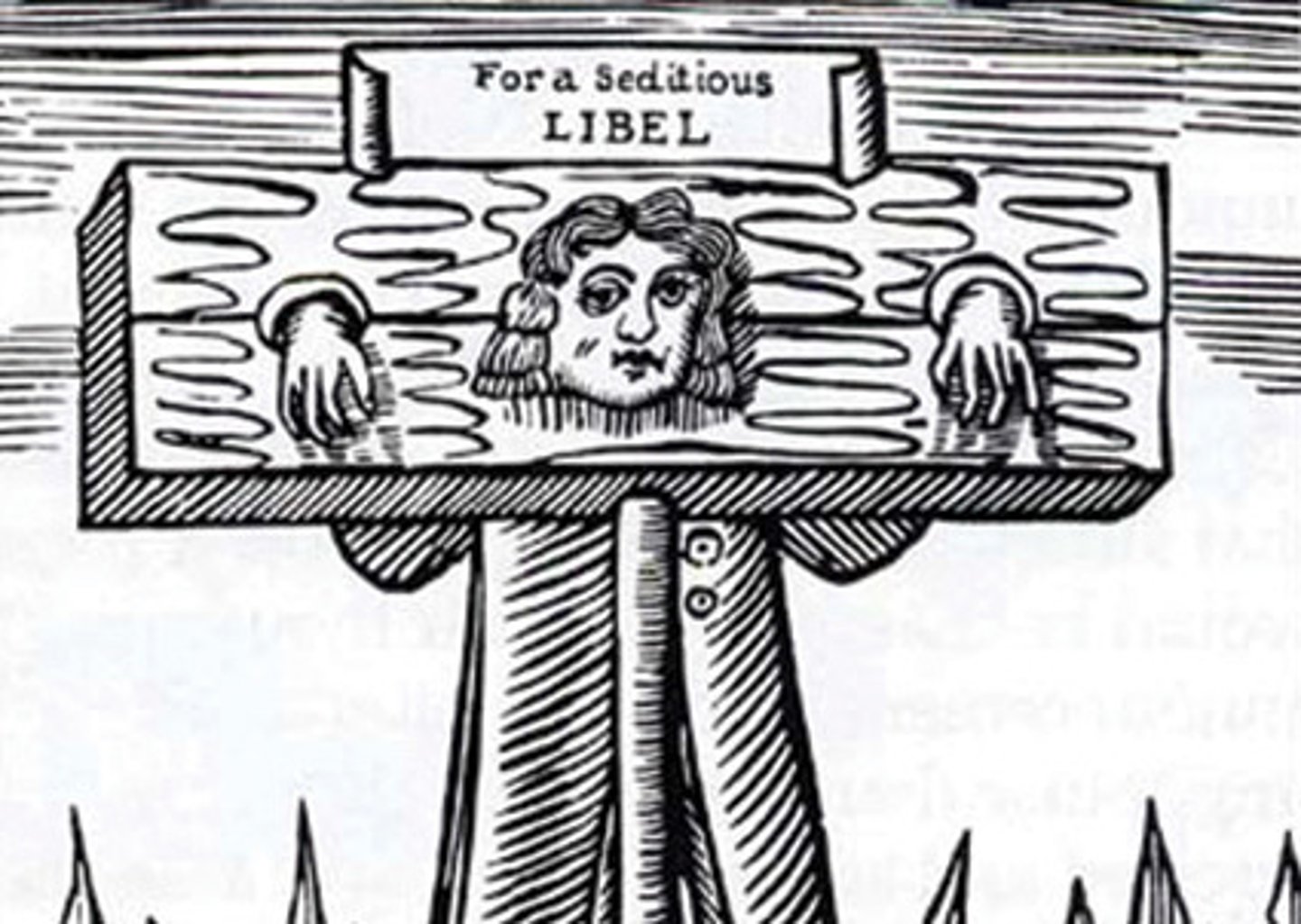
9th Amendment
Citizens entitled to rights not listed in the Constitution

10th Amendment
Powers not given to federal government go to people and States
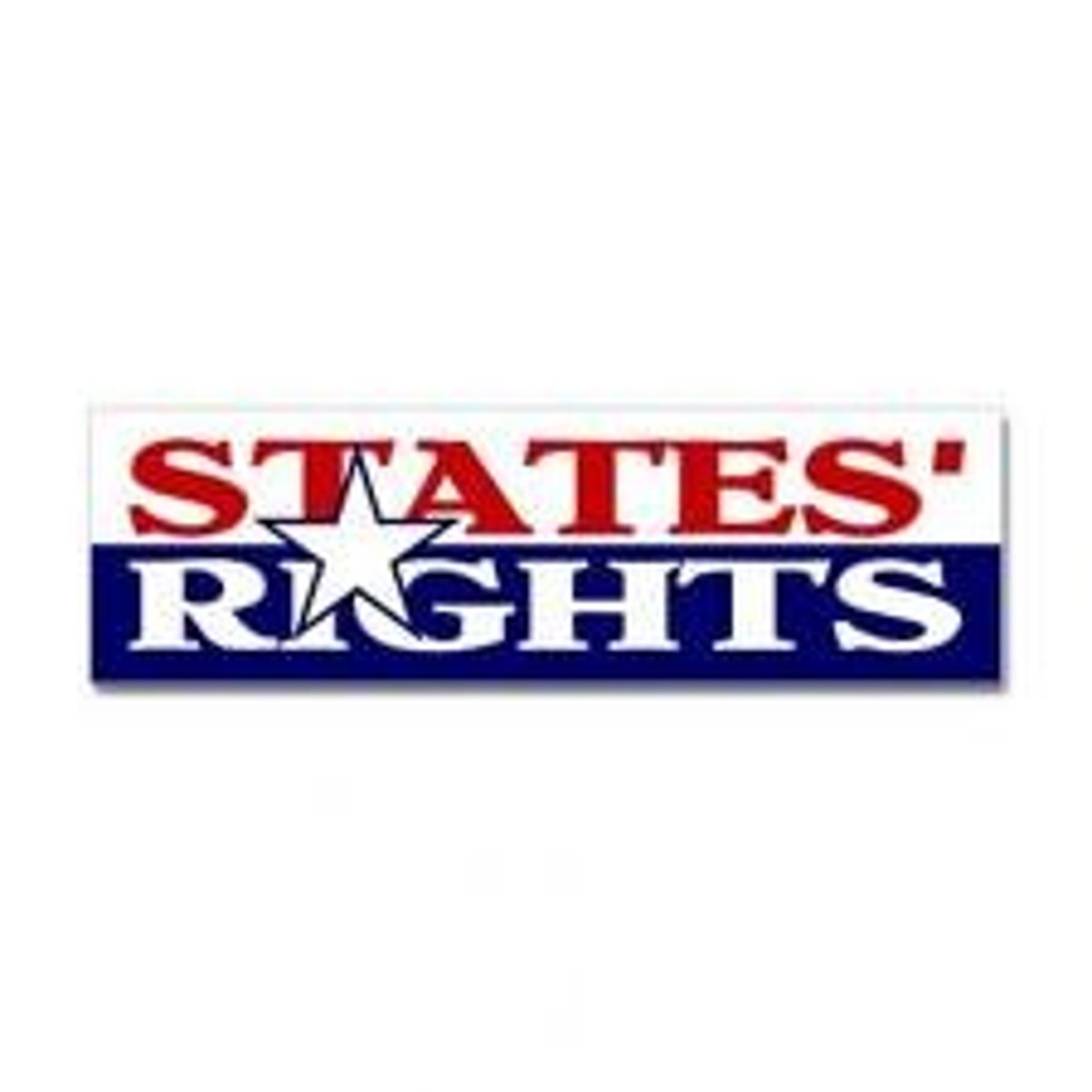
14th Amendment
Declares that all persons born in the U.S. are citizens and are guaranteed equal protection of the laws (equal protection clause and due process clause)
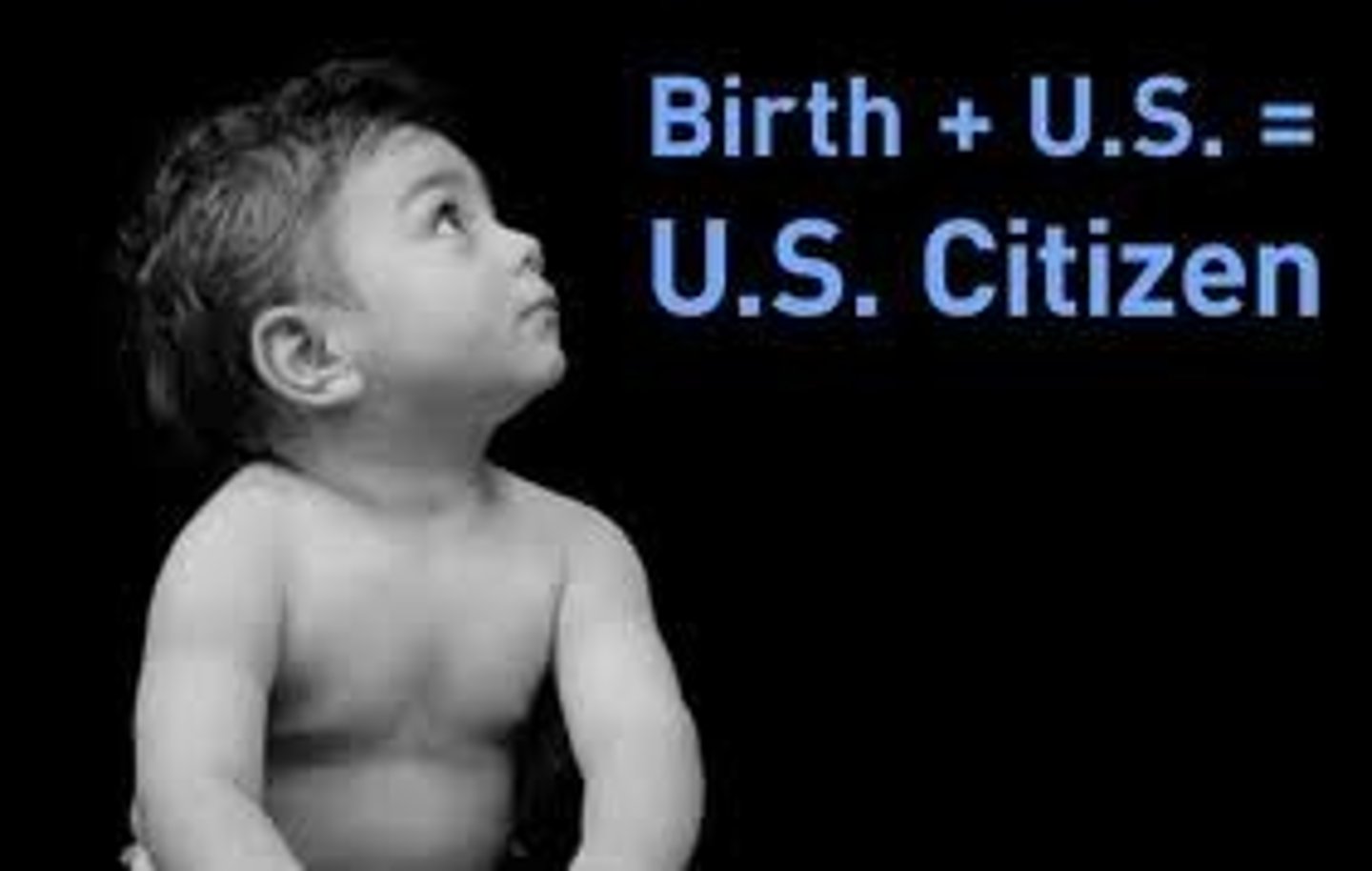
lemon test
three-pronged rule used by the courts to determine whether the establishment clause is violated (money must be secular, doesn't advance or inhibit religion, and no entanglement)
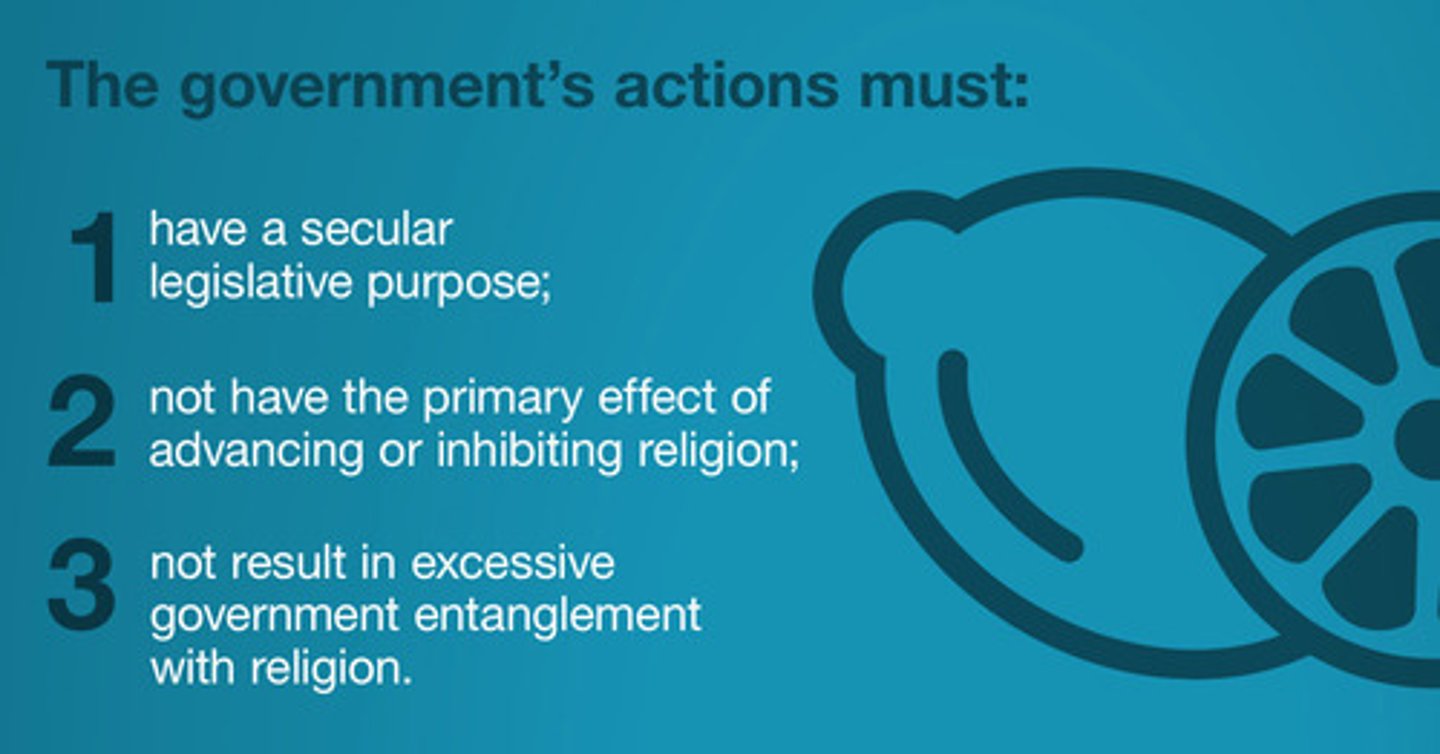
compelling governmental interest
a purpose important enough to justify the infringement of personal liberties
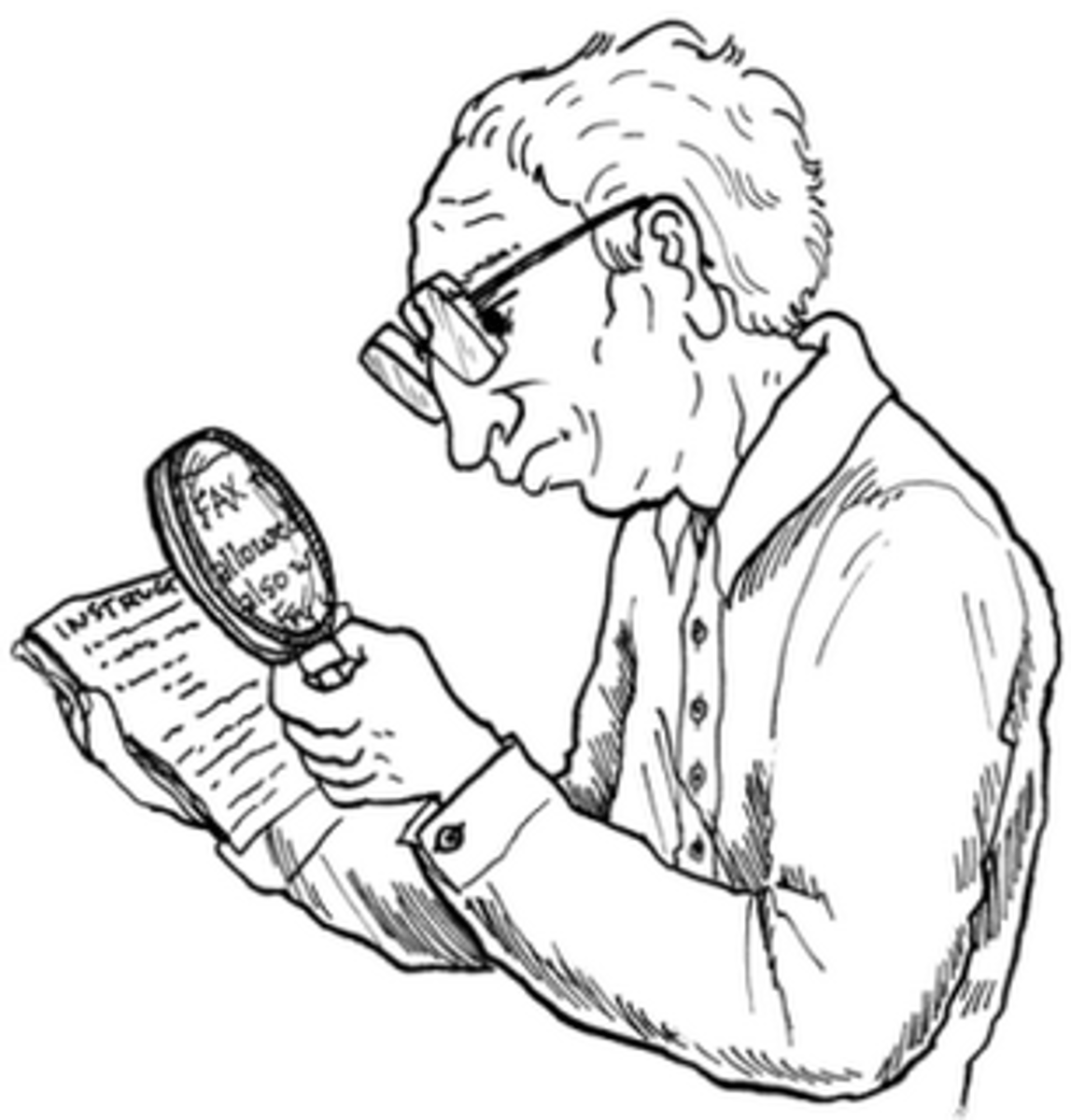
hate speech
words that attack groups such as racial, ethnic, religious, and sexual minorities
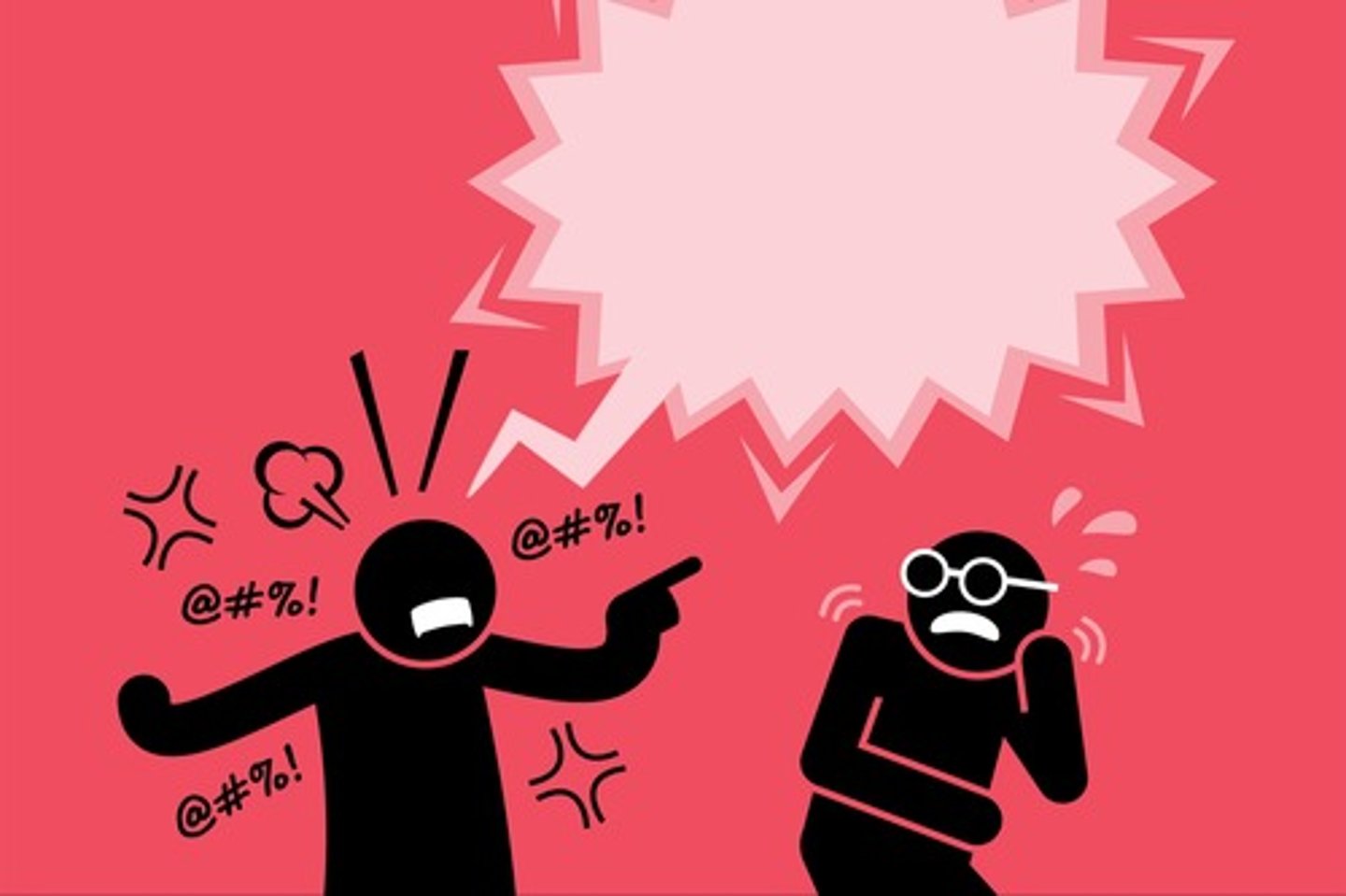
miller test
The current judicial test for obscenity cases that considers community standards, whether the material is patently offensive, and whether the material taken as a whole lacks serious literary, artistic, political, or scientific value.
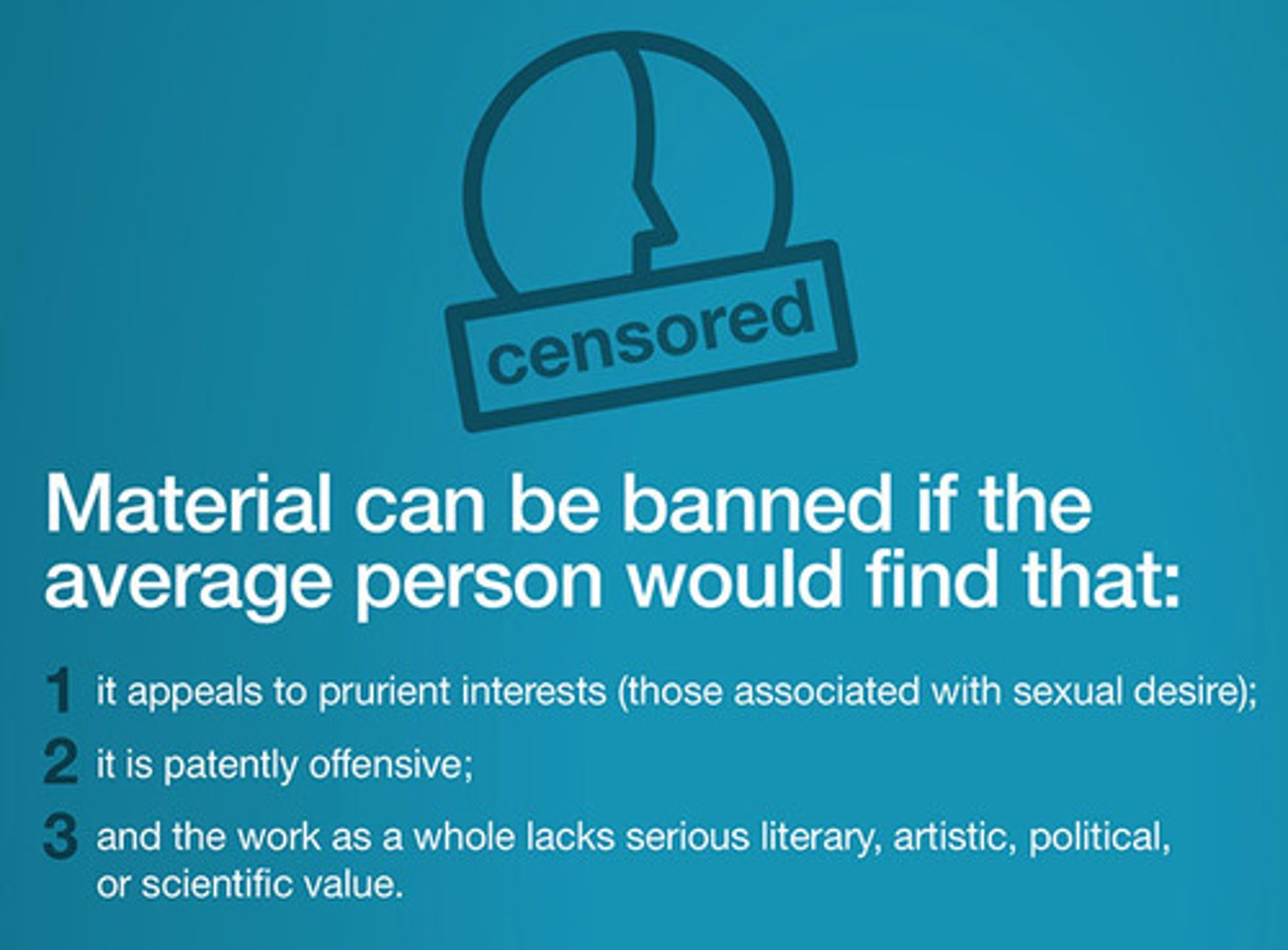
Time, Place, and Manner
Limits that government can impose on the occasion, location, and type of individual expression in some circumstances.
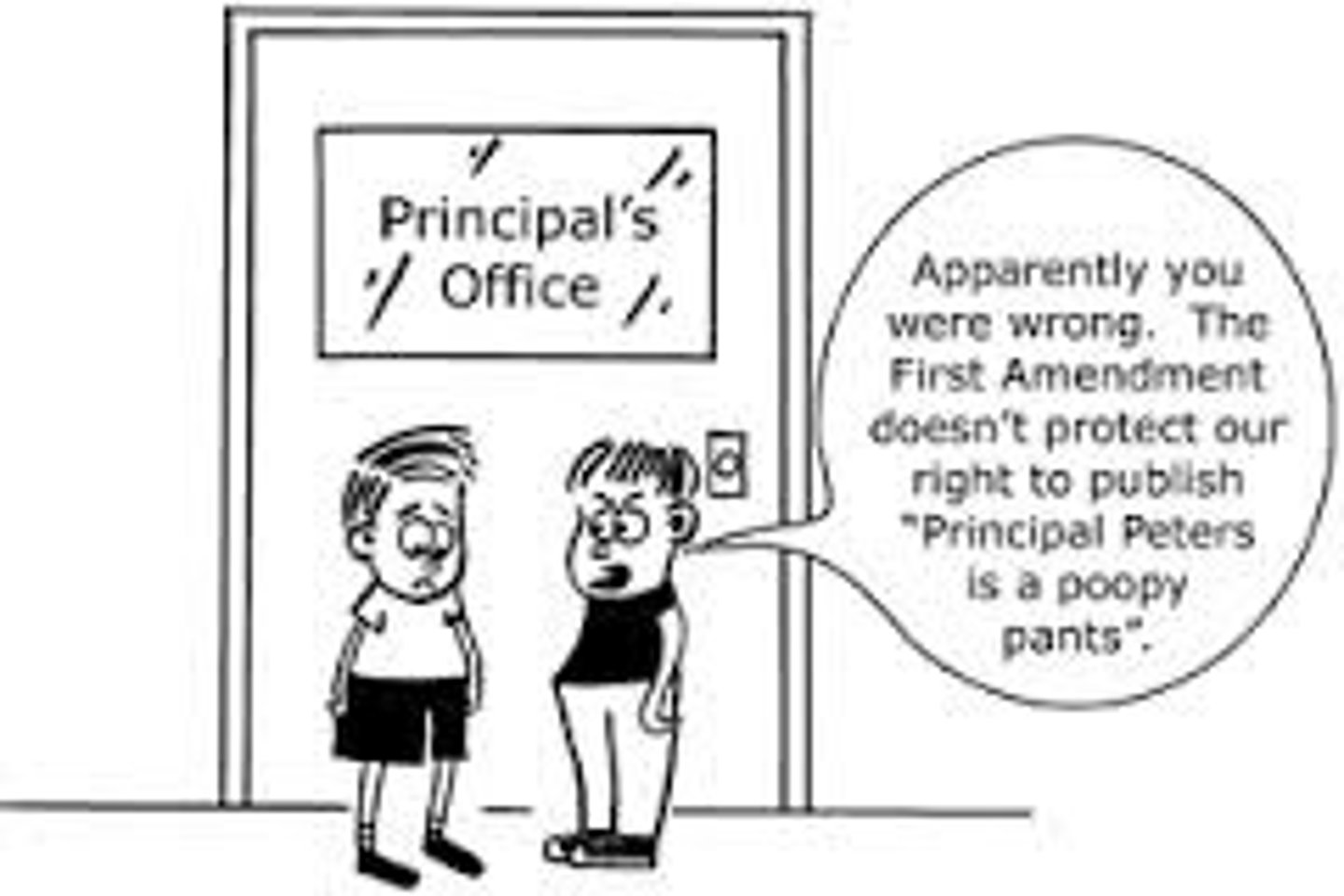
District of Columbia v. Heller (2008)
Ruled the 2nd Amendment protects an individual's right to possess a firearm for lawful, private use -- OFTEN USED IN COMPARISON WITH MCDONALD V. CHICAGO
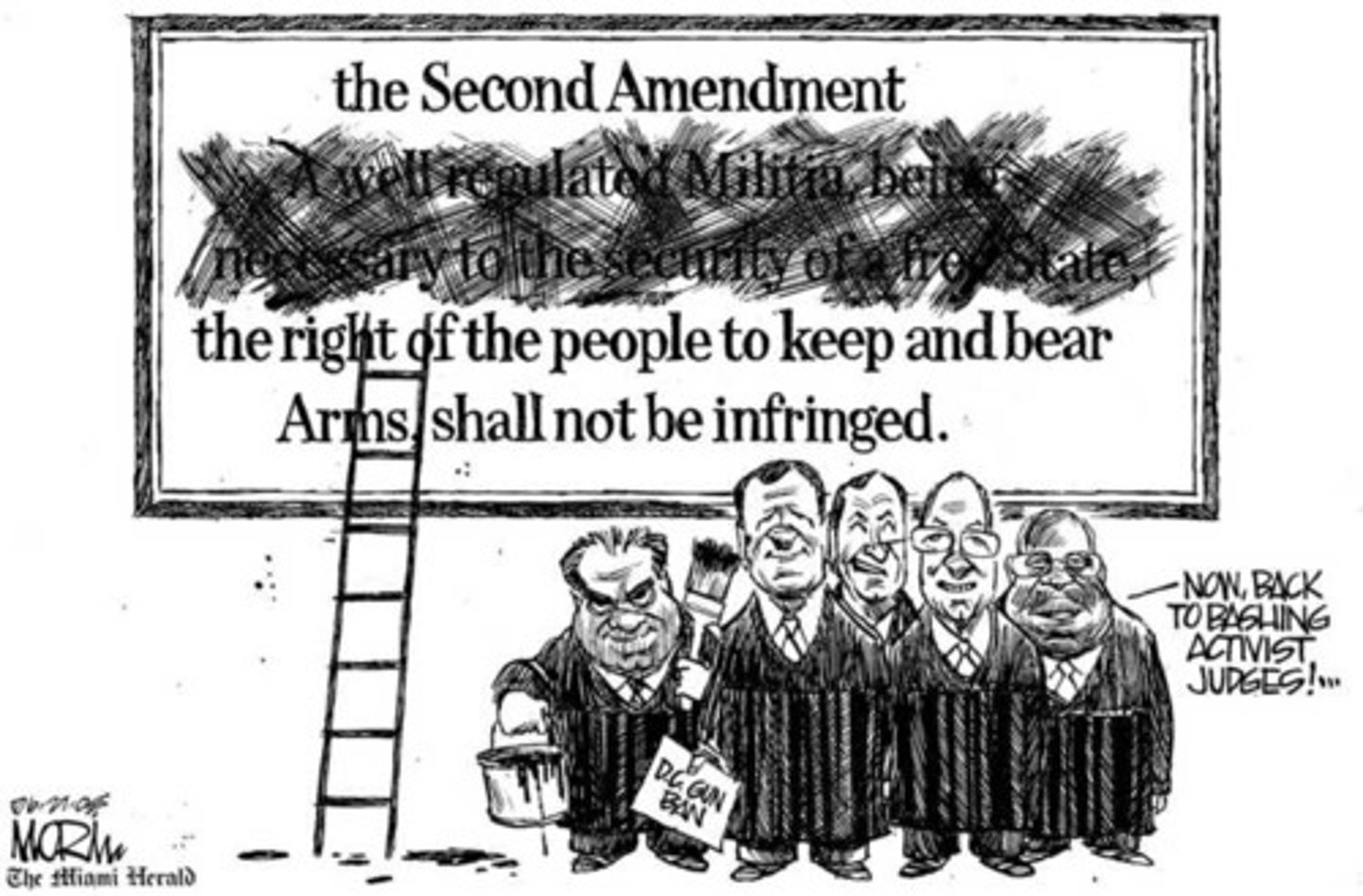
bills of attainder
when the legislature declares someone guilty without a trial

ex post facto
a law that makes an act criminal although the act was legal when it was committed
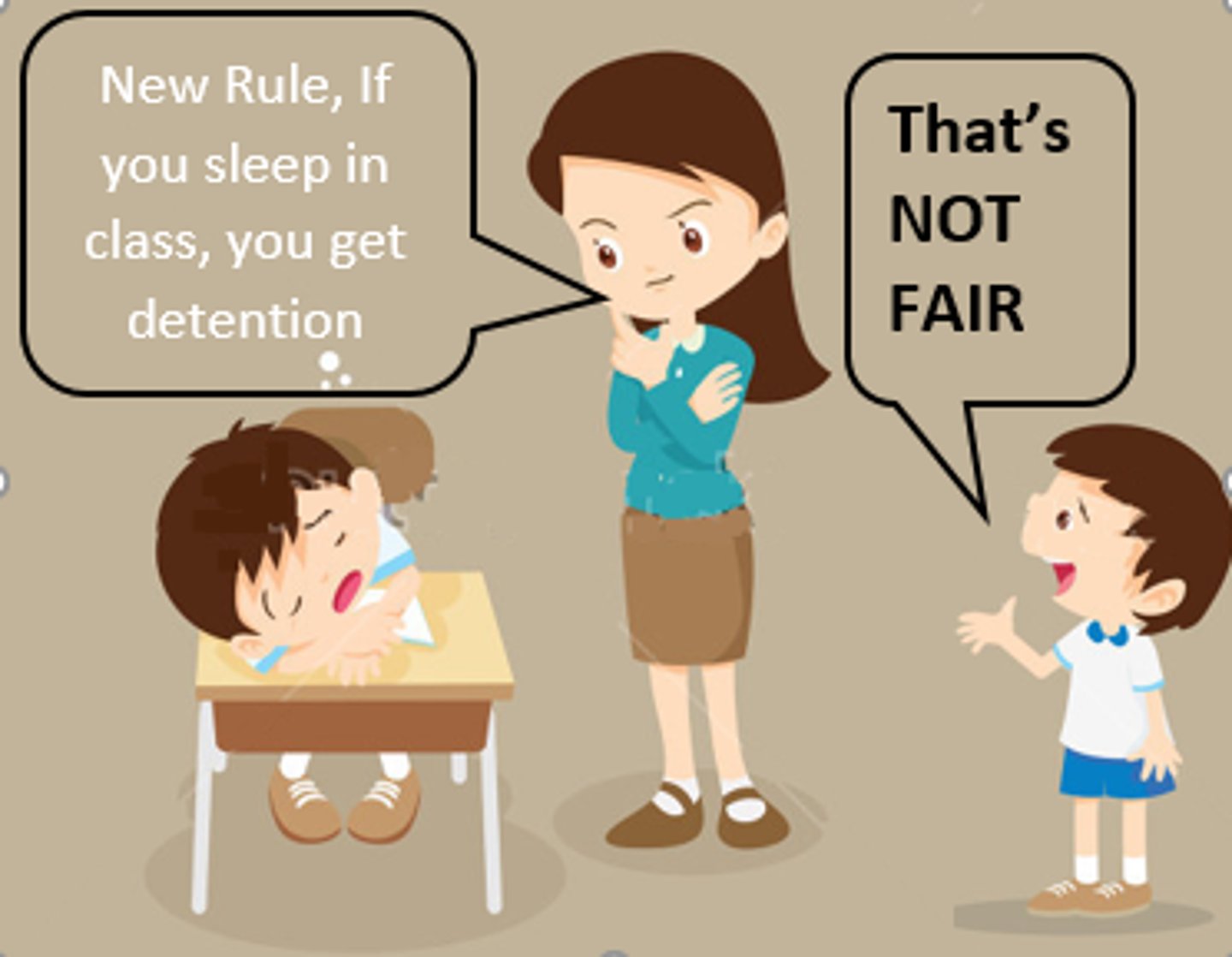
writ of habeas corpus
A court order requiring explanation to a judge why a prisoner is being held in custody.
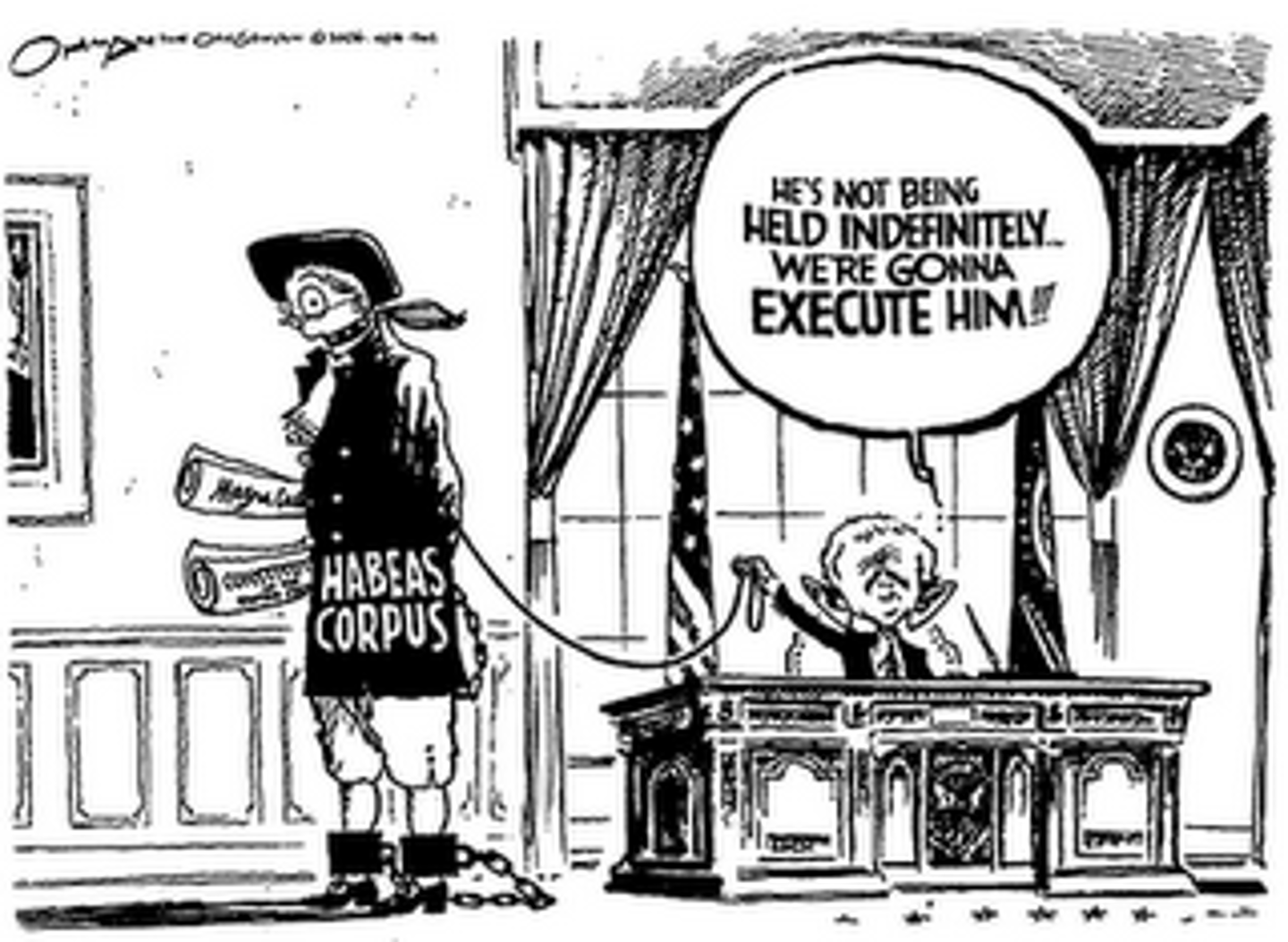
19th Amendment
Gave women the right to vote
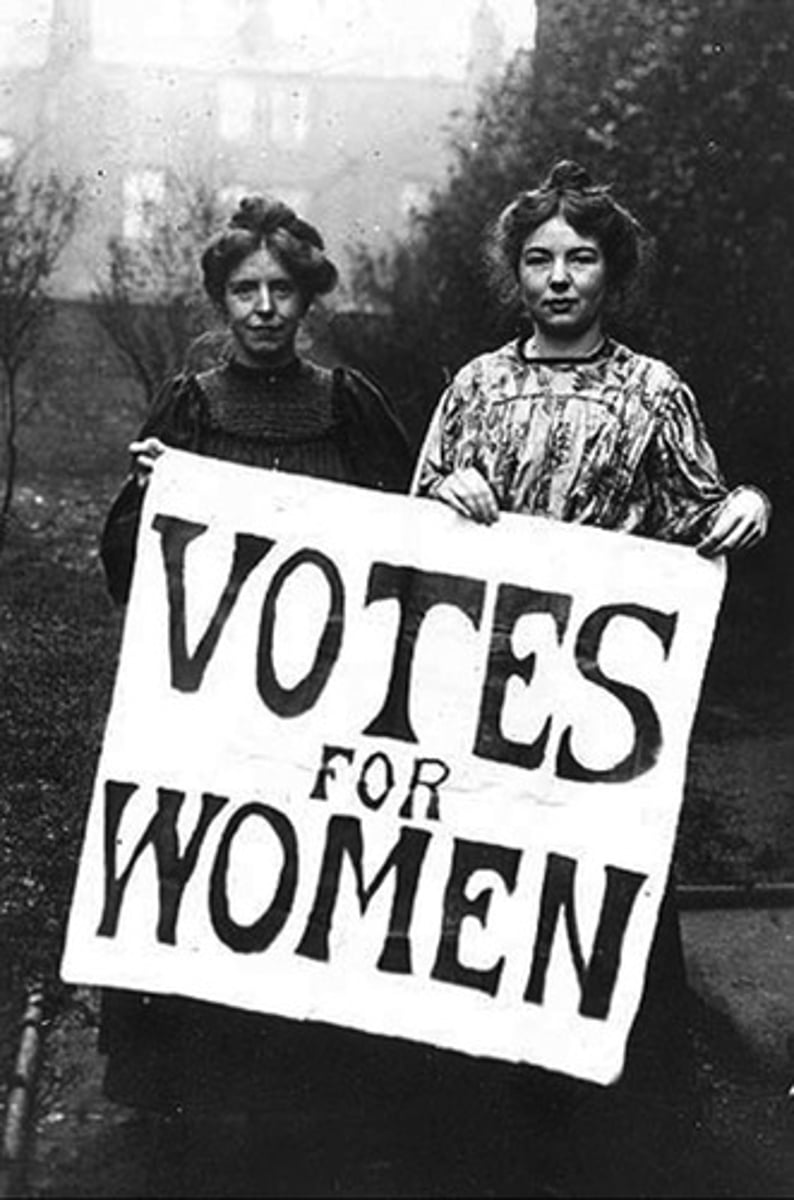
National Organization for Women (NOW)
Economic and political organization for women's equal rights to men
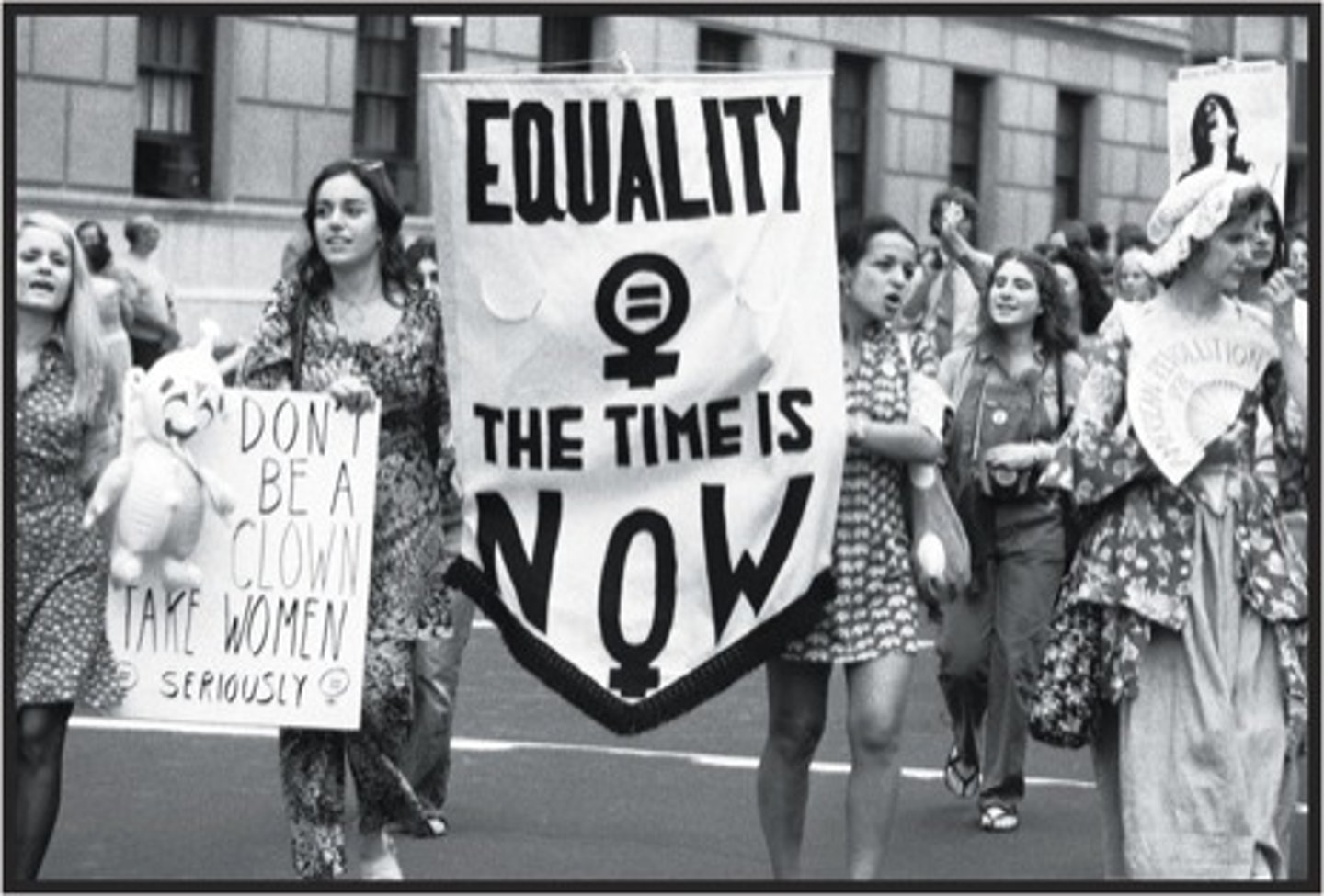
Title IX
A law that bans gender discrimination in schools that receive federal funds
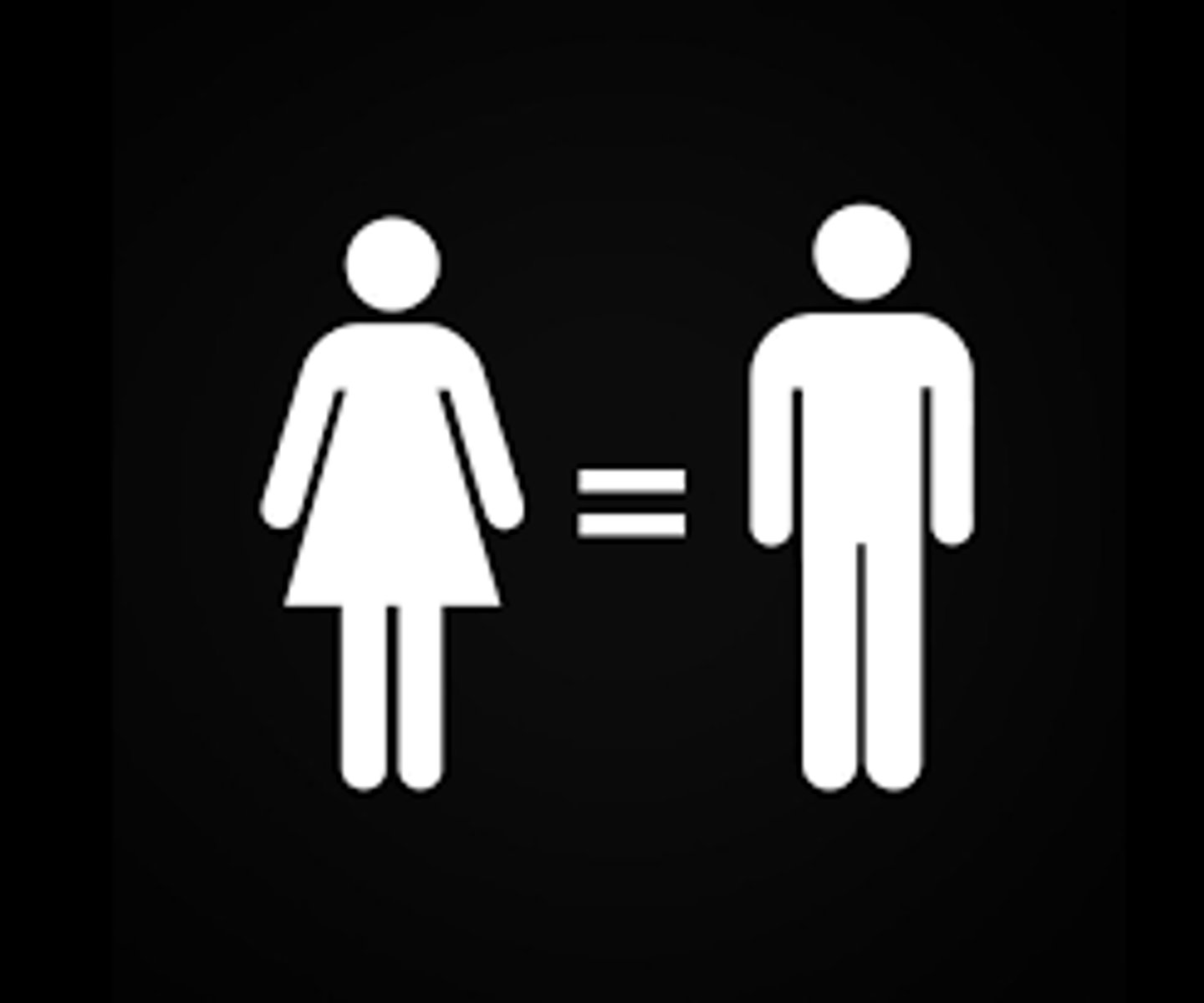
Equal Rights Amendment
constitutional amendment passed by Congress but never ratified that would have banned discrimination on the basis of gender
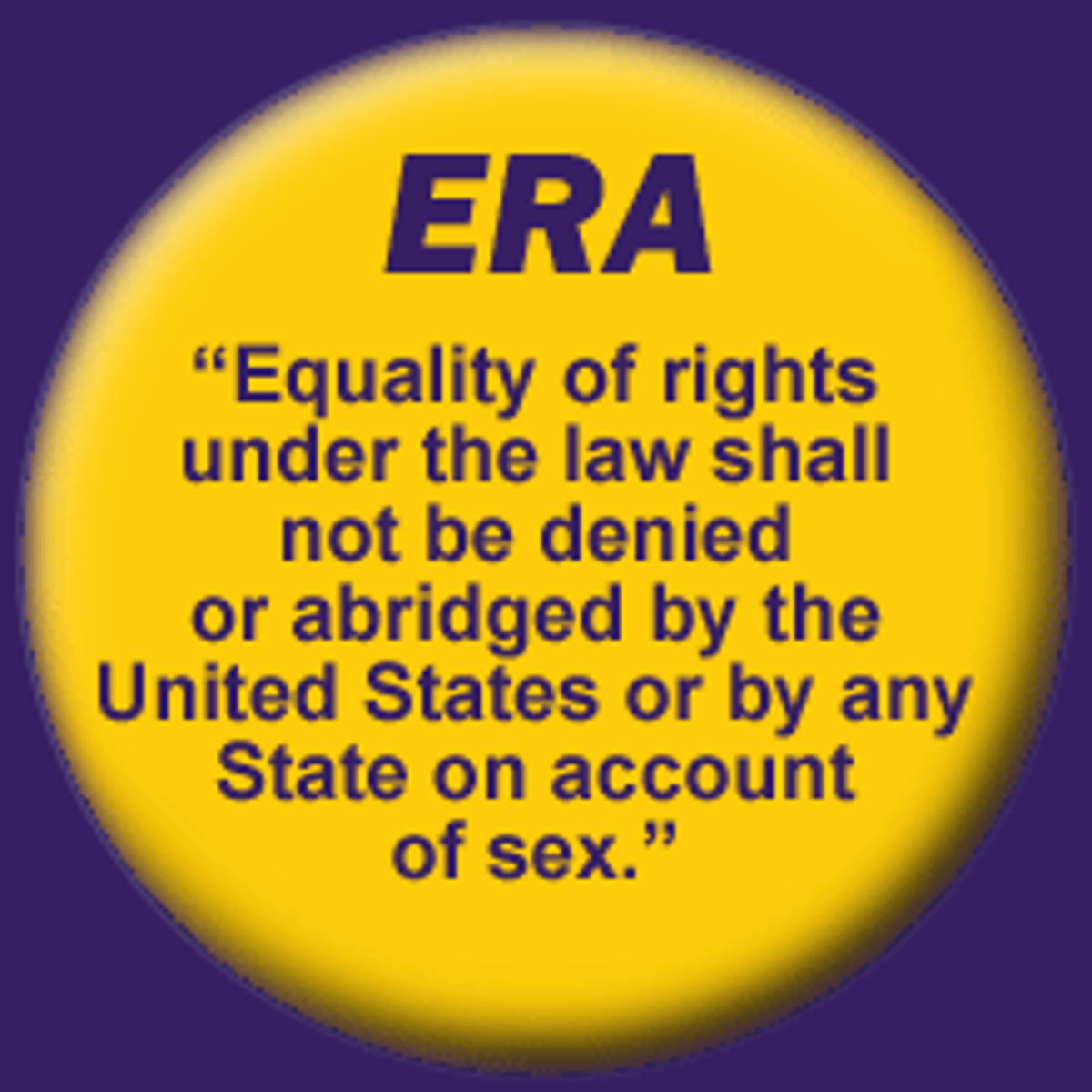
Americans with Disabilities Act (1990)
Major anti-discrimination law for disabled; requires access (ramps, braille, etc.); unfunded mandate
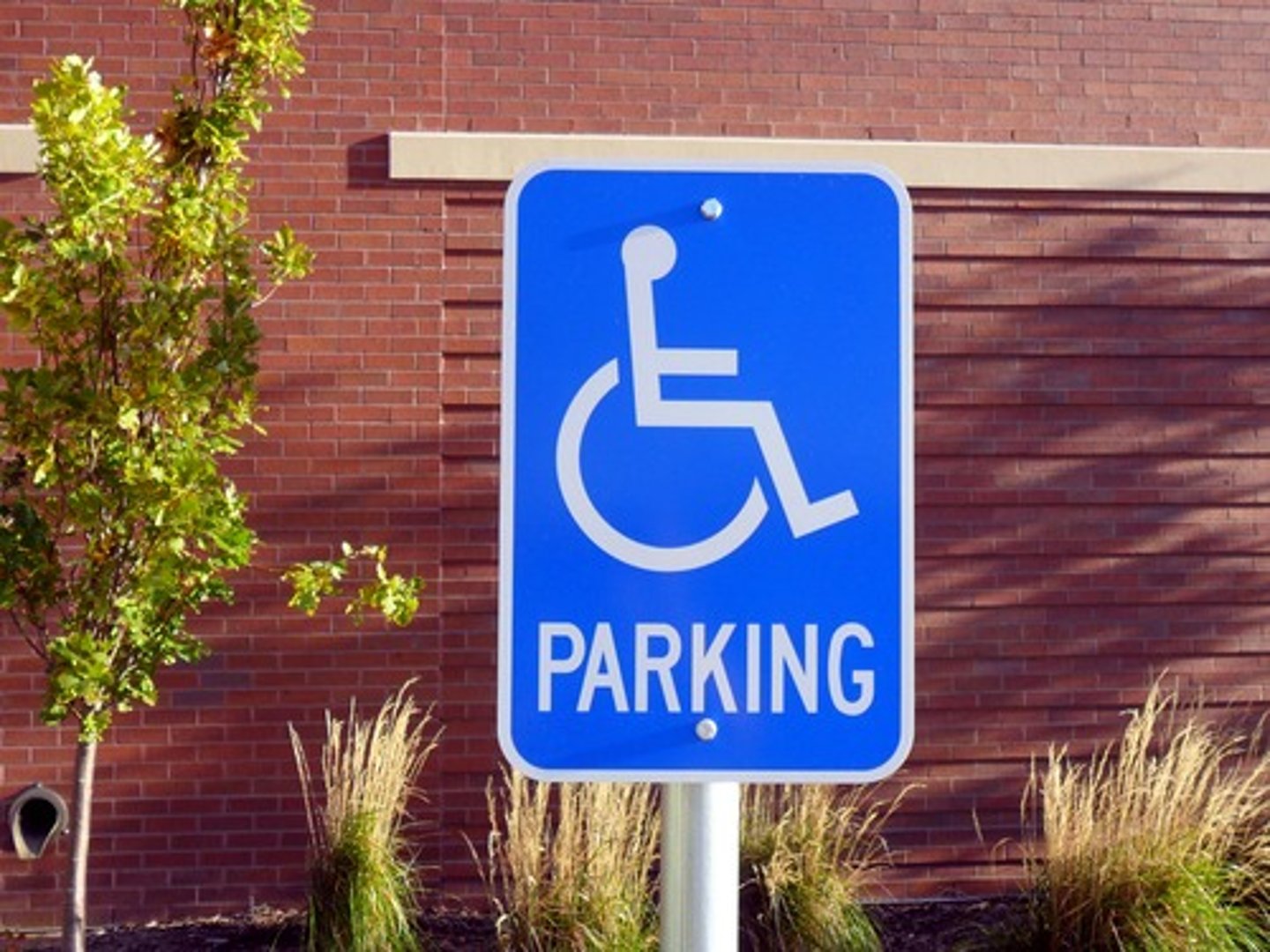
15th Amendment
States cannot deny any person the right to vote because of race.
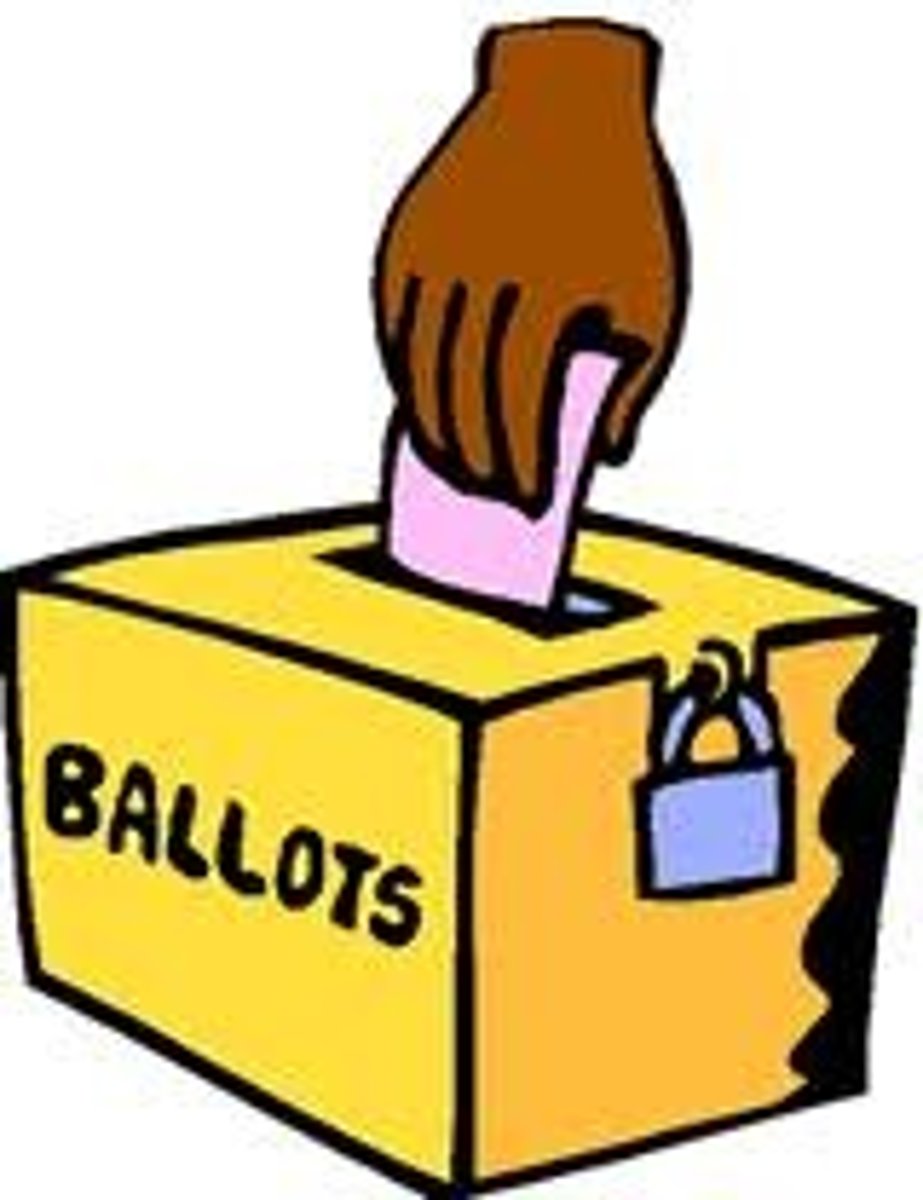
Regents of the University of California v. Bakke (1978)
SCOTUS struck down university quota systems, but upheld affirmative action
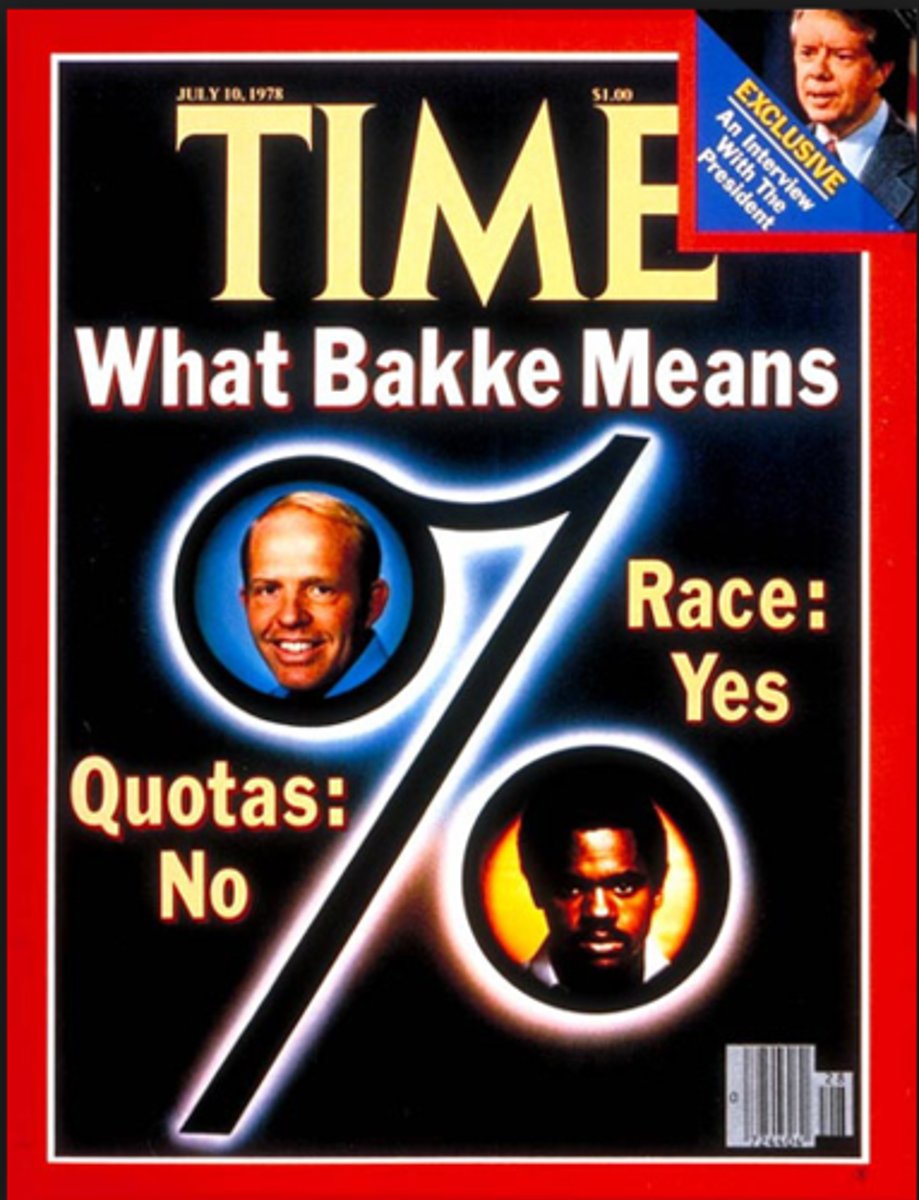
Gratz v. Bollinger (2003)
Struck down use of "bonus points" for race in undergrad admissions at University of Michigan.
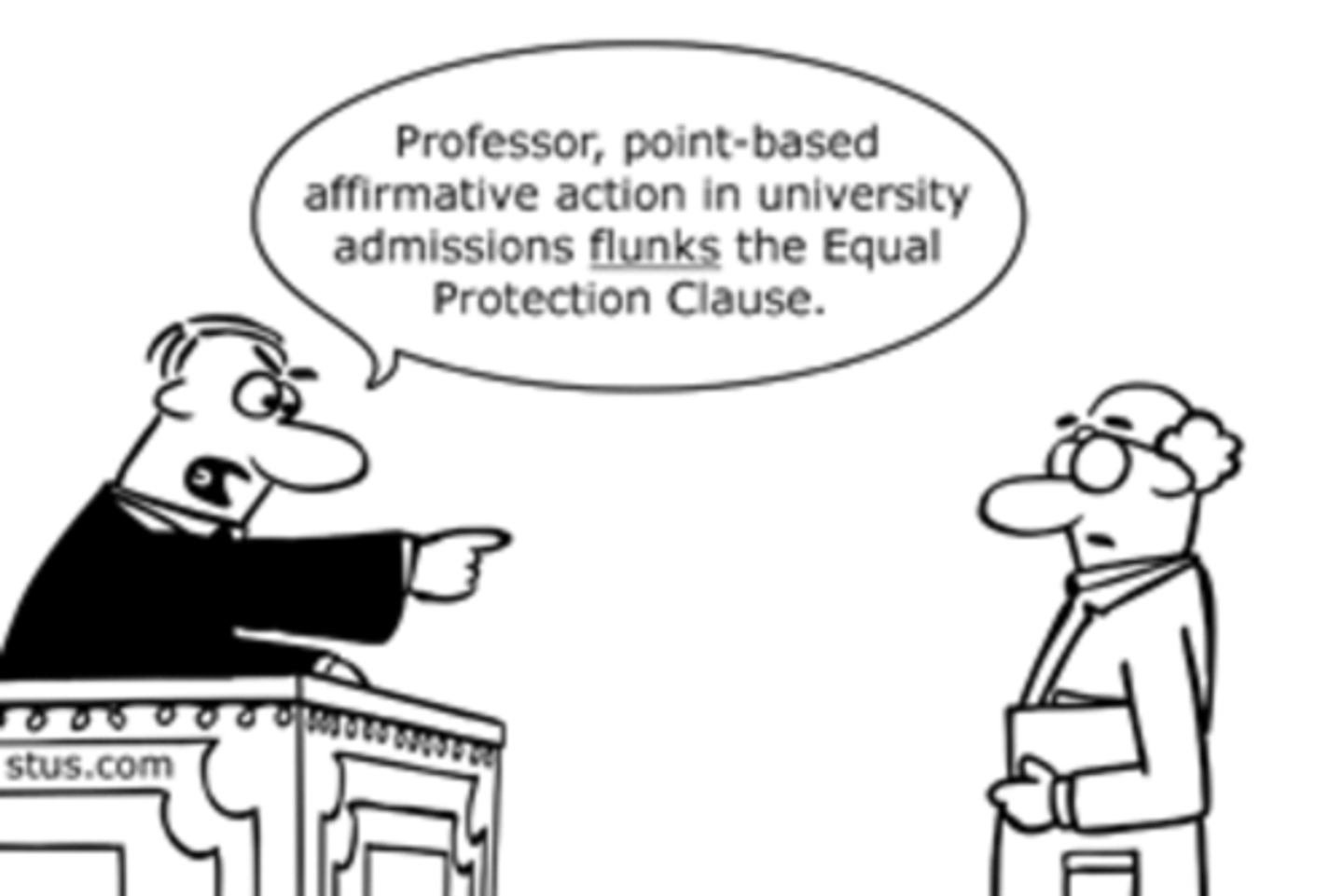
Students for Fair Admissions v. Harvard (2023)
college admissions can consider race when it comes to an individual's experience, but they should be treated on their experiences, not on the basis of race
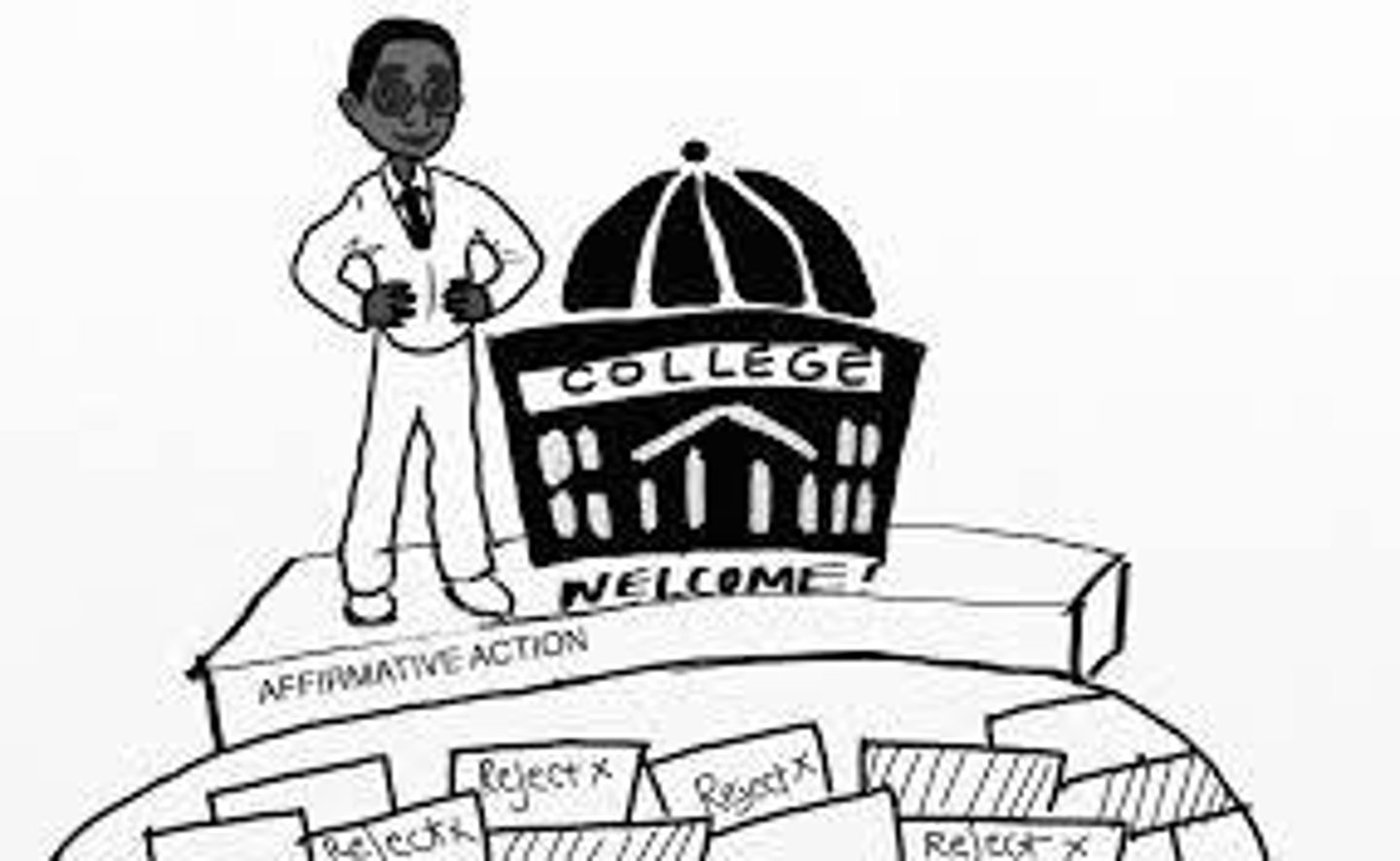
Marbury v. Madison (1803)
Post the Election of 1800, John Adams appointed a bunch of "midnight judges" in the last hours of his presidency
Jefferson, once he took office, didn't send any of the commissions to those judges, causing a judge, William Marbury, to sue the executive branch
Caused a lot of debate about whether or not Marbury should get his commission as this type of original jurisdiction is not allotted to the SCOTUS in the Constitution
Created the idea of judicial review = judges have the power to deem laws unconstitutional and cannot enforce it
Expanded the power of the federal court
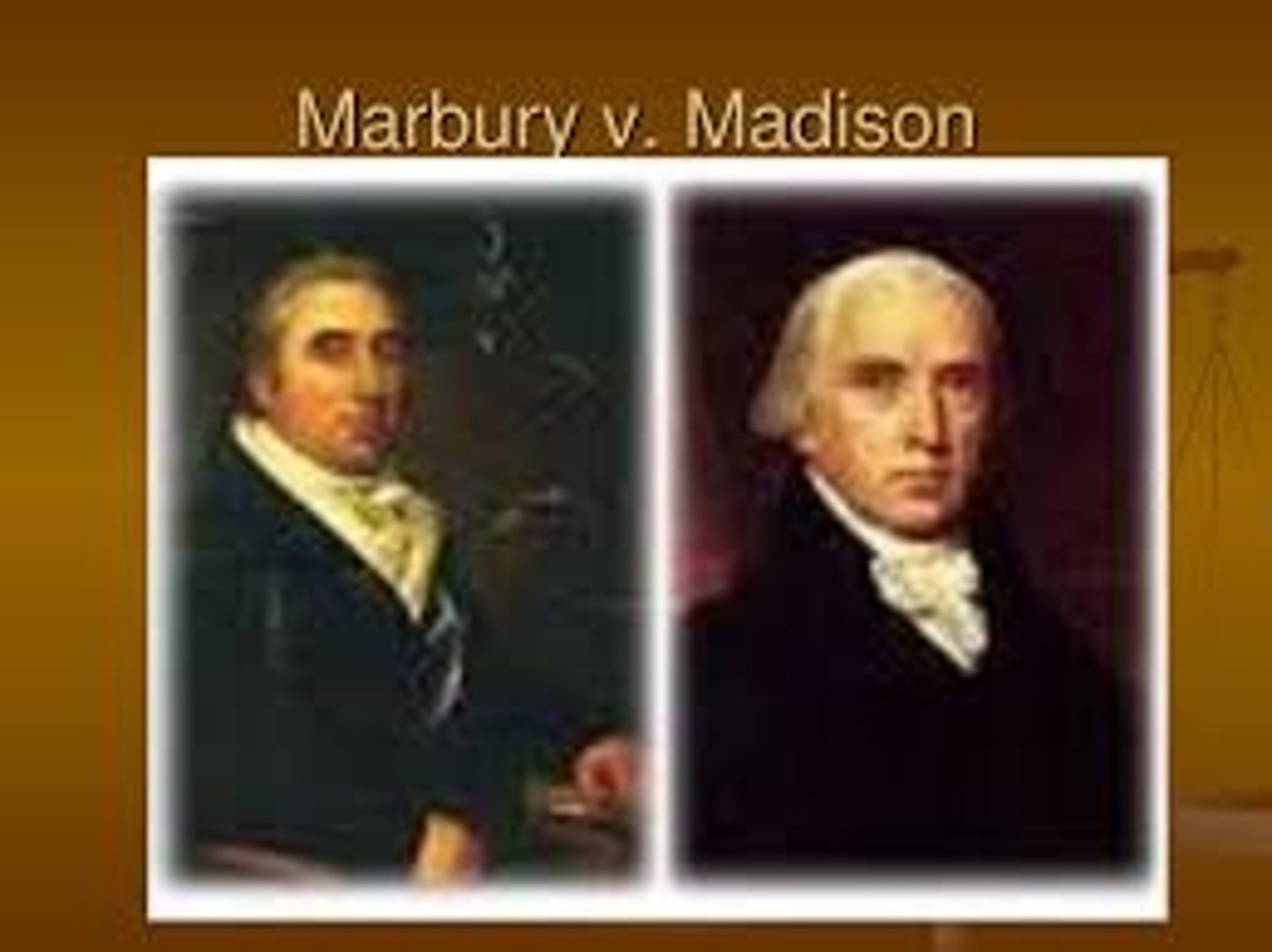
McCulloch v. Maryland (1819)
Issues about having a federally chartered bank in a state →Is it also able to get taxed by the state like other banks...
James McCulloch = Head of the Baltimore branch of the Second National Bank of the United States
Unanimous decision by SCOTUS
Questions with Answers:
Does the federal government have the power to charter a national bank?
YES!! Necessary and Proper Clause: Bank is needed to issue and coin money
Can a state tax it?
NO!! Supremacy Clause: Federal > State ALL DAY ANY DAY
Created a shift towards more federal power over state power during a time when there was a lot of debate b/w Federalists and Anti-Federalists
Chief Justice John Marshall:
Anything the gov does IS constitutional as long as it not officially banned by the Constitution
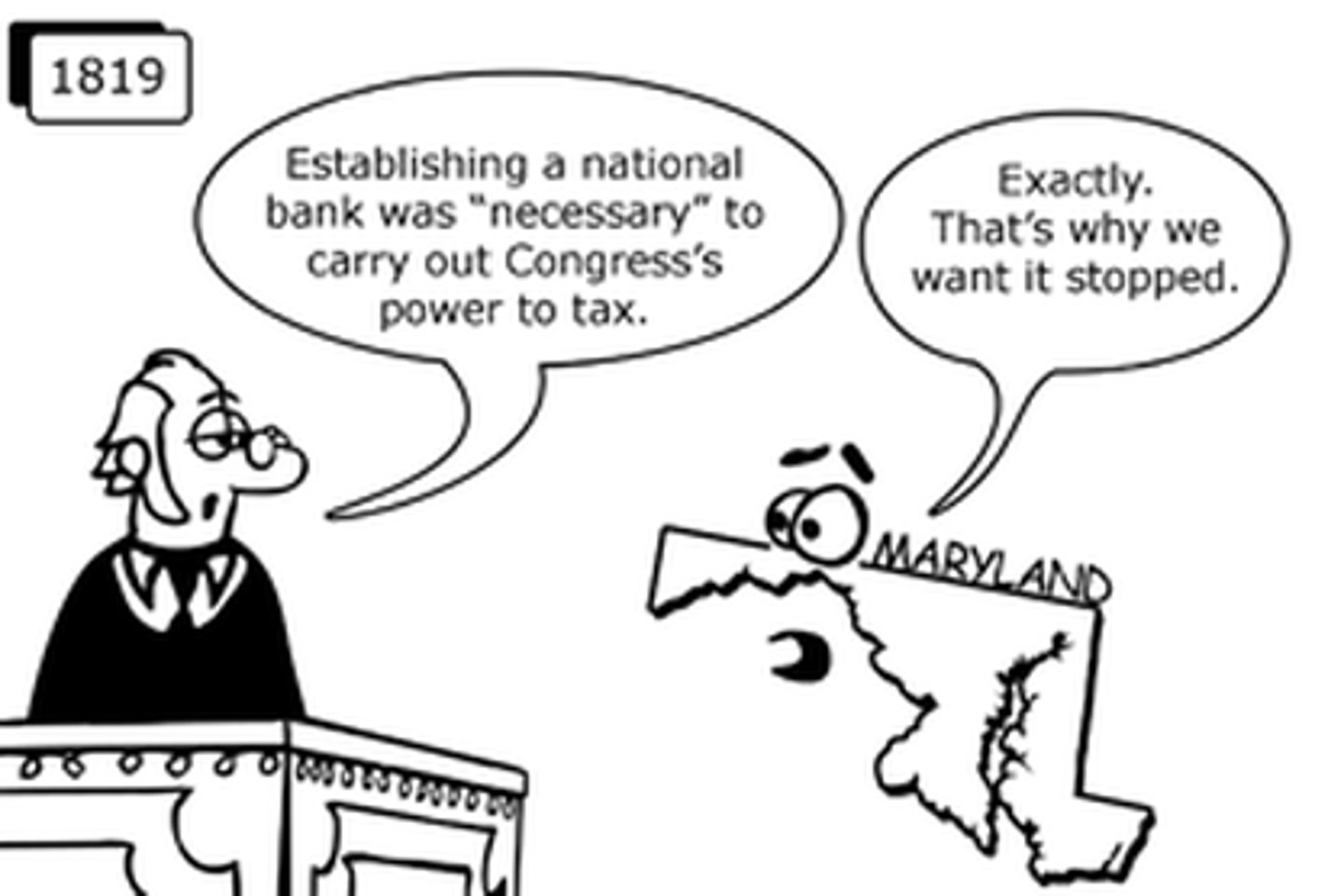
Schenck v. United States (1919)
Schenck and his female friend were giving out pamphlets during WWI urging drafted men to not go to war
Were arrested under the Espionage Act stating that they were bringing harm to the war
Schenck sued stating that this violated his freedom of speech
Court did NOT rule in favor of Schenck stating that his actions presented "clear and present danger"
Created "Clear and present danger" test which helped future freedom of speech cases
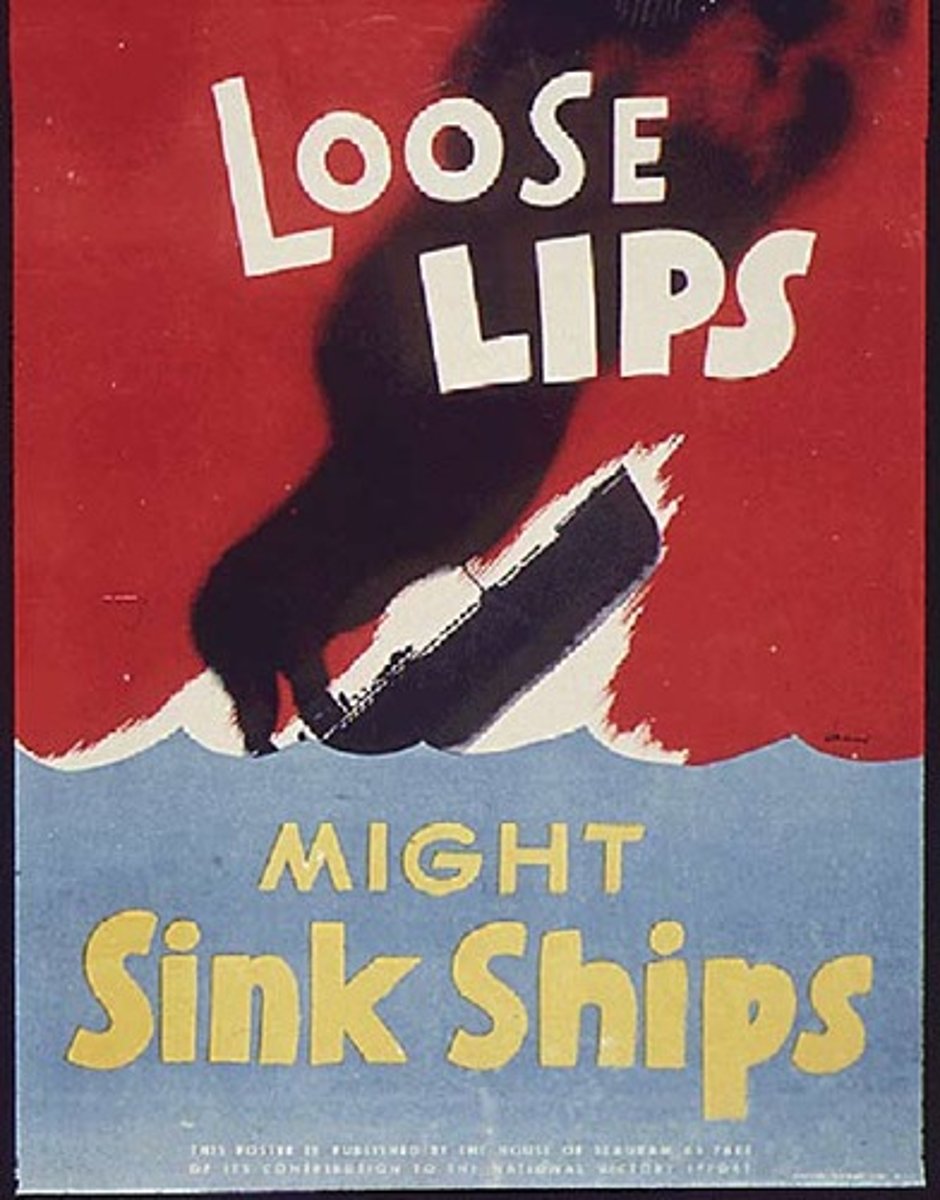
Brown v. Board of Education of Topeka (1954)
Oliver Brown's daughter, Linda, went to a faraway school that was segregated, and not the school closest to their home
Sued the BOE of Topeka citing the Equal protection clause of the 14th amendment
SCOTUS sided with Brown stating that the "separate but equal" doctrine placed by Plessy v Ferguson was indeed unconstitutional, and that it was unconstitutional to have racist segregation in a school environment
This overturning of Plessy helped expand desegregation to other spheres in the country
Monumental case in the Civil Rights movement
The dividing point in America of Past vs Present
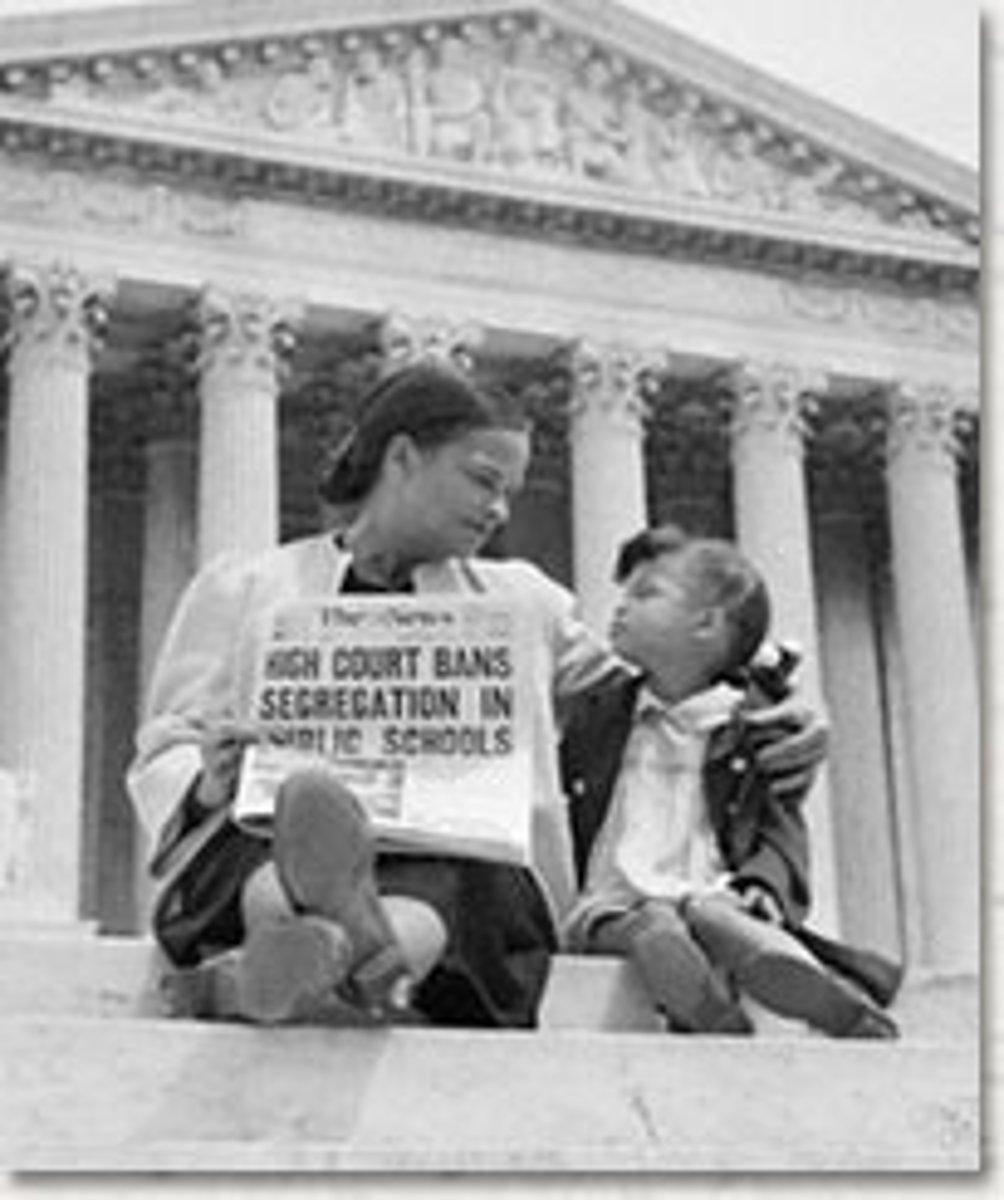
Baker v. Carr (1961)
Tennessee had not redrawn its congressional districts in over 60 years
Was told to redraw it as urban pop was increasing and Tennessee refused
Violated the 14th amendment's Equal Protection Clause
All people should be equal under the law
The districts apportionment was not equal population-wise so a group of 500 people had the same vote as a group of 10000 people
Created the law that congressional districts had to approximately have the same population so Equal Protection occurs
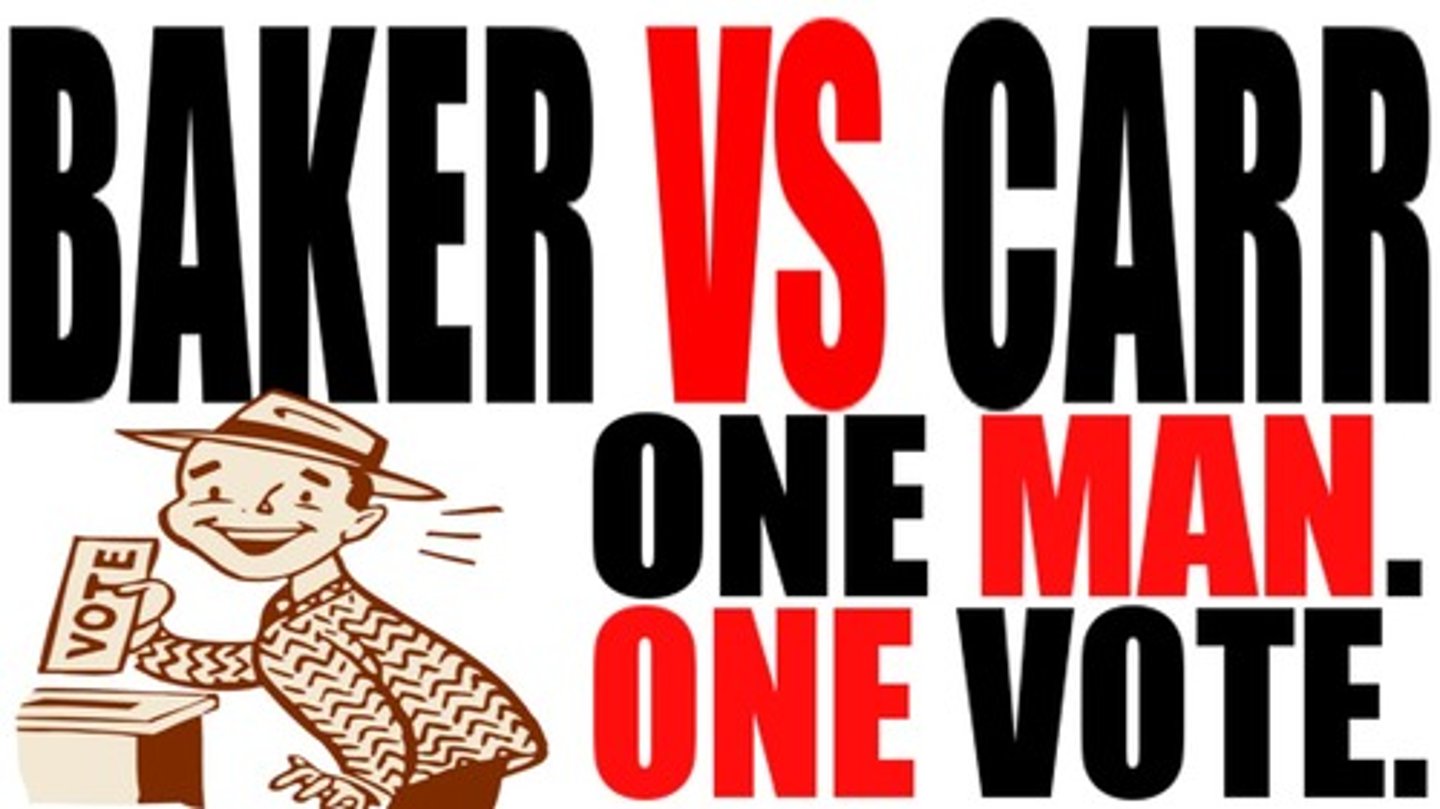
Engel v. Vitale (1962)
New York Board of Regents had a voluntary prayer that happened in schools every morning
Some parents got mad and sued saying this violated the Establishment Clause
SCOTUS ruled in favor of parents stating that no kind of prayer, even a nondenominational one, is needed in an educational setting
Demonstrated how court ruled in favor of individual liberties
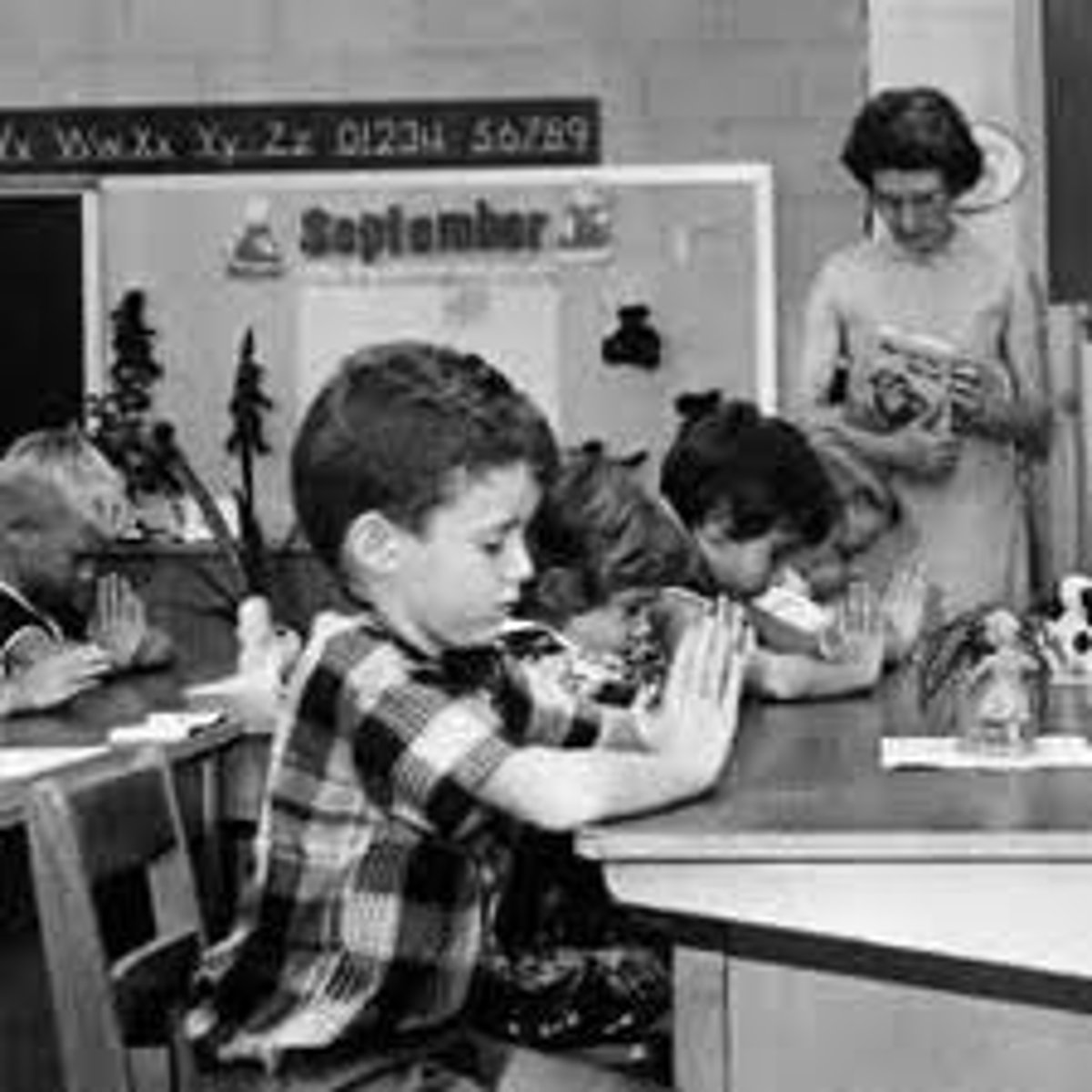
Gideon v. Wainwright (1963)
Gideon was a robber and was accused of this crime
He couldn't afford a lawyer, but the courts didn't provide him one either
He sued stating he had the right to counsel through the 6th amendment
SCOTUS ruled in favor of Gideon citing selective incorporation
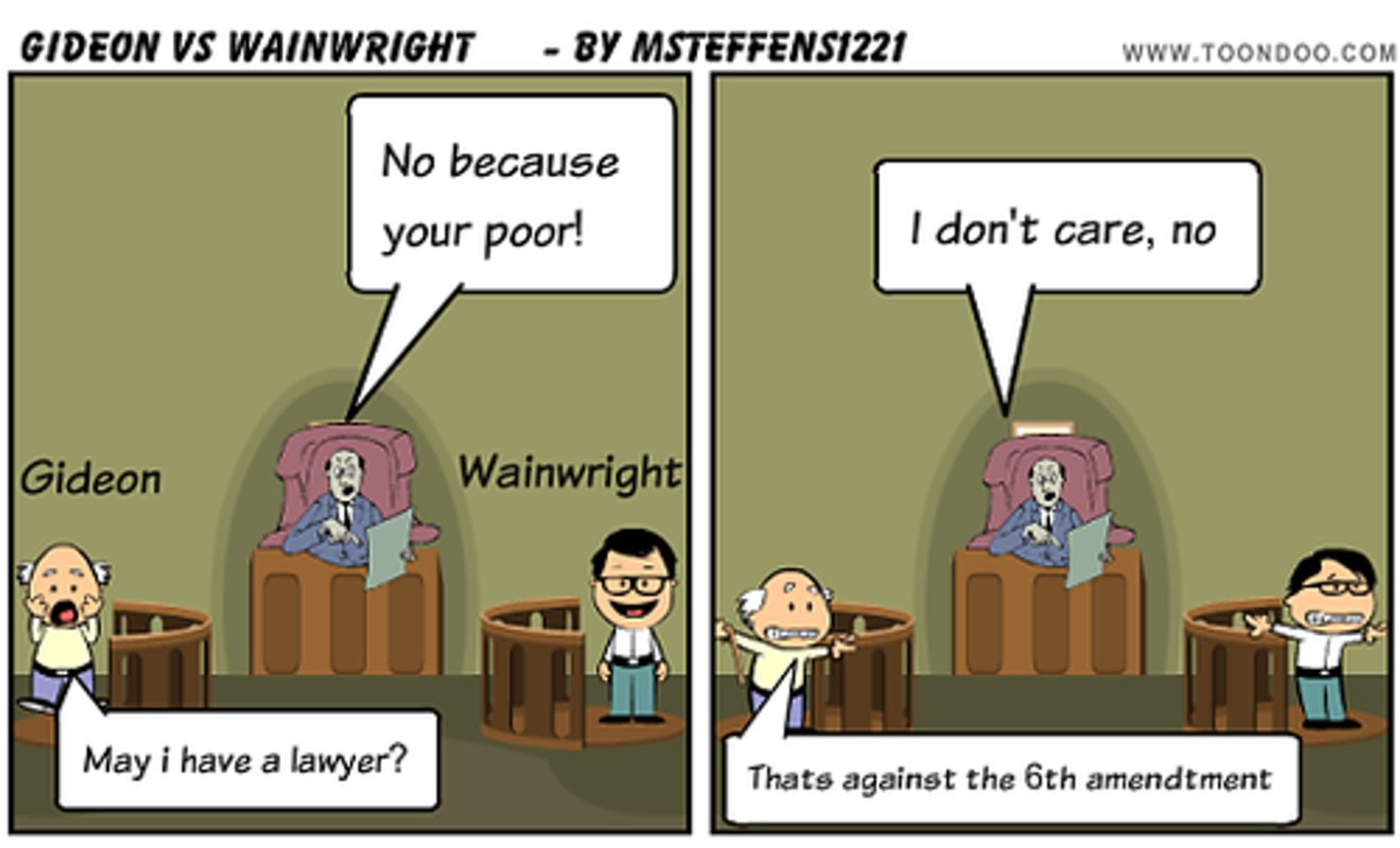
Tinker v. Des Moines Independent Community School District (1969)
A group of student wore black armbands on their arms to school to protest the Vietnam war
School said they would suspend them as it is distracting other students and is causing a disturbance
Parents sued the school district citing violation of freedom of expression
Court ruled in favor of parents stating that freedom of speech was violated, and that a student's freedom of speech does not "stop at the school gate"
Since it didn't obstruct the school day, there was no need for school to suspend them

New York Times Company v. United States (1971)
New York Times had gotten a hold of the "Pentagon Papers" with info about the US' involvement in the Vietnam War and how the presidential administrations had lied to them
Nixon wanted to stop the printing of this stating that this could harm the US on the international level
NYT sued stating freedom of the press was violated
Court ruled in favor of NYT stating that the press was meant "to serve the governed, not the governors"
Expanded freedom of the press in America
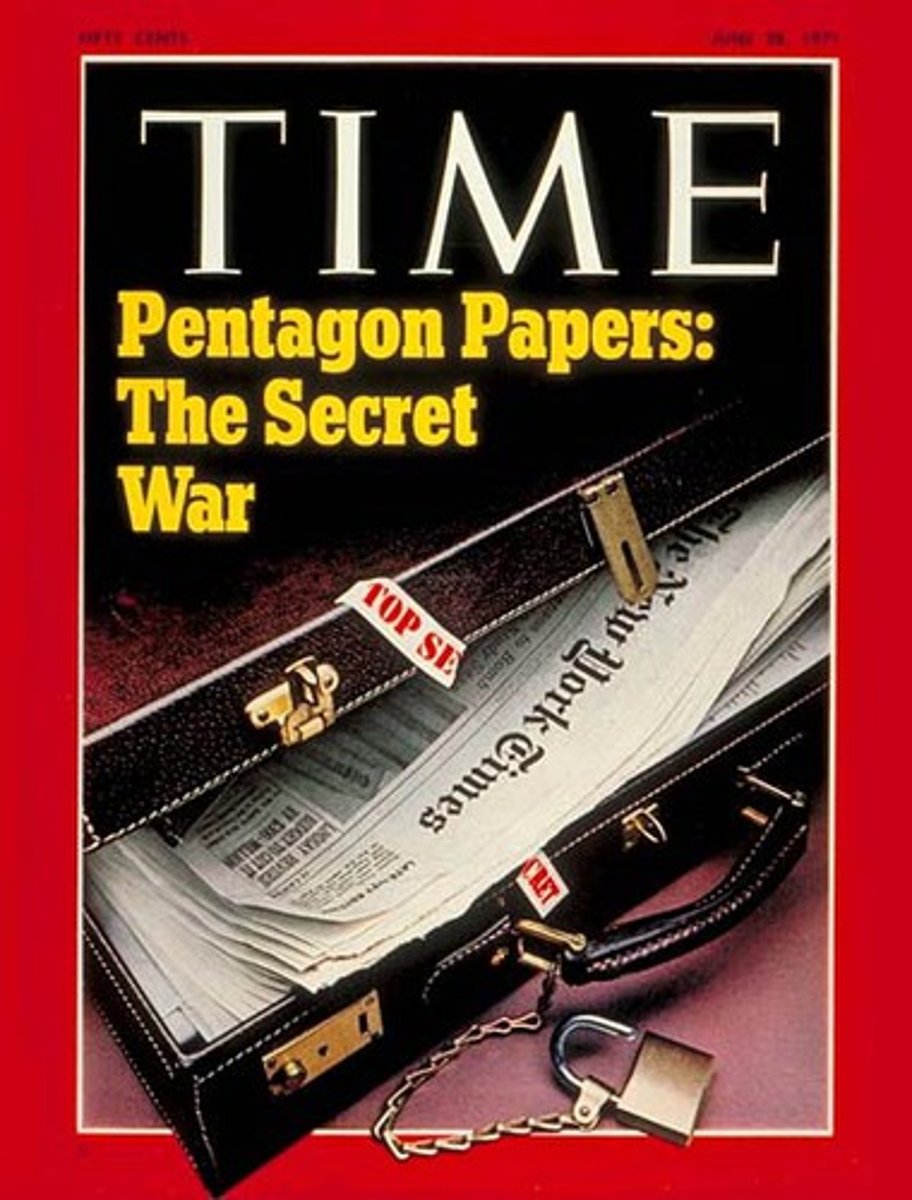
Wisconsin v. Yoder (1972)
A group of Amish students were pulled from school after the 8th grade because in their religion, it is believed they don't need to go to school past this
A Wisconsin law required that students have to go to school till the age of 16
Amish parents sued through a representing organization citing violation of free exercise clause
Court ruled in favor of parents stating that free exercise clause was violated
State's interest in educating children does NOT trump Amishs' free exercise of their religion
It set the tone for future cases for states interest vs free exercise clause
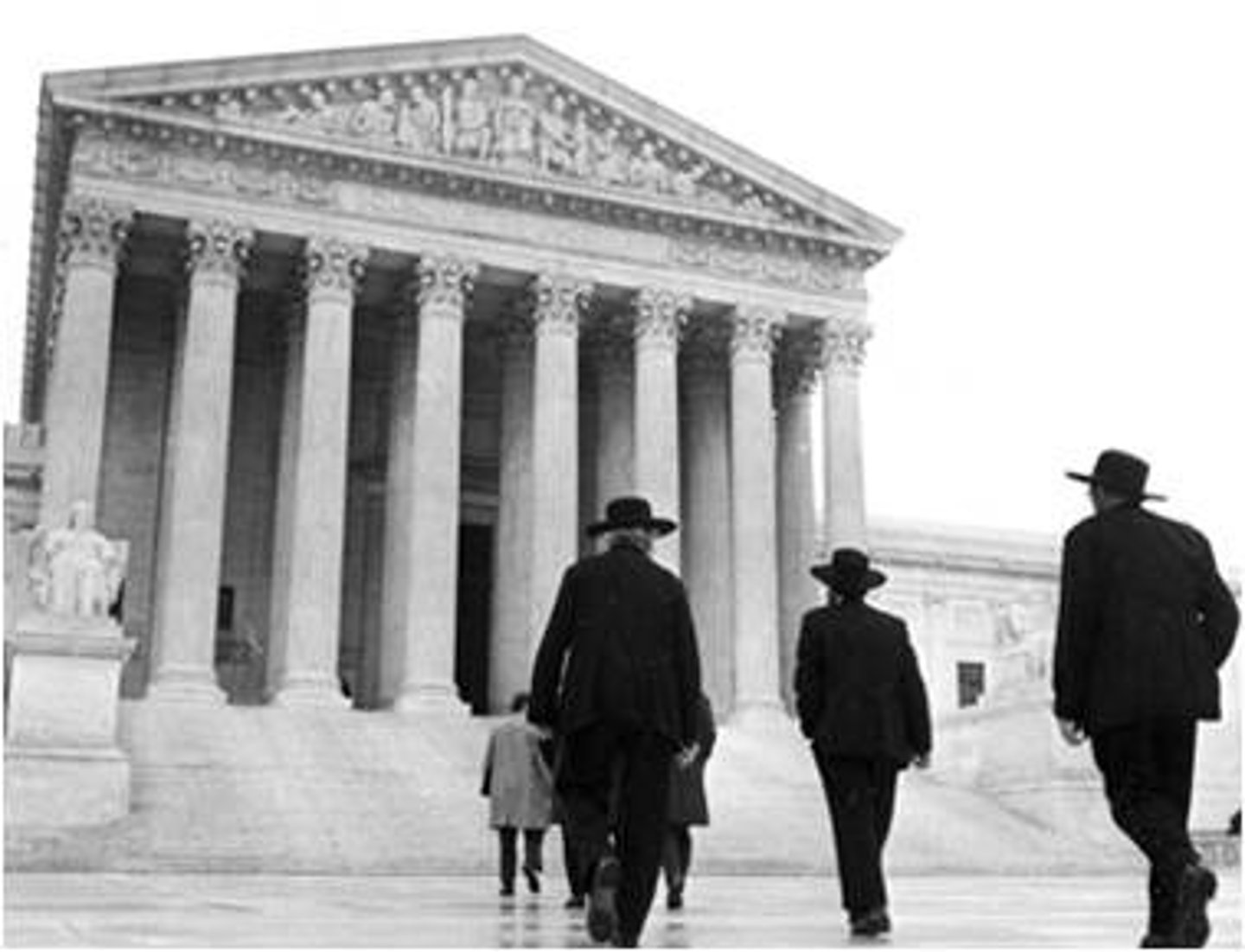
Roe v. Wade (1973)
Norma McCorvey was on her third pregnancy and didn't want the child as she didn't really feel settled in life and didn't want to add a child to the mix
She was unable to get an abortion because they were banned in Texas, where she lived
She sued Texas and the case went all the way up to SCOTUS
SCOTUS ruled that the TX law was unconstitutional because it violated the right of privacy
Not explicitly stated but inferred from the due process clause of the 14th amendment
SCOTUS created a new law that stated that states couldn't do anything the first trimester but could have more control in the 2nd and 3rd trimesters
Very very VERY controversial case as it contains taking a life but in a way that conflicts with a woman's right to choose when she wants children
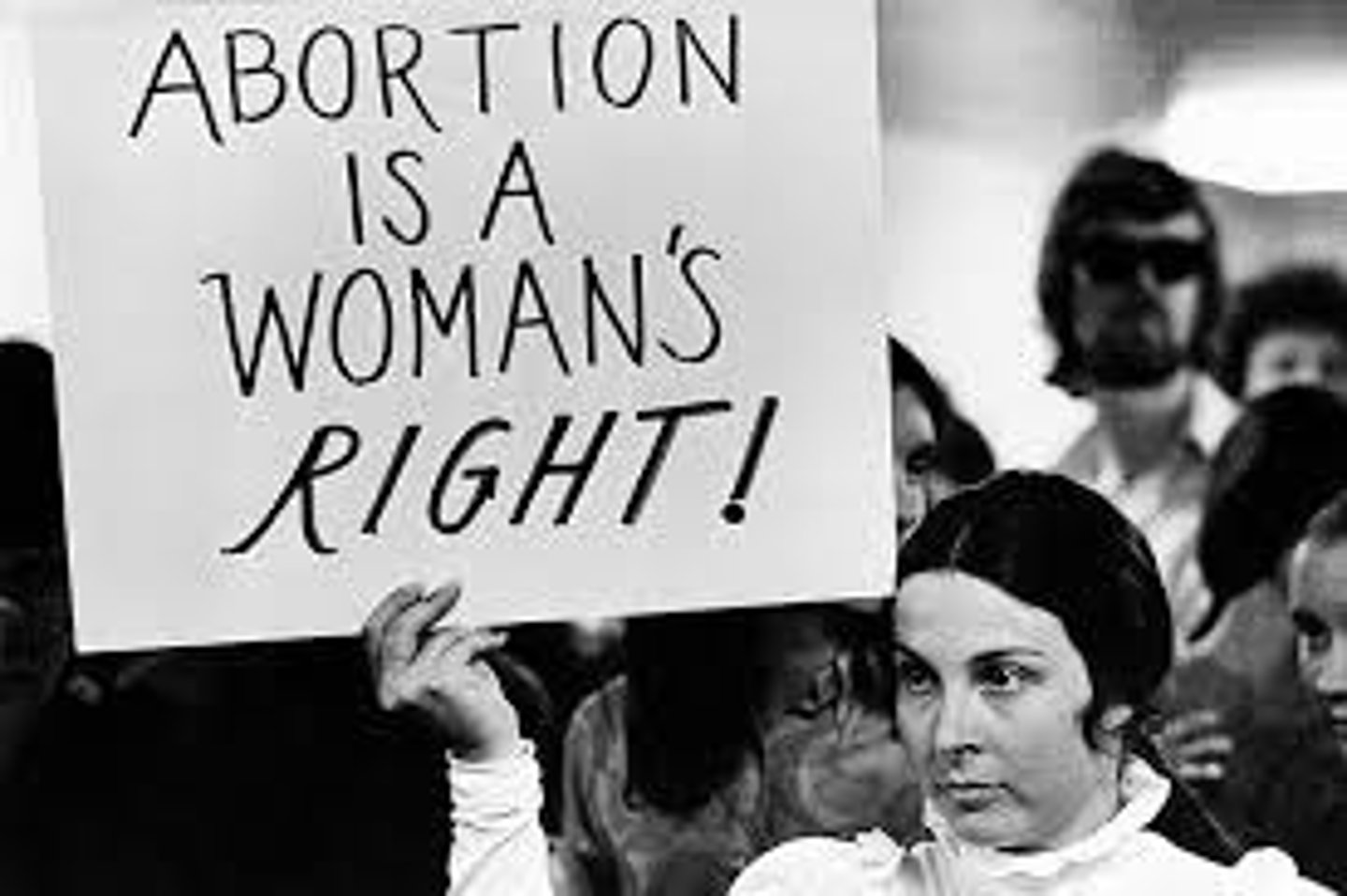
Shaw v. Reno (1993)
North Carolina had no Black reps even though 20% of the population was black
Created two congressional districts, through racial gerrymandering, with a big population of Black citizens
Was declared unconstitutional as it went against the 14th amendment's Equal Protection Clause
SCOTUS stated the congressional districts couldn't be drawn based on solely race and created more scrutiny over racial gerrymandering
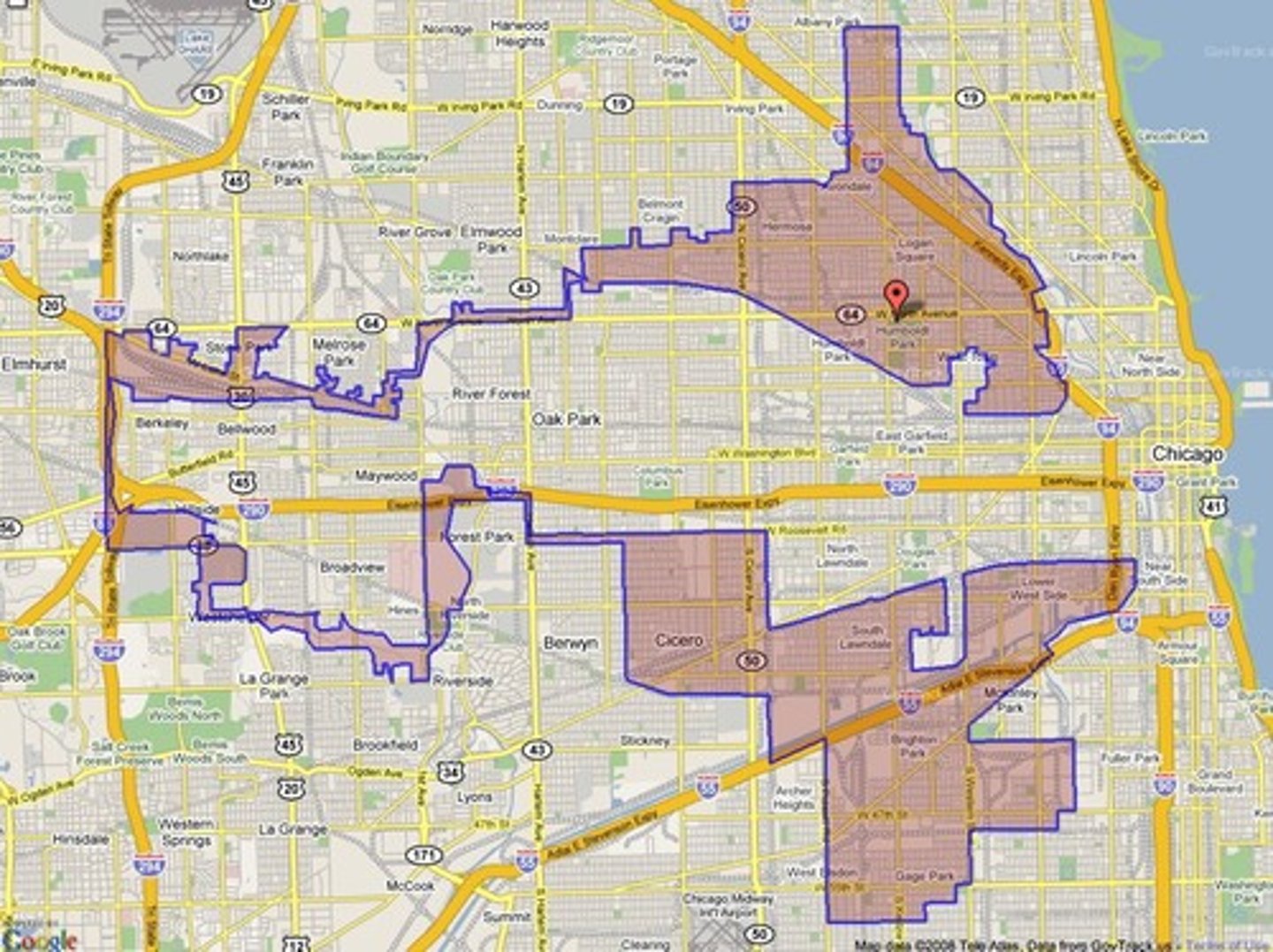
United States v. Lopez (1995)
Limited power of the federal government and pushed more power to states
1990: Gun Free School Zones Act = banned guns on school property
Alfonzo Lopez, a high school senior in Texas, brought a gun to school and was tried to the federal law
Caused debate about whether this law was an overreach of federal power as the government cannot tell someone where to take their gun
SCOTUS responded by saying that this law connected with the Commerce Clause + the N&P Clause
Lopez responded by saying that they can't always connect the two and get away with it
5-4 decision in favor of Lopez, stating that the Fed Gov went too far with their power
Declared the Gun Free School Zones act unconstitutional and that it should be up to the states whether or not guns are outlawed on school property
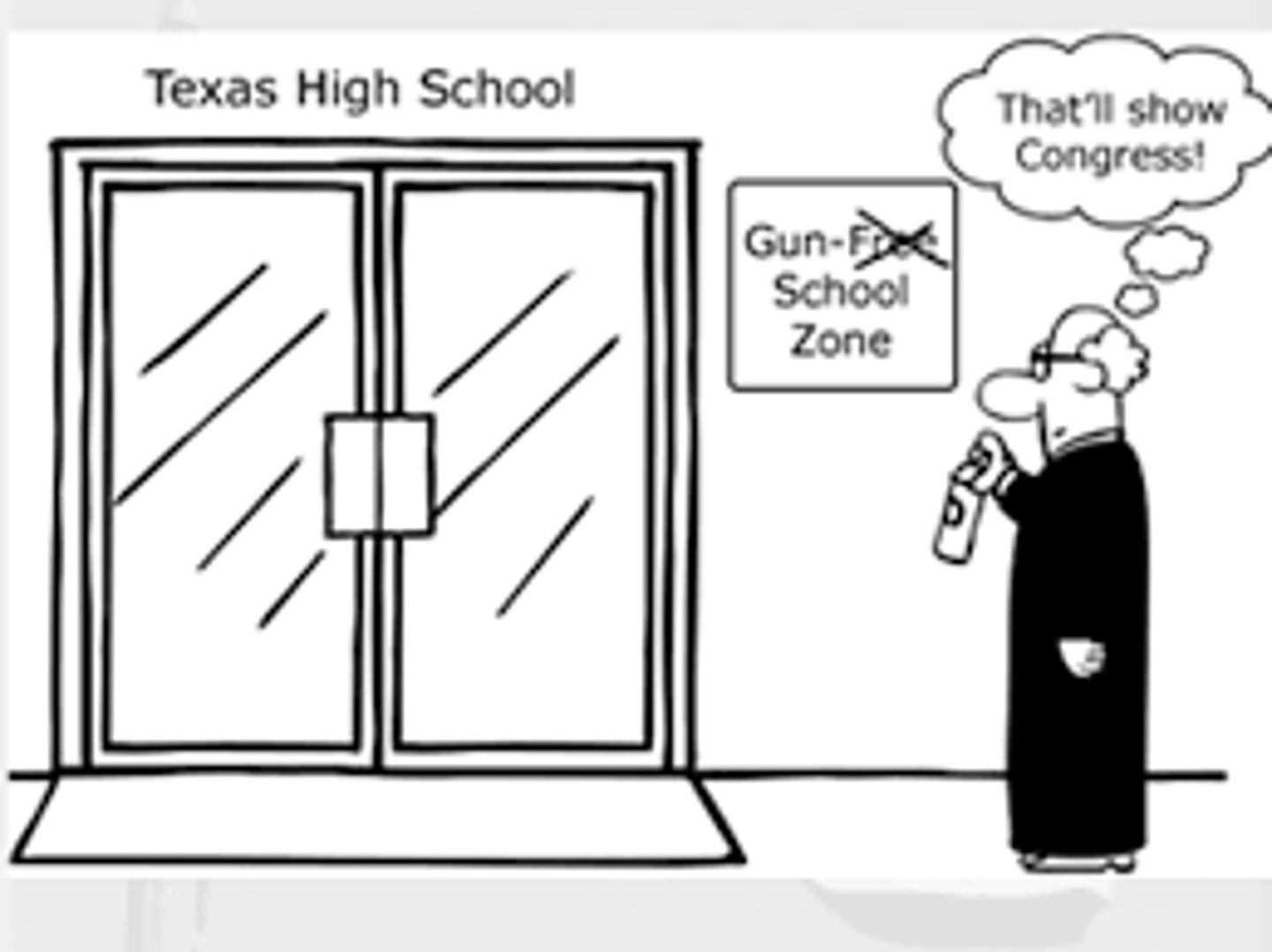
McDonald v. Chicago (2010)
McDonald had a bunch of big firearms but they weren't useful and easy to use for safety
His street had a bunch of gangs so he wanted to protect himself
Wanted to buy handguns but Chicago had one of the strictest handgun-banning laws in the nation
SCOTUS ruled in favor of McDonald stating that Chicago had violated 2nd amendment rights
Bigger case about selective incorporation and not 2nd amendment
From Heller v DC case
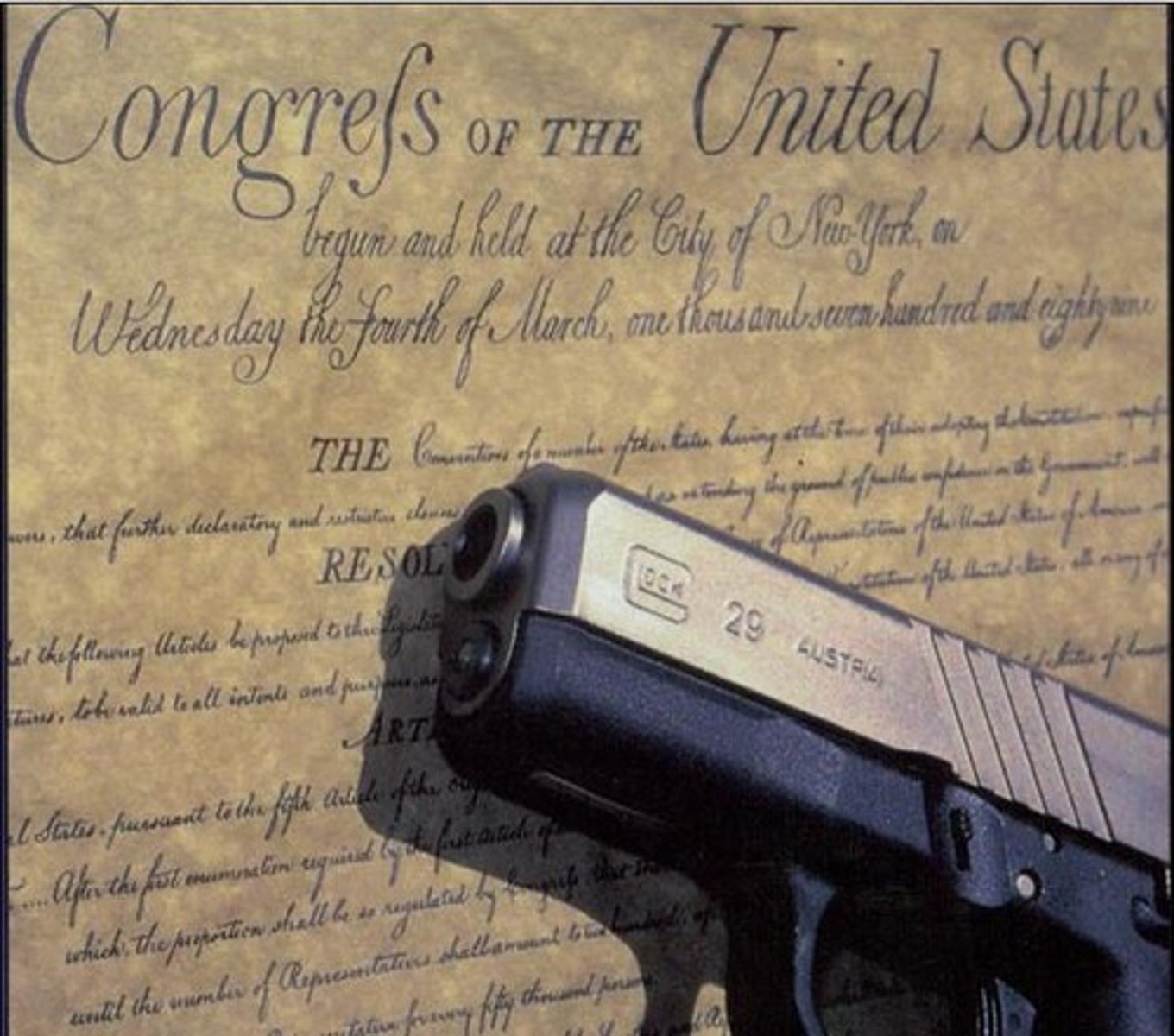
Citizens United v. Federal Election Commission (2010)
Bipartisan Campaign Finance Act (BCRA) made it illegal for corporations/non-profits to engage in election-related activities 60 days before an election or 30 days before a primary
2008 primary b/w Obama and Hilary Clinton: A movie by Citizens United, a conservative group, about Clinton was created with accusations against her
Was created during the forbidden period due to BCRA
Citizens United sued citing the First Amendment's Freedom of Speech was violated
SCOTUS ruled in favor of Citizens United arguing that stopping a business from talking about elections during a certain time period was like censoring an individual, which was illegal
Created a lot of talk about lots of money = more influence
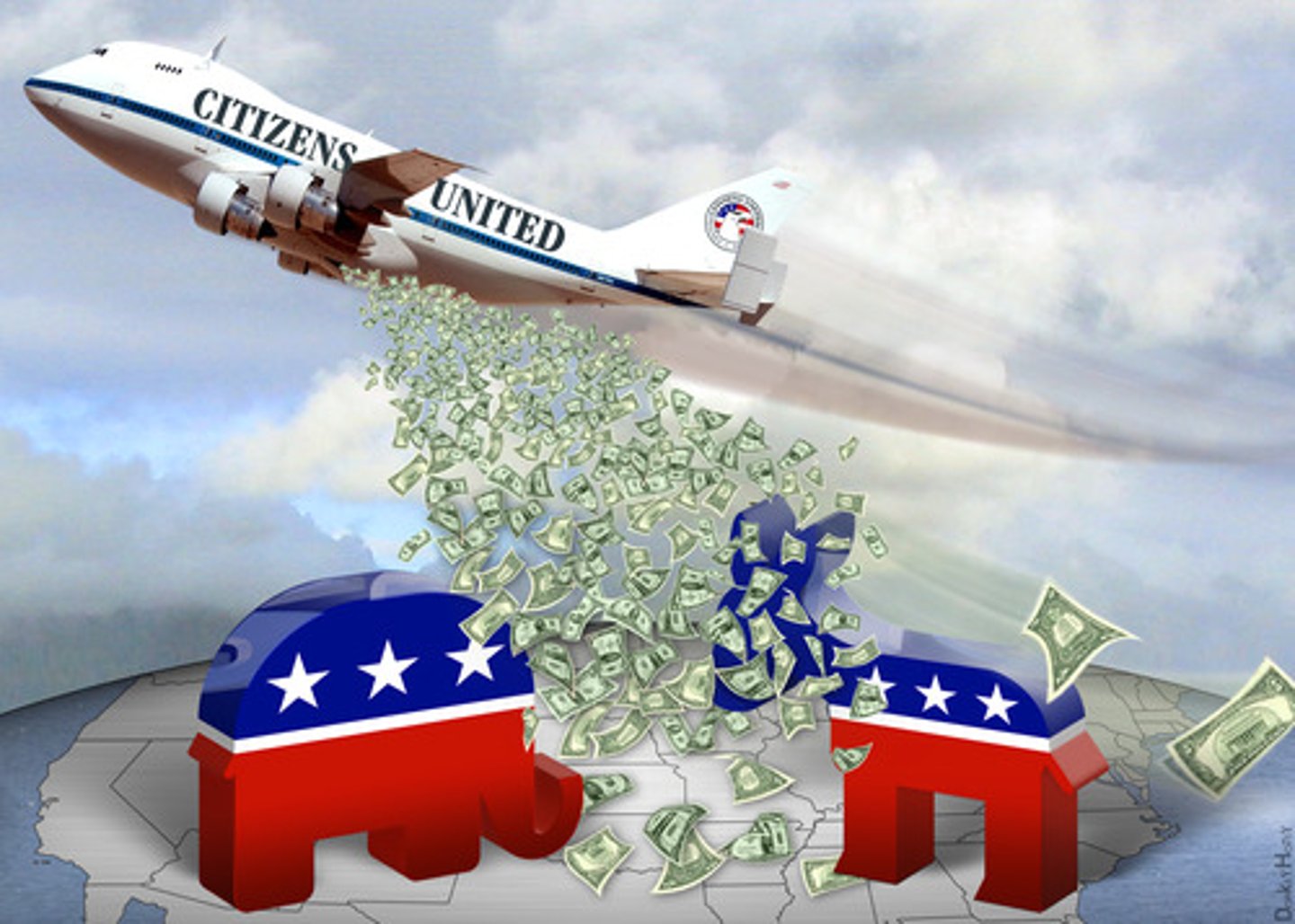
The Declaration of Independence
Author: Thomas Jefferson
Edited by Ben Franklin and John Adams
A list of the colonies' grievances against the British Crown
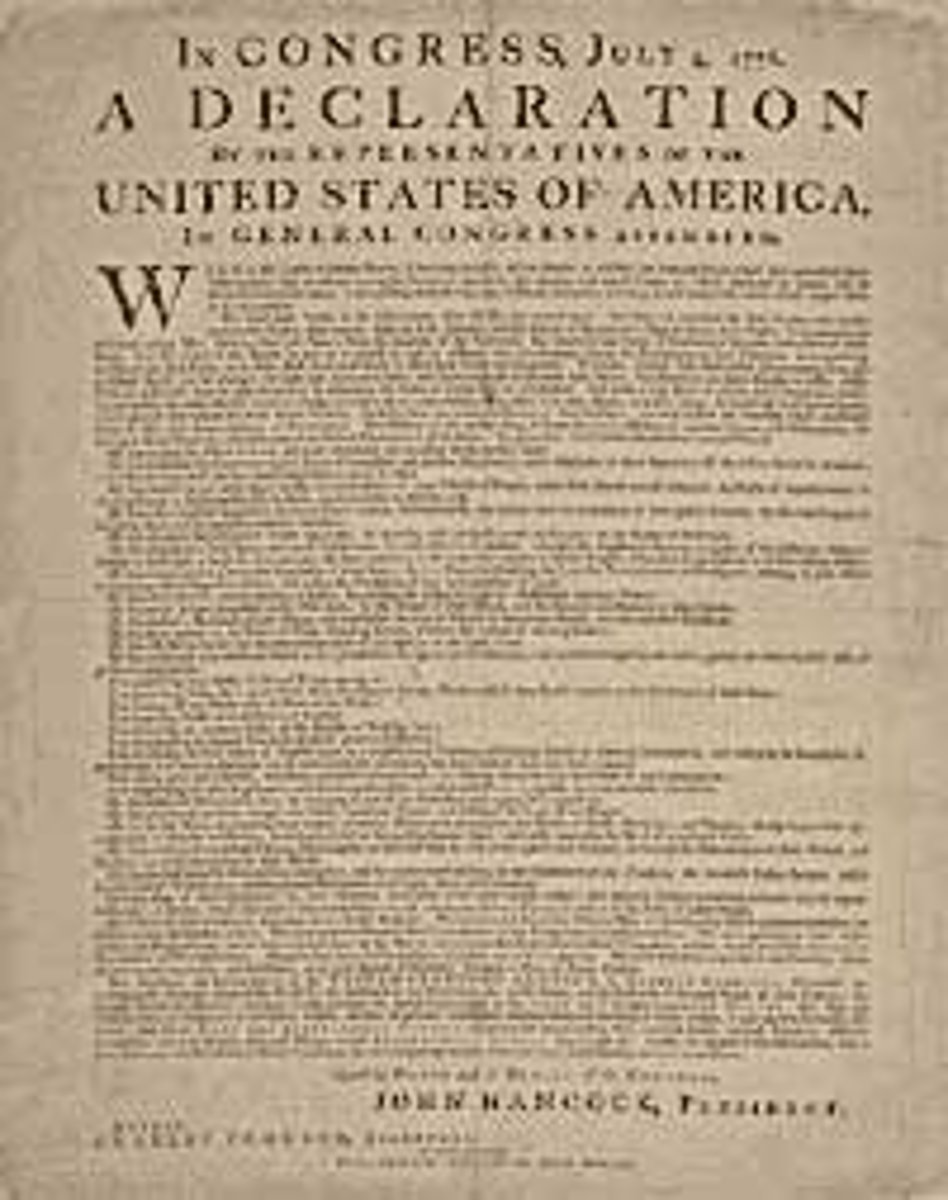
Articles of Confederation
First governmental blueprint of the United States of America
Made all the states sovereign ---> Each ran like a separate country
Super weak central government, and basically no federal power whatsoever
Problems were brought to light after Shay's Rebellion
Led to the creation of the Constitution
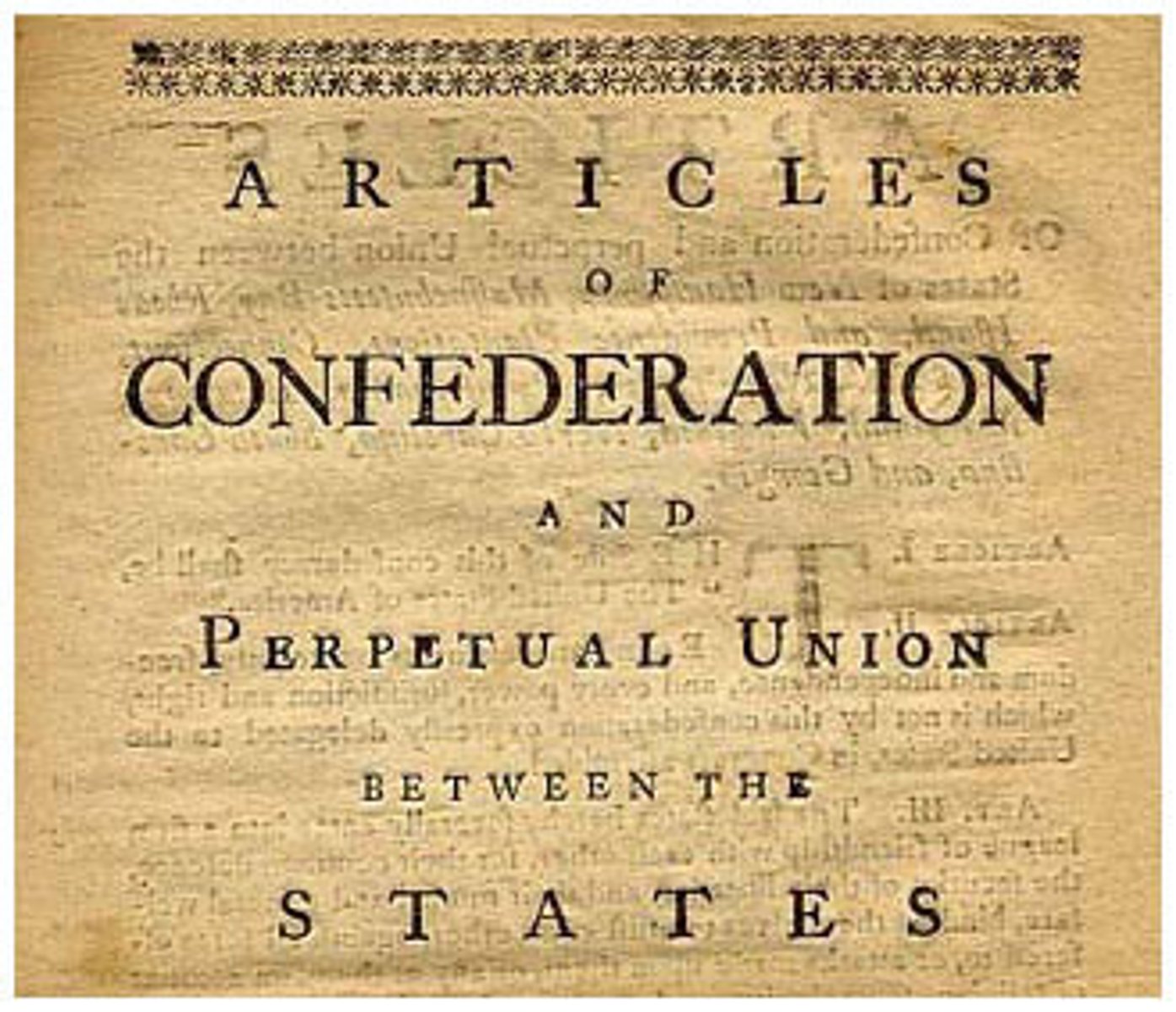
The Constitution of the United States
Created at the Constitutional Convention
Went in with the idea that they had to scrap the AOC and create a new plan
Popularized with the Federalist Papers
Created the 3 different branches, gave a more centralized and powerful government, while also maintaining the idea that the states should have power as well
Includes the Bill of Rights (first 10 amendments)
Next 17 amendments were made throughout time
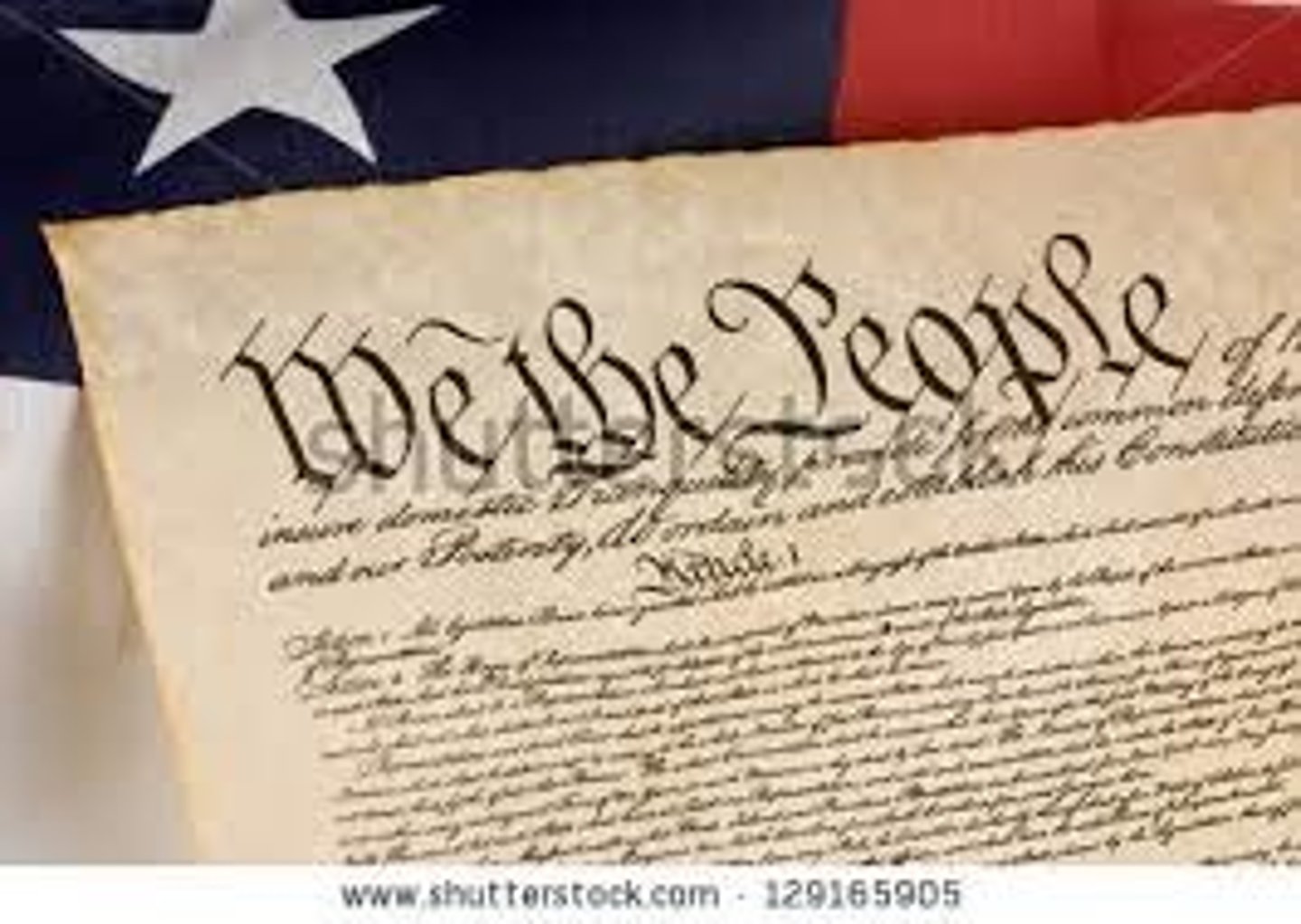
Federalist No. 10
Author: James Madison
Talks about the dangers of factions
Destroy causes or limit effects?
Destroy causes = Destroys liberty so NO
Limit effects = Republican government so YES
Pro pluralism and elitist republic
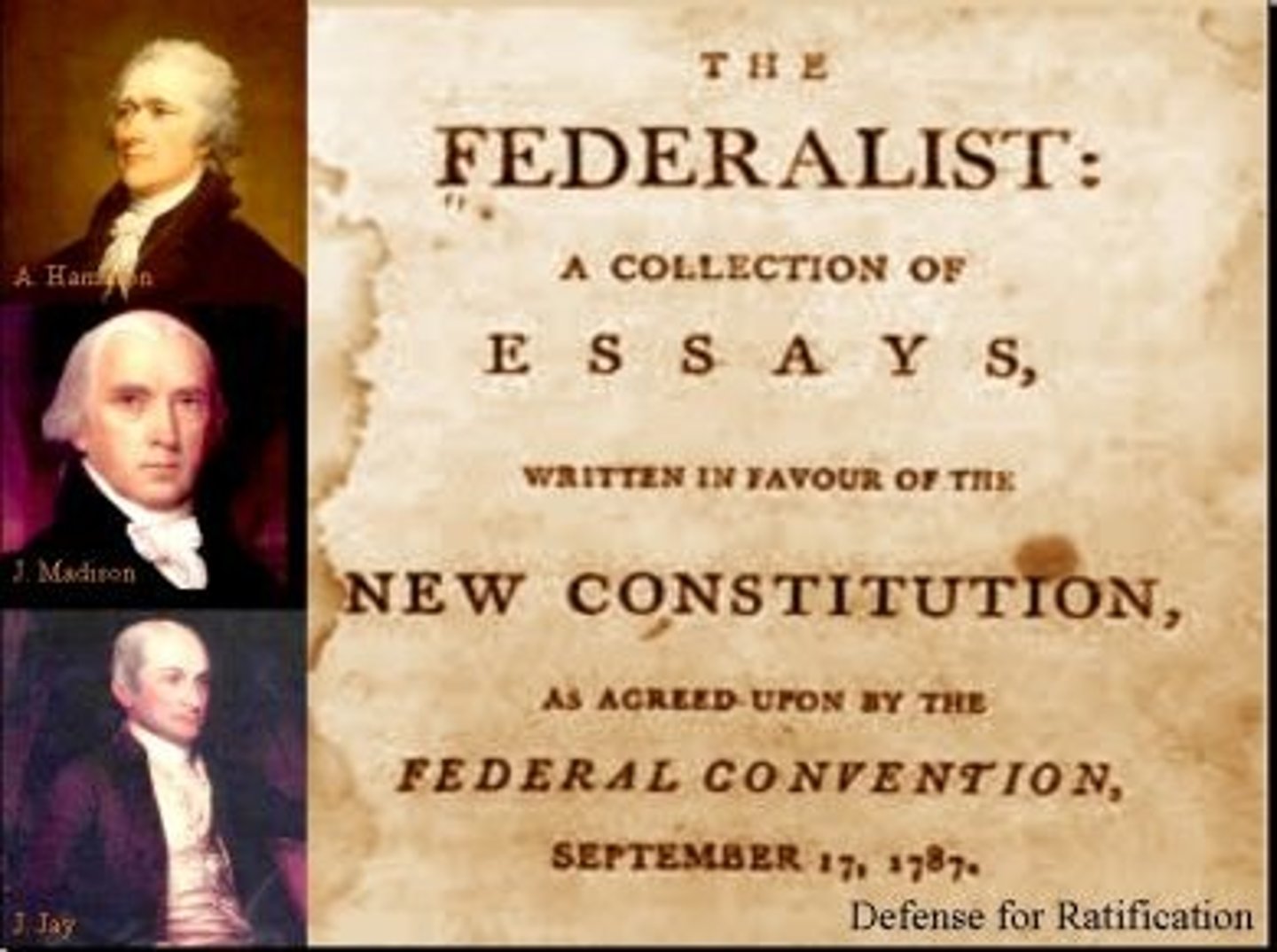
Brutus No. 1
Author: Unknown
Most famous Anti-Federalist paper
Explains author's worry of strong central government defeating the whole purpose of different states
Will a nation as large as the US, have reps to keep track of the people that they are representing?
Too many different opinions = too much tension and issues
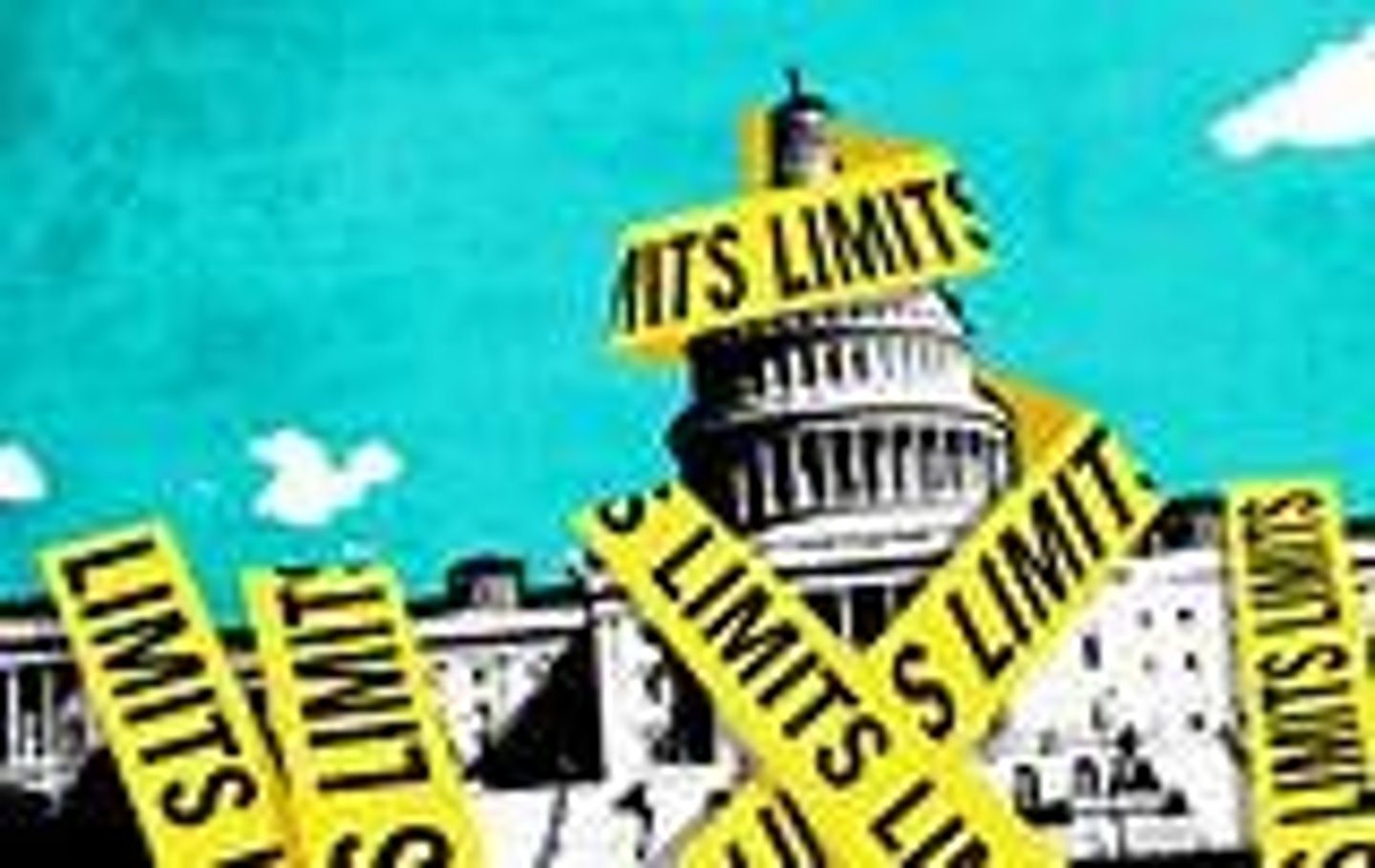
Federalist No. 51
Author: James Madison
Discusses separation of powers and checks and balances and how American Gov stays balanced this way
Human ≠ Angels ---> Creation of Government
Each branch should be as independent as possible
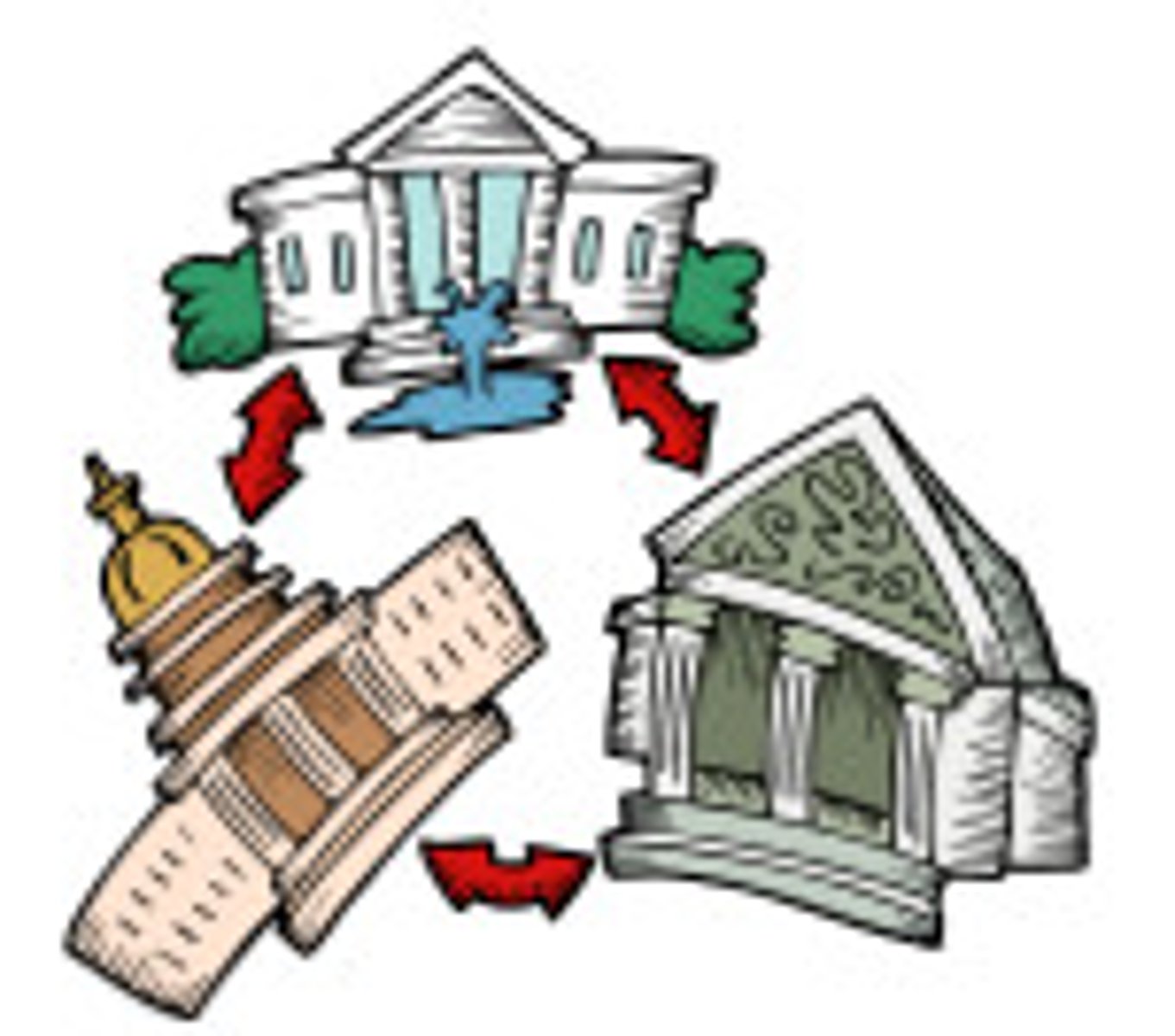
Federalist No. 70
Author: Alexander Hamilton
Discusses how the executive should be "energetic"
One person > group of people
Can be held accountable
Can be more transparent with American people as to who to put blame on
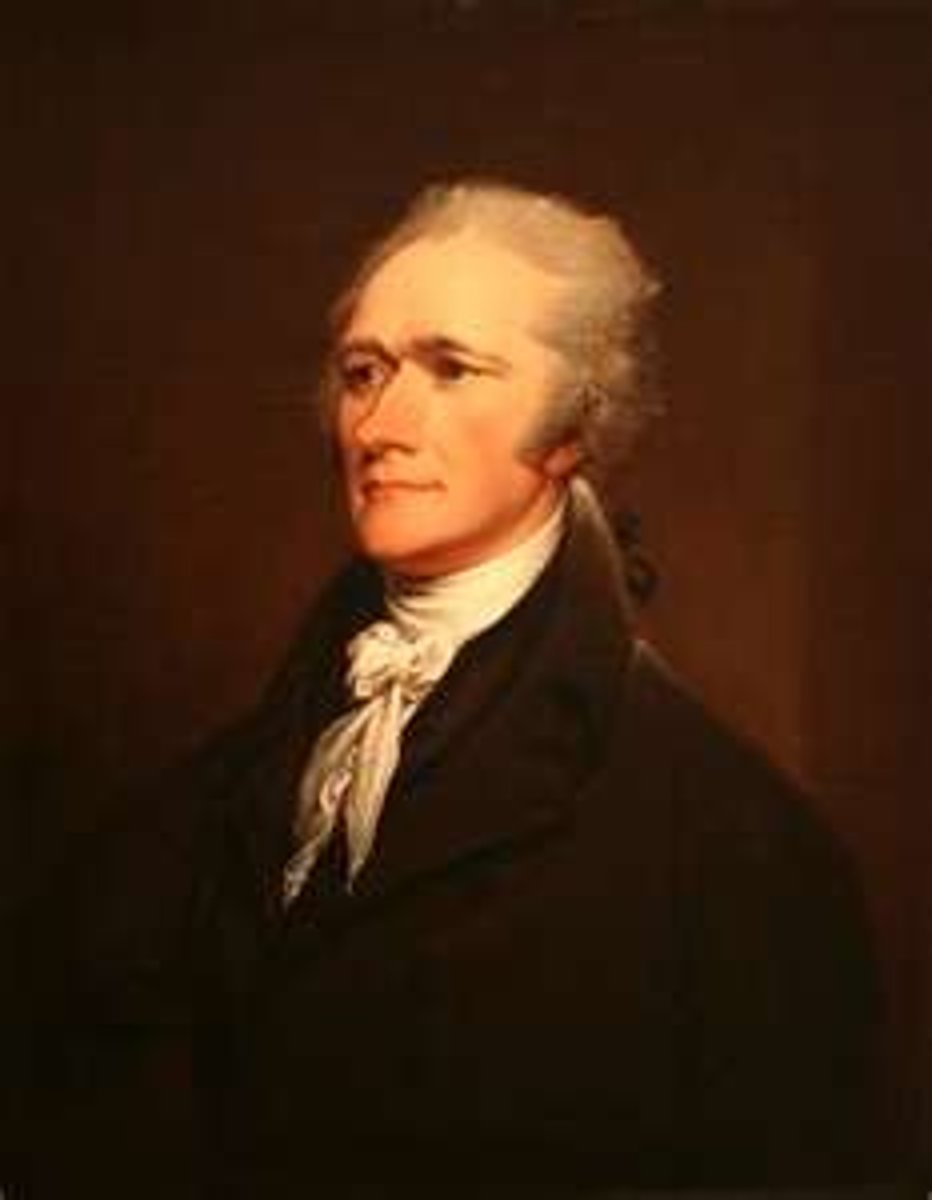
Federalist No. 78
Author: Alexander Hamilton
Courts will act as an intermediary between the people and the government
HAVE to follow the constitution
Explains that the judicial branch is the weakest branch of government
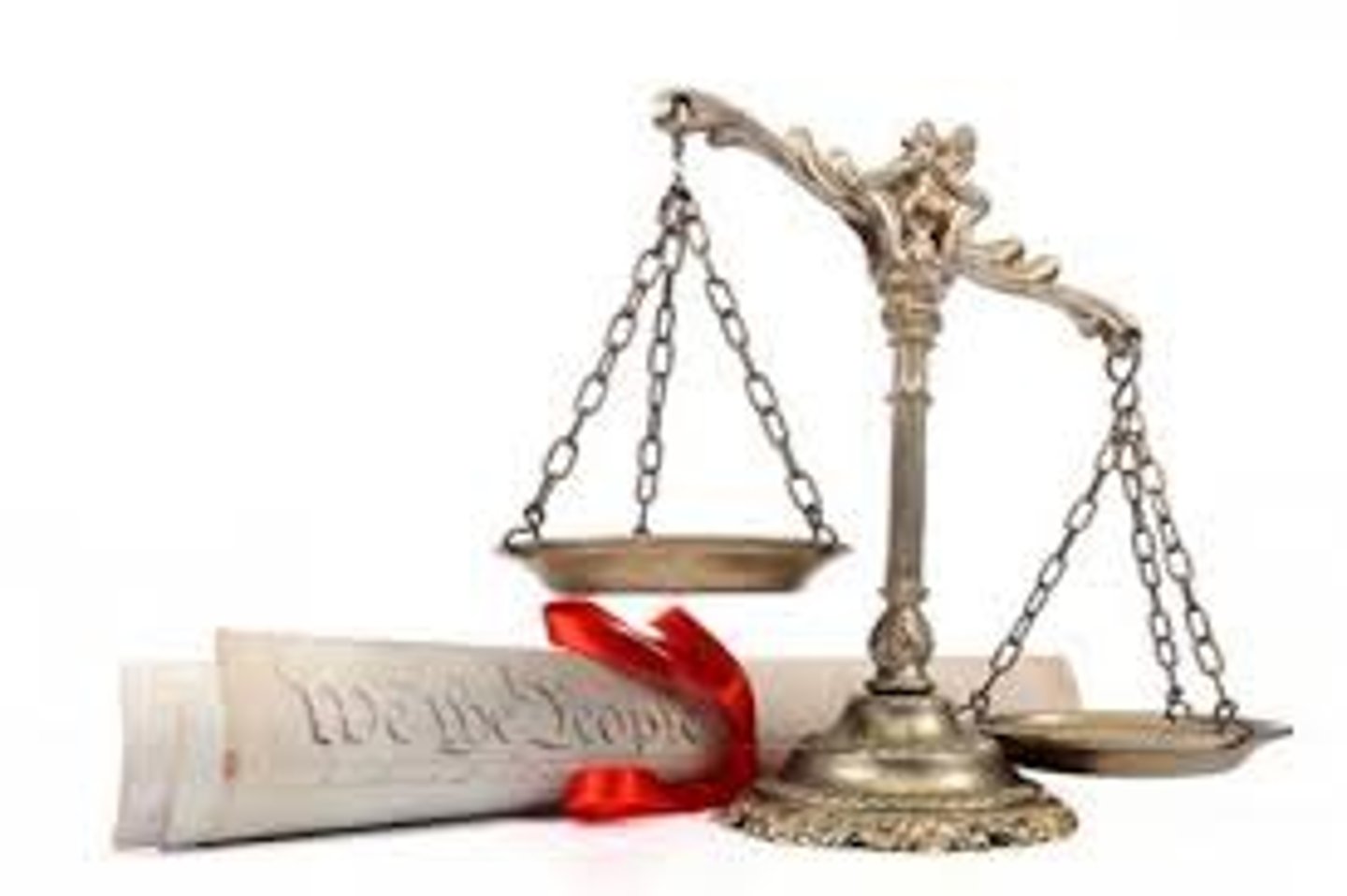
Letter from a Birmingham Jail
Author: Martin Luther King Jr.
Written in Birmingham jail after he got arrested
Explains why he is fighting the "unjust" laws
You can't fix laws in one place and expect it to be fixed in another
Explains plight of Black people and why they cannot "wait" any longer for justice
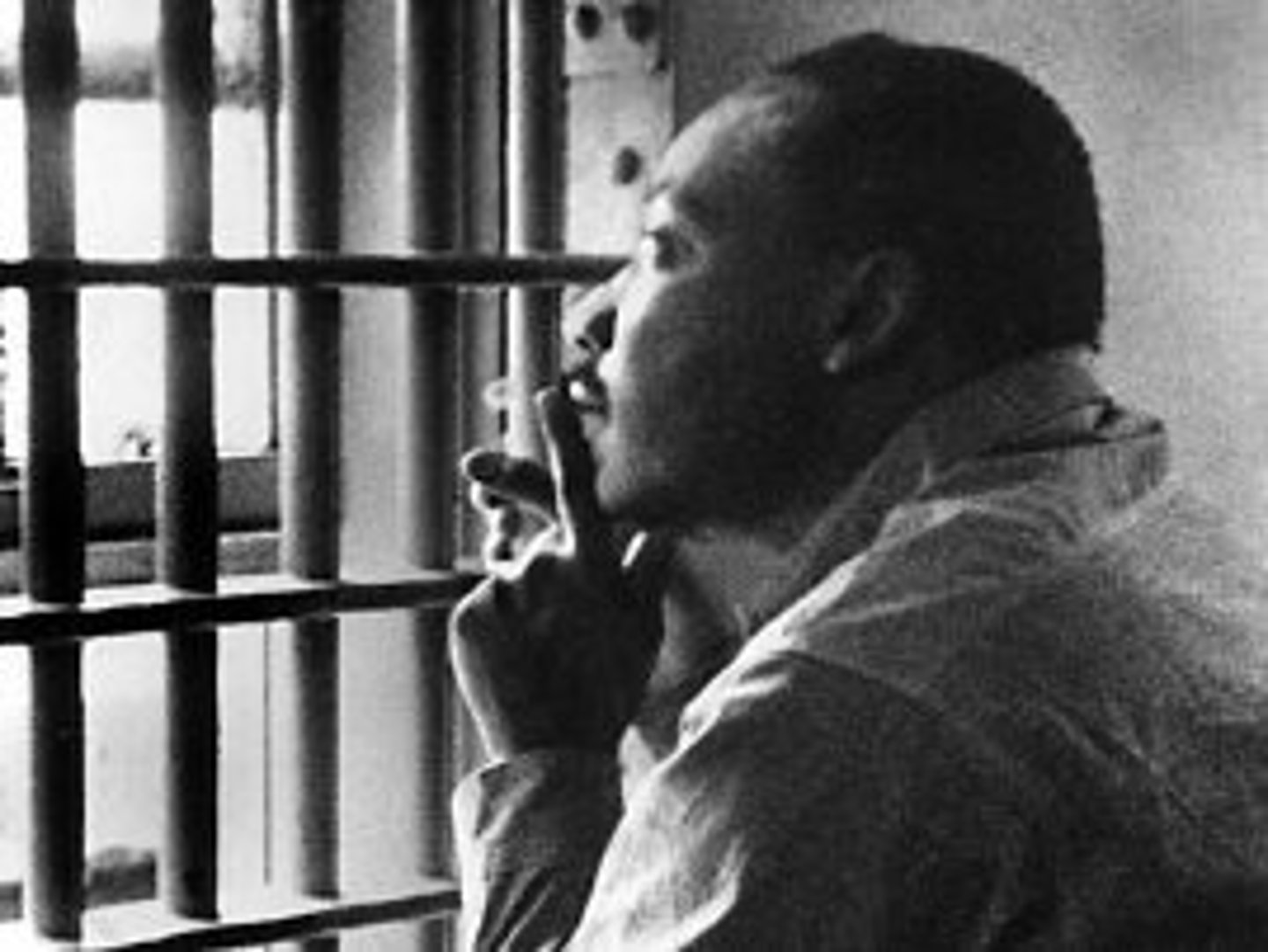
probable cause
reasonable belief that a crime has been committed or that there is evidence indicating so
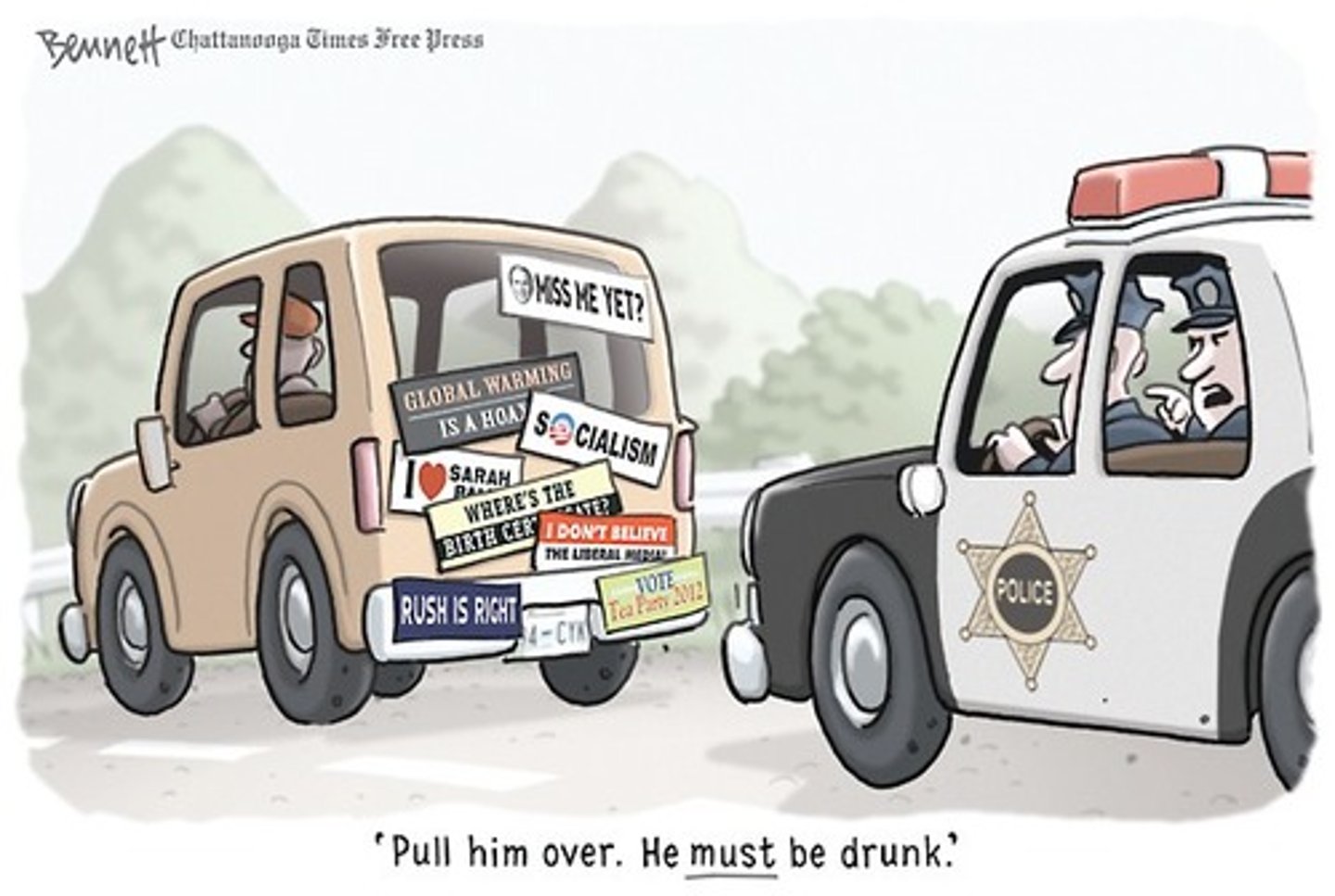
exclusionary rule
a rule that evidence obtained without a warrant is inadmissible in court
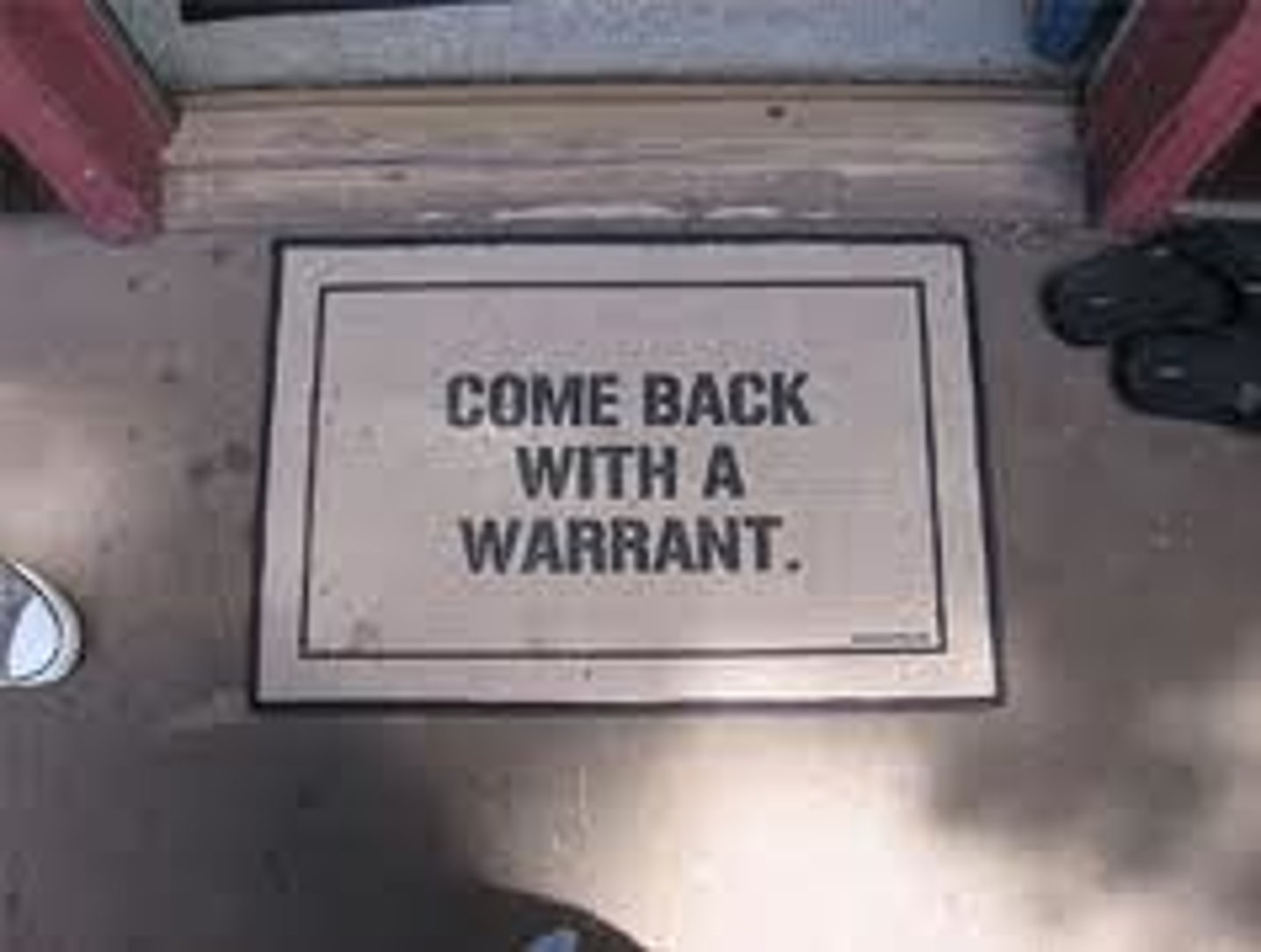
grand jury
a group of citizens who, based on the evidence presented to them, decide whether or not a person should be indicted and subsequently tried in a court of law
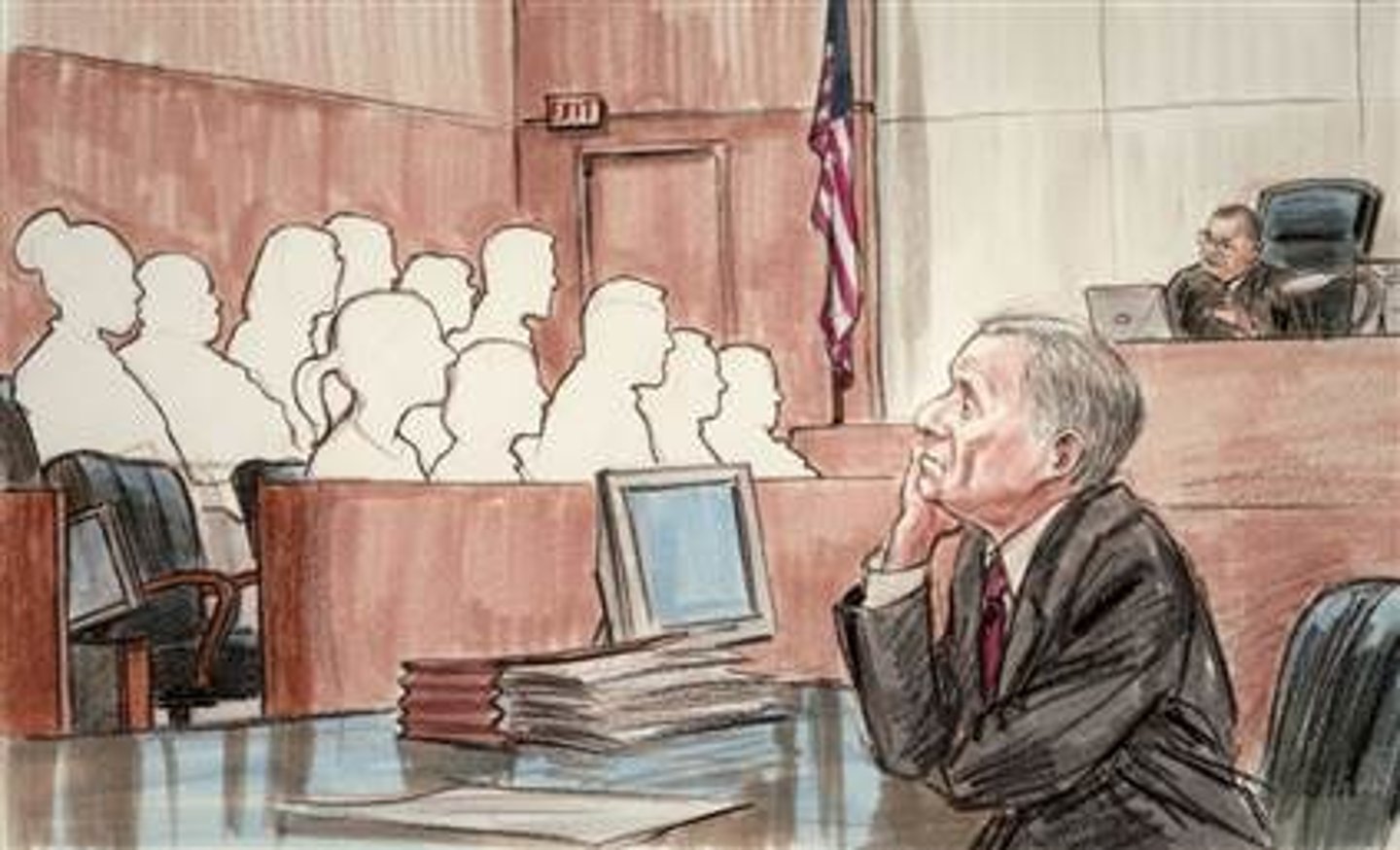
double jeopardy
protects an individual acquitted of a crime from being charged with the same crime again in the same jurisdiction
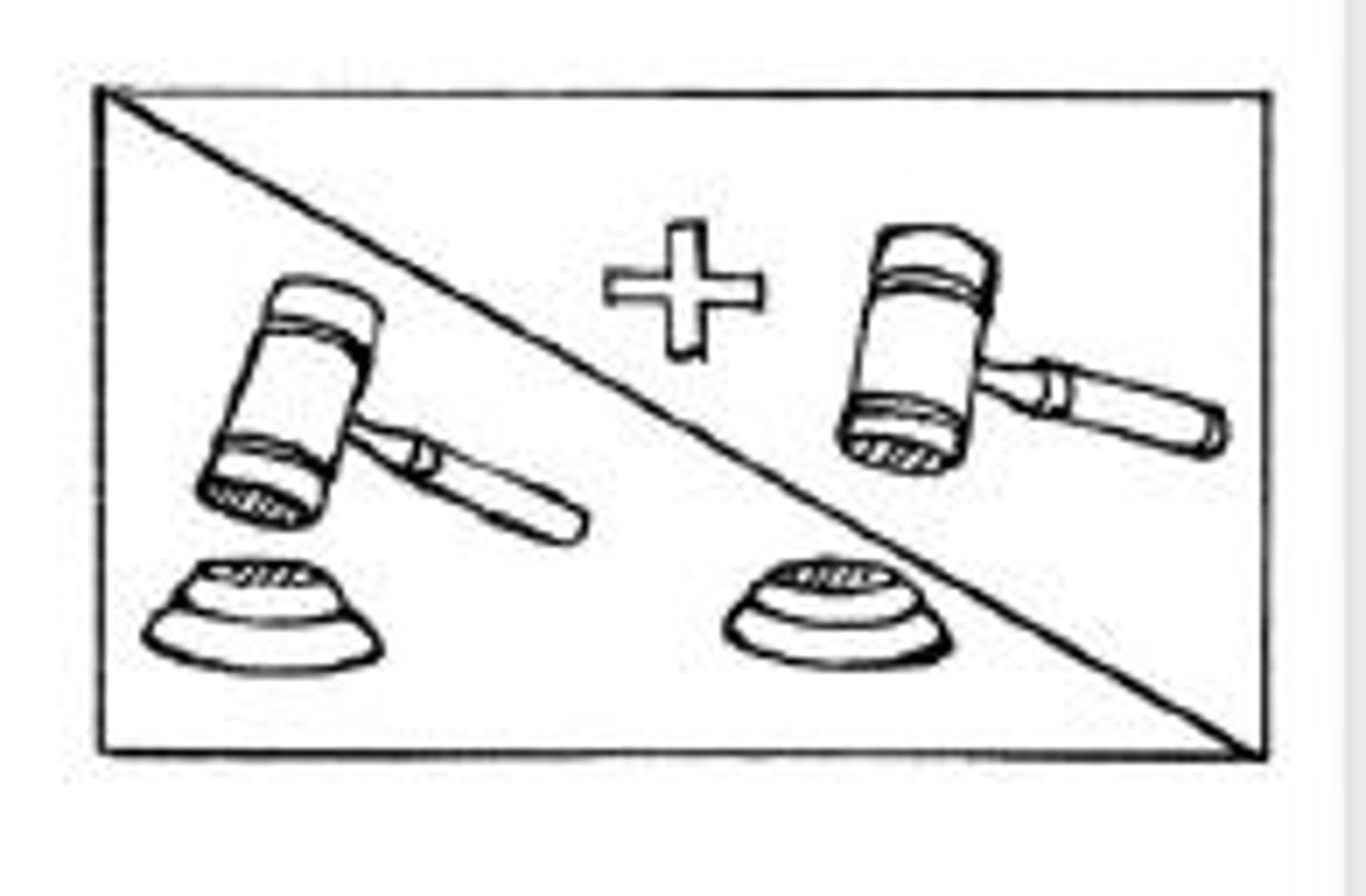
Miranda rights
the right to remain silent and to have an attorney present during questioning; these rights must be given by police to individuals suspected of criminal activity
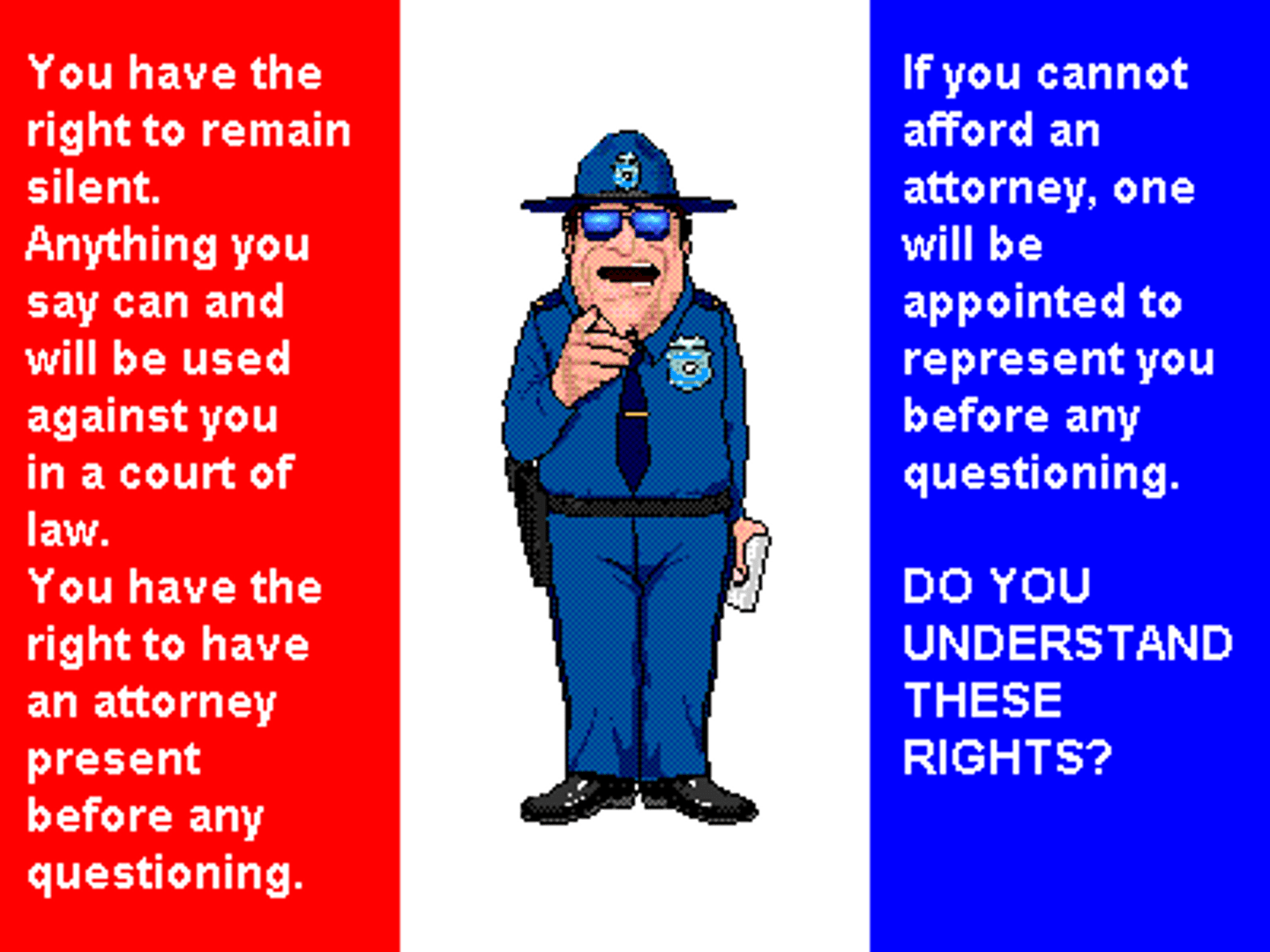
bail
an amount of money posted as a security to allow the charged individual to be freed while awaiting trial
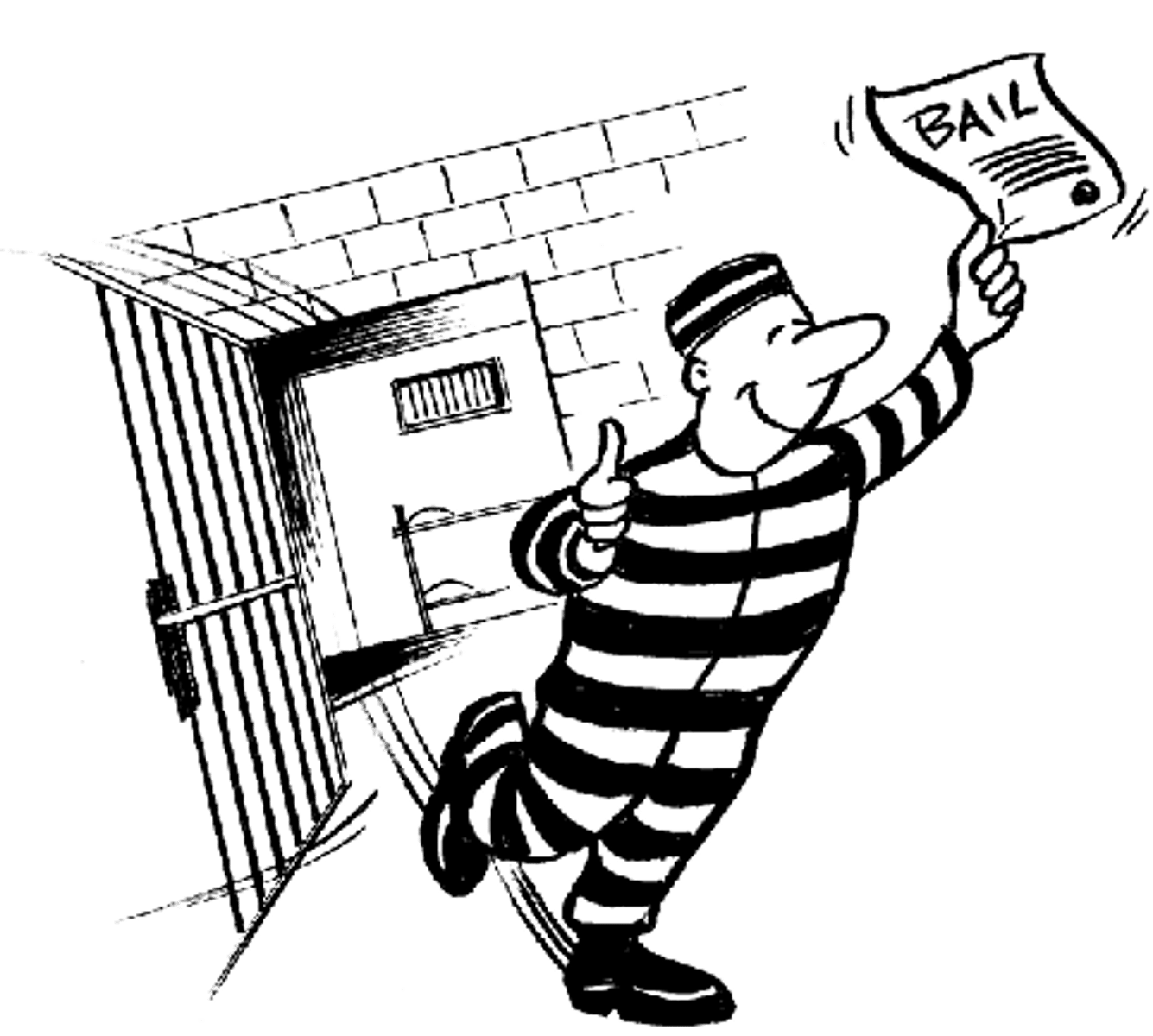
Equal Protection Clause
a clause in the 14th amendment that requires the states to treat all citizens alike with regard to application of the laws
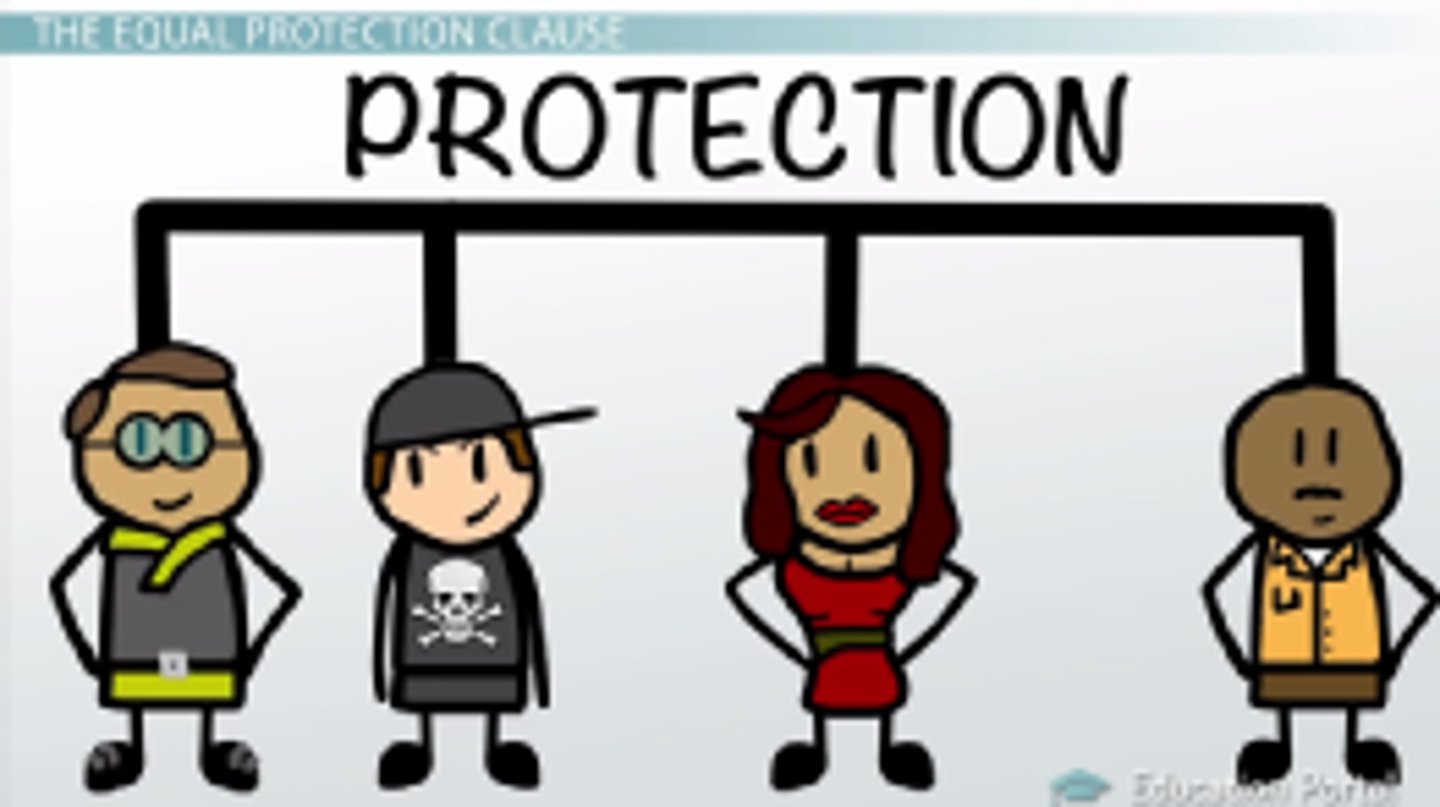
separate but equal
the doctrine that racial segregation was constitutional so long as the facilities for blacks and whites were equal
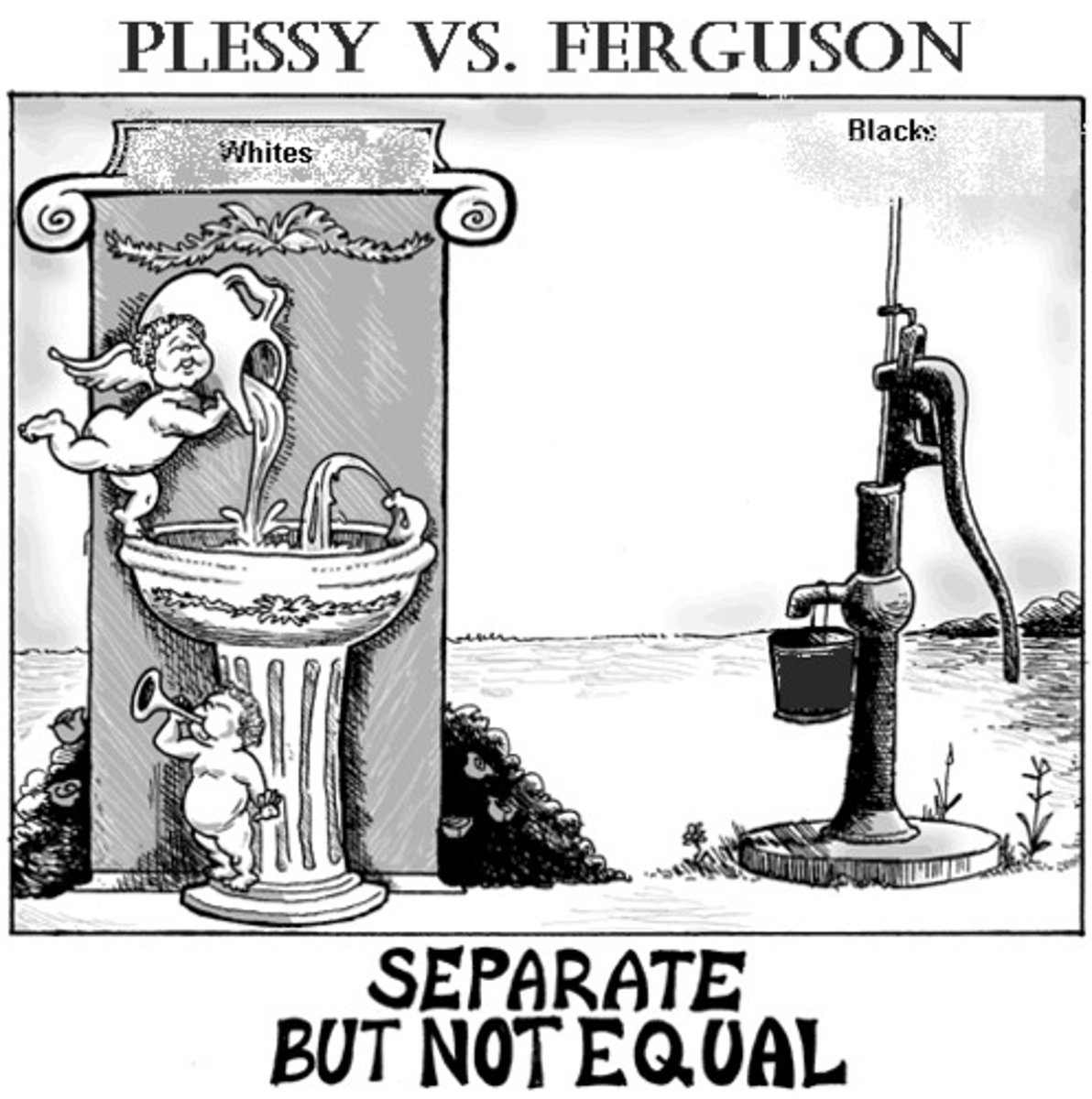
legal segregation
the separation by law of individuals based on their race
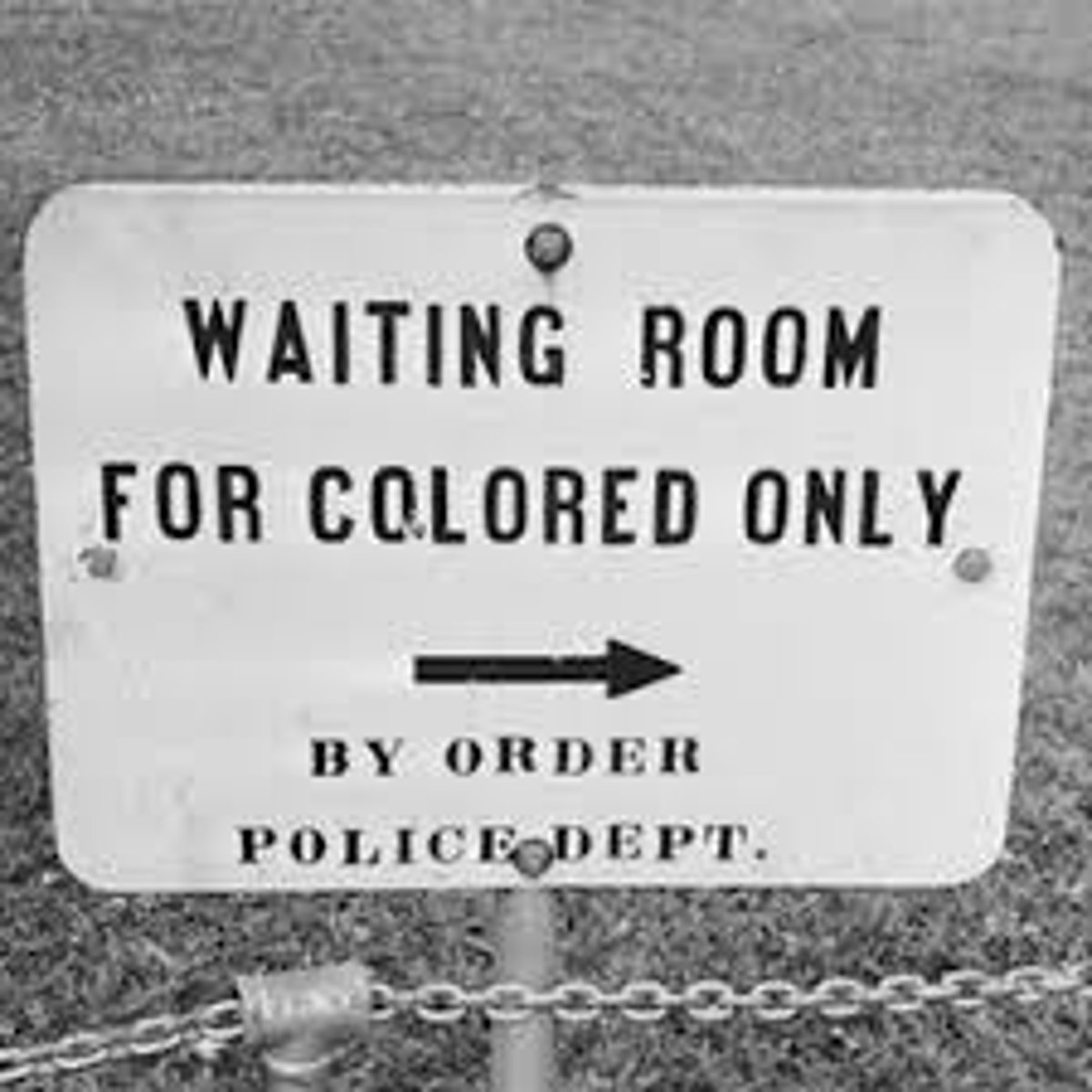
de jure segregation
the separation of individuals based on their characteristics, such as race, intentionally and by law
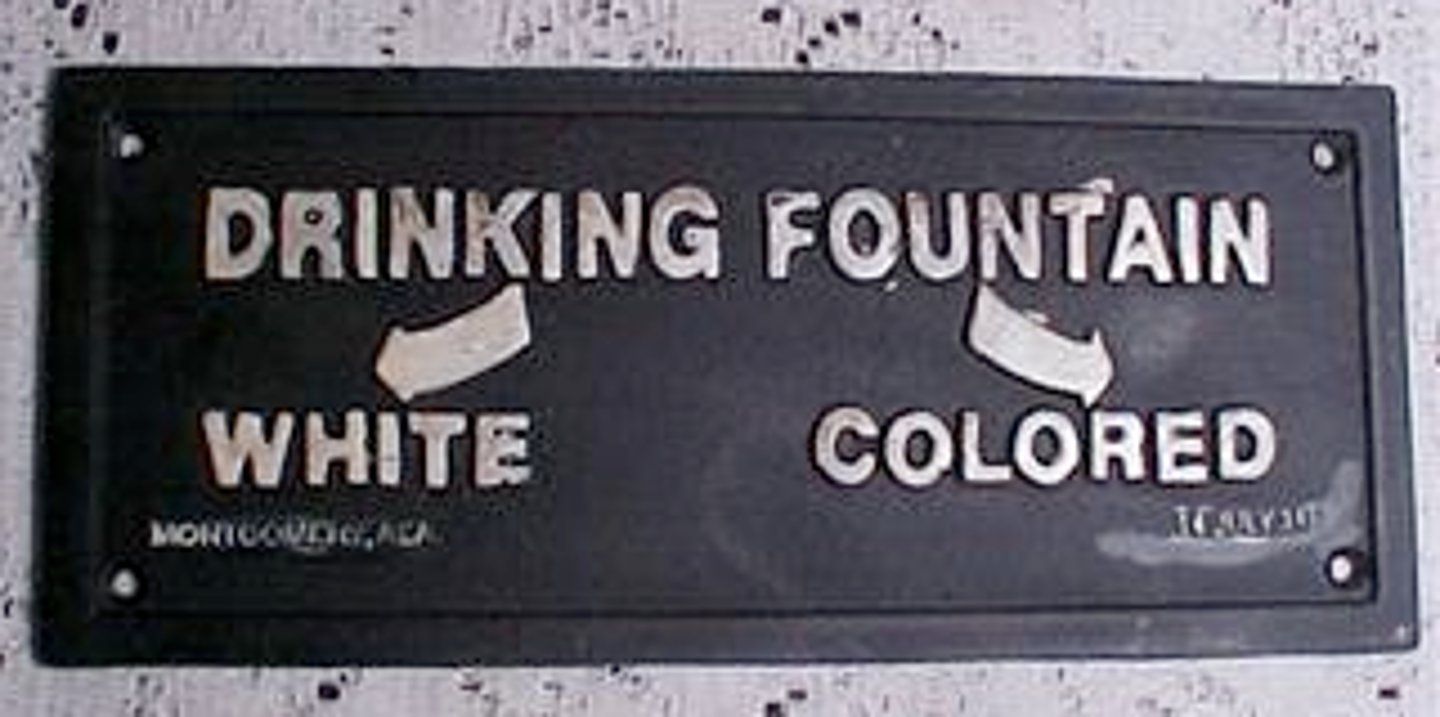
de facto segregation
a separation of individuals based on characteristics that arises not by law but because of other factors, such as residential housing patterns
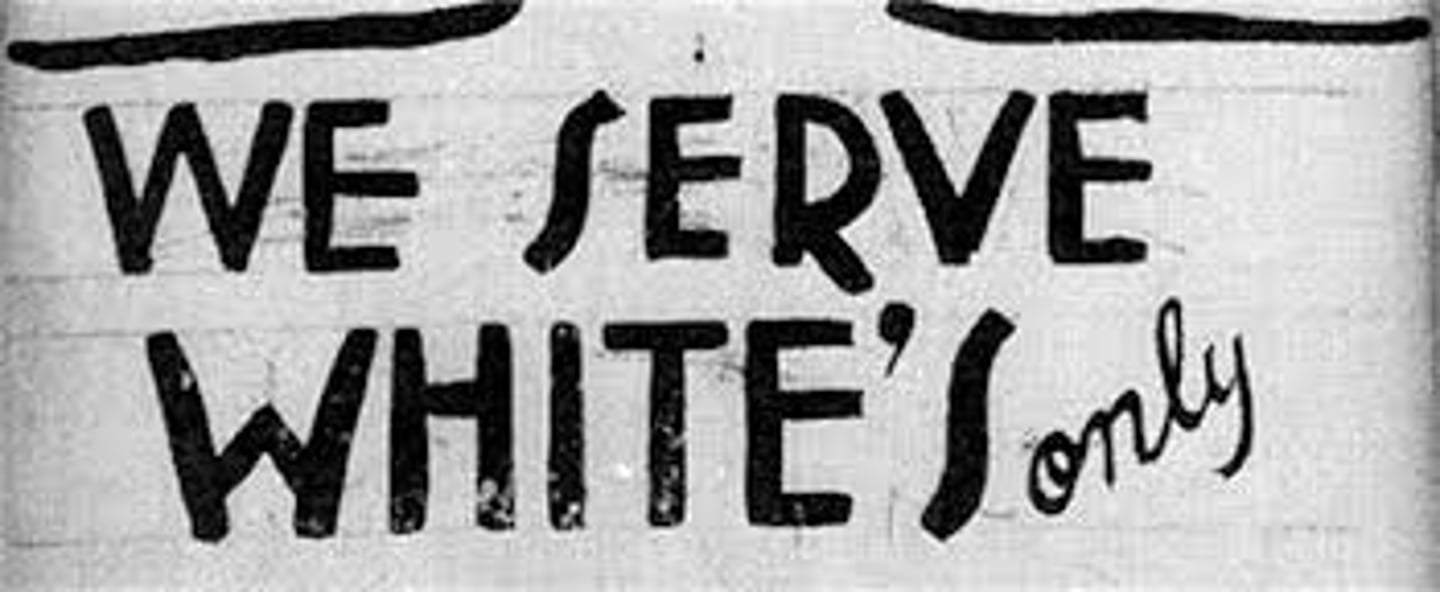
affirmative action
a policy designed to address the consequences of previous discrimination by providing special consideration to individuals based upon their characteristics, such as race or gender

civil disobedience
the intentional refusal to obey a law to call attention to its injustice
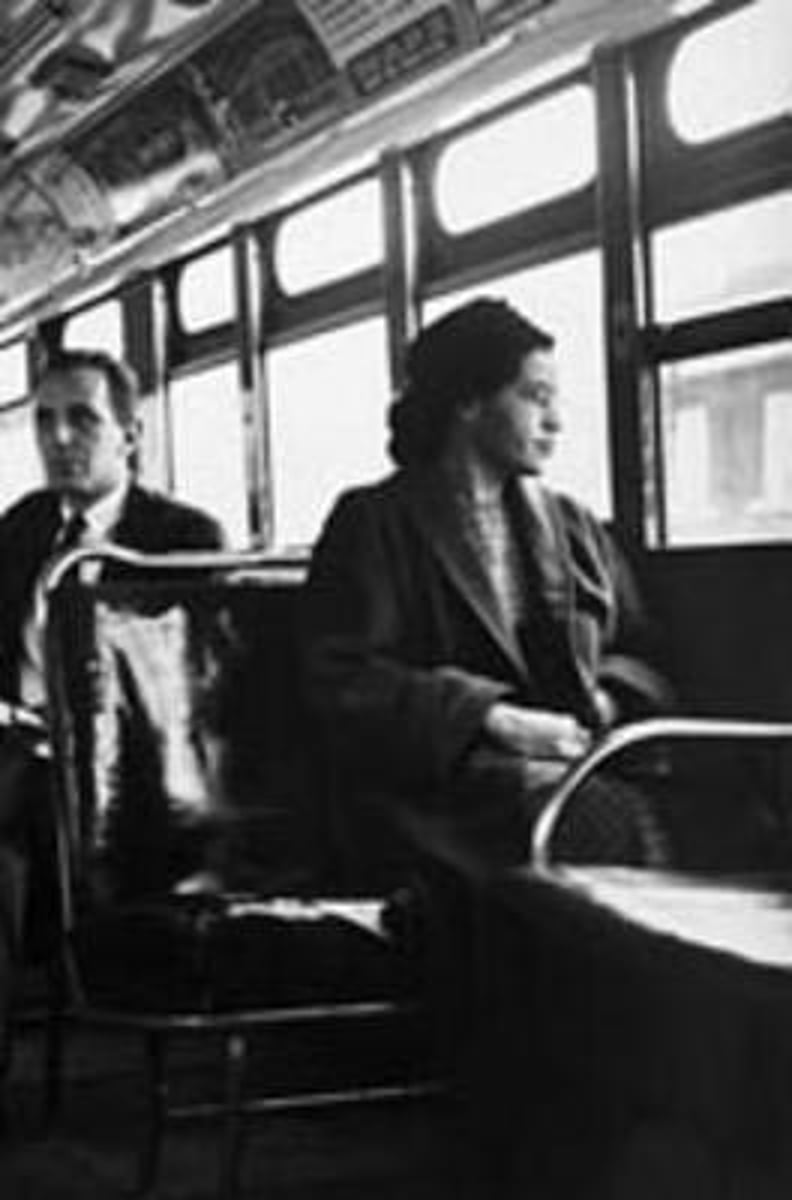
Civil Rights Act of 1964
legislation outlawing racial segregation in schools and public places and authorizing the attorney general to sue individual school districts that failed to desegregate
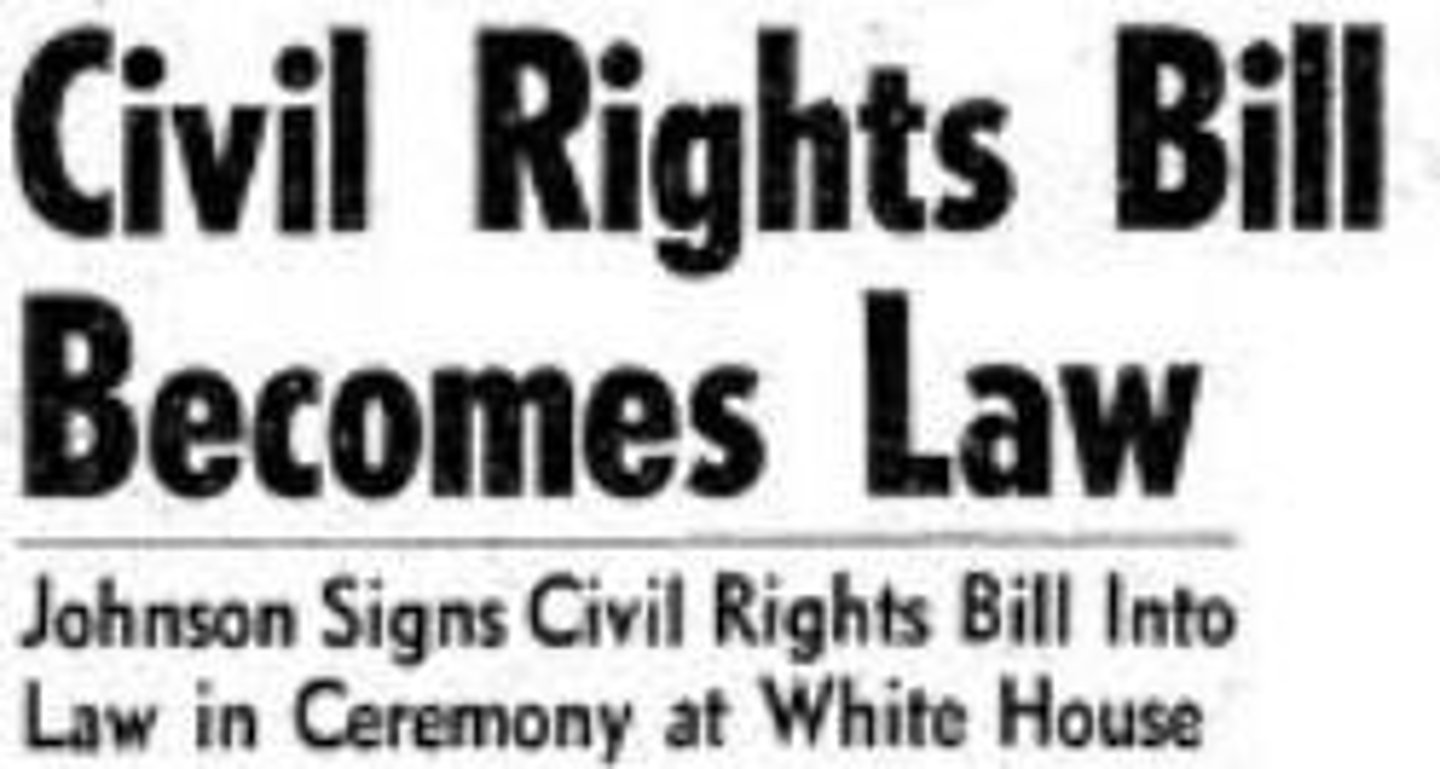
Voting Rights Act of 1965
legislation outlawing literacy tests and authorizing the Justice Department to send federal officers to register voters in uncooperative cities, counties, and states
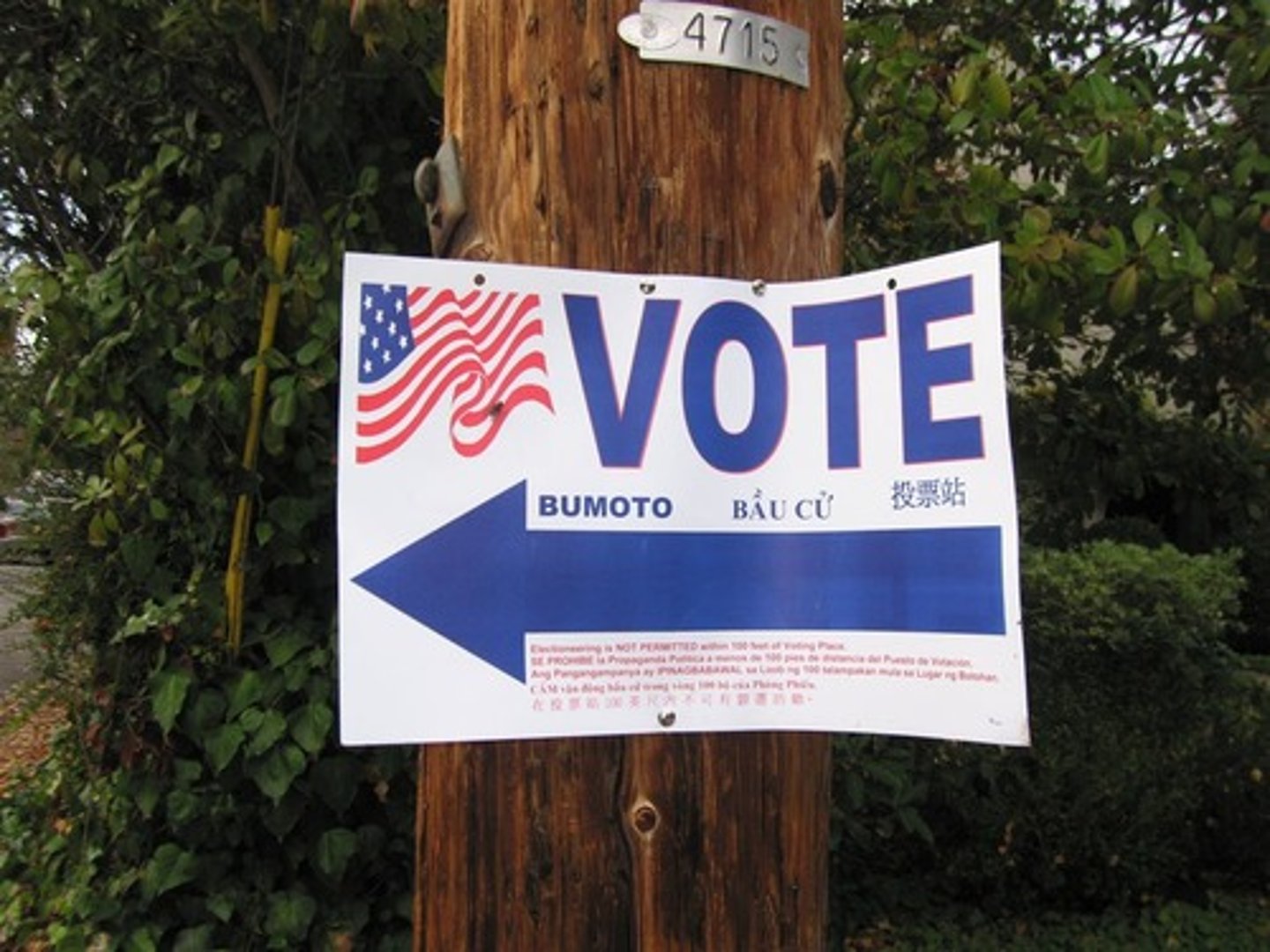
civil liberties
fundamental rights and freedoms protected from infringement by the government
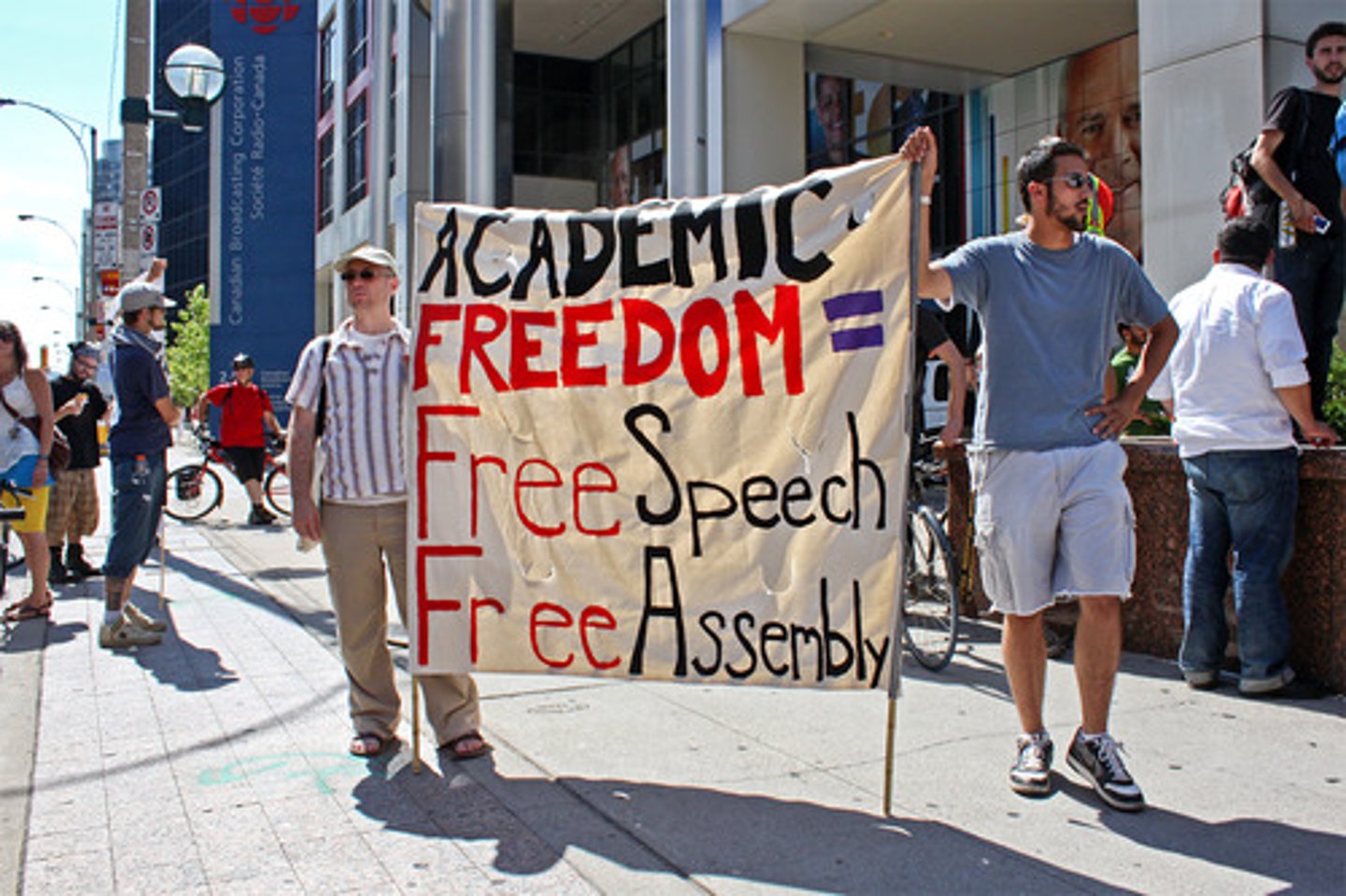
civil rights
protections from discrimination as a member of a particular group
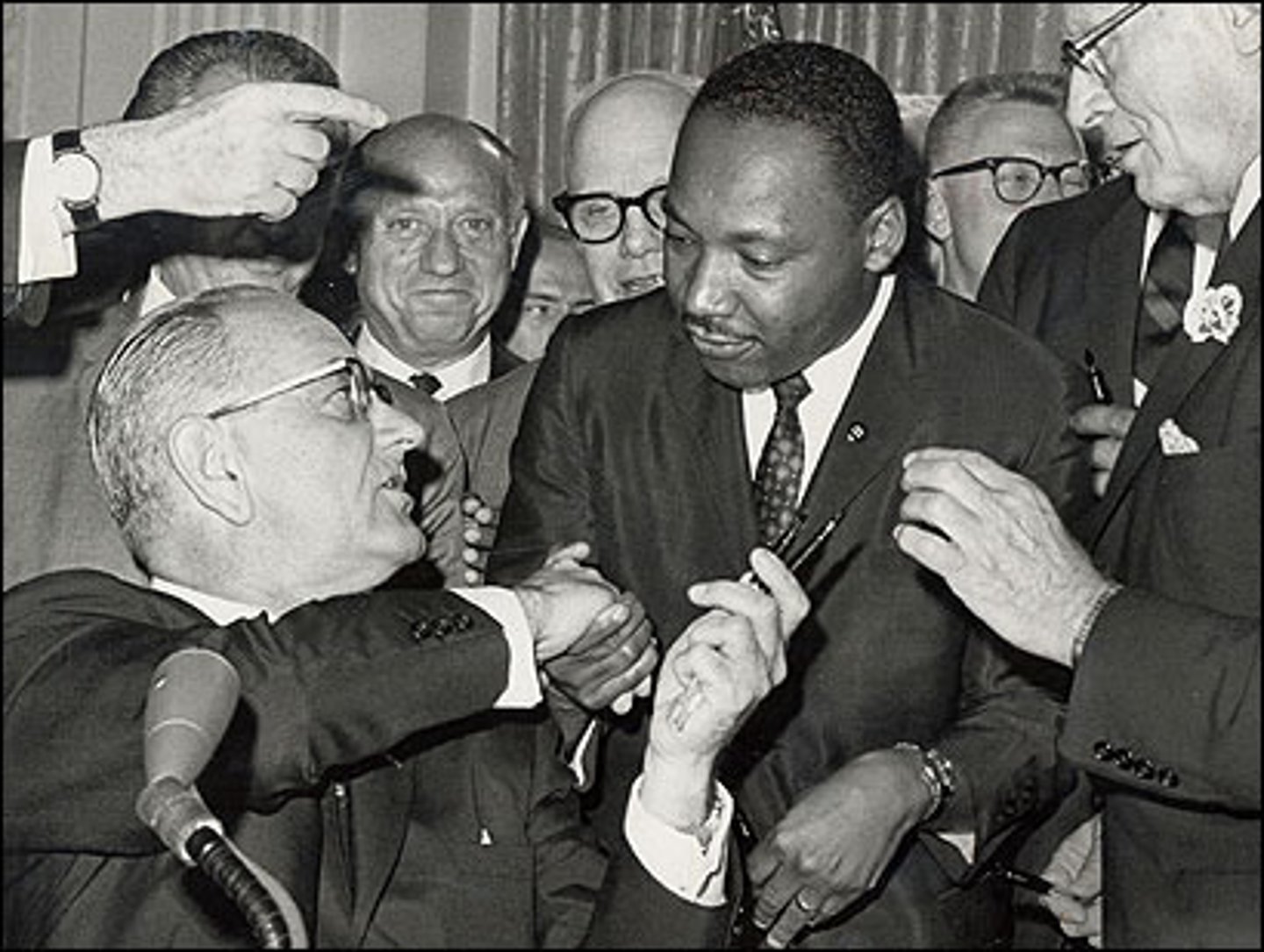
Bill of Rights
a list of fundamental rights and freedoms that individuals possess; the first ten amendments of the US Constitution
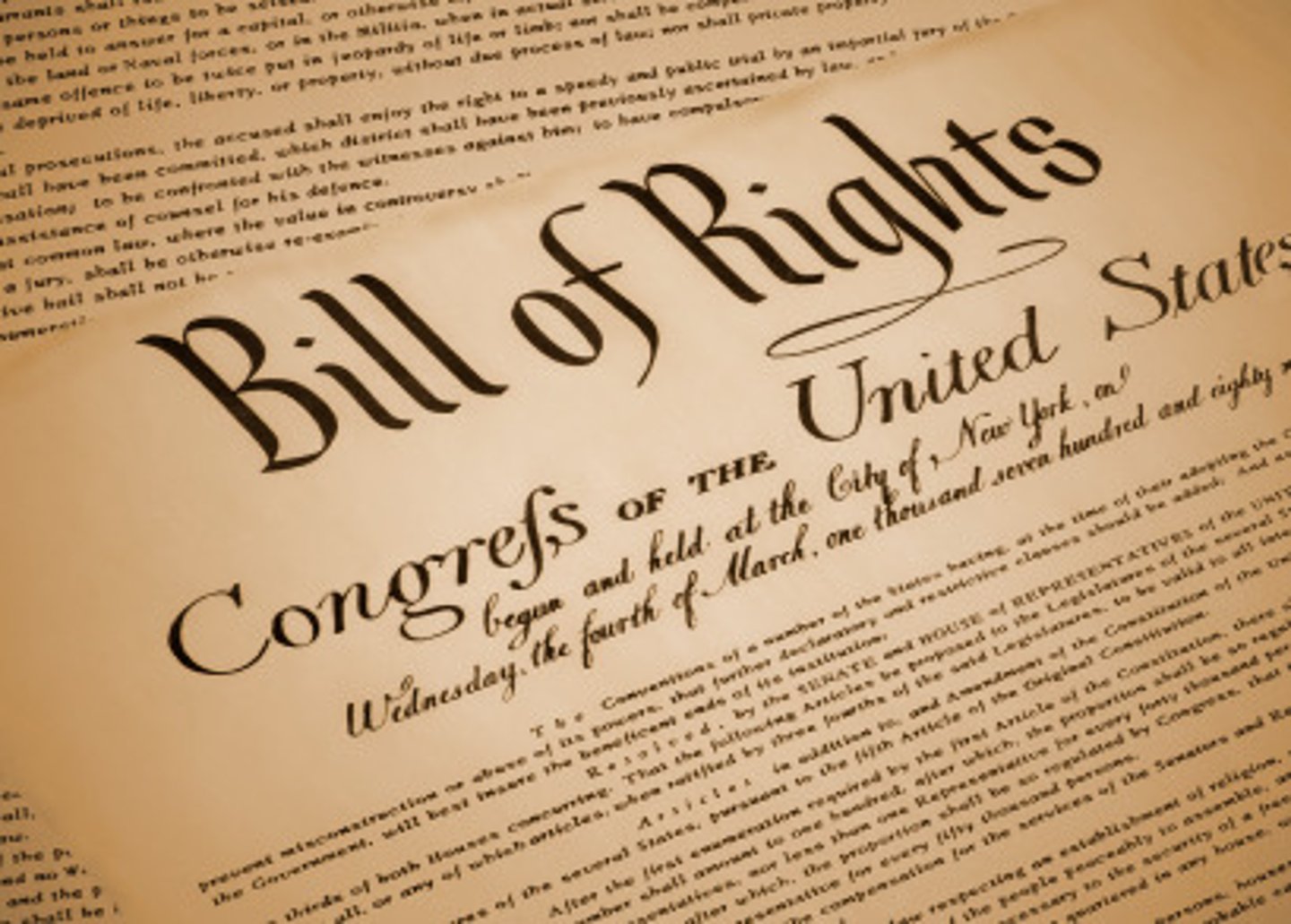
due process clause
the clause in the 14th Amendment that restricts state governments from denying their citizens their life, liberty, or property without legal safeguards
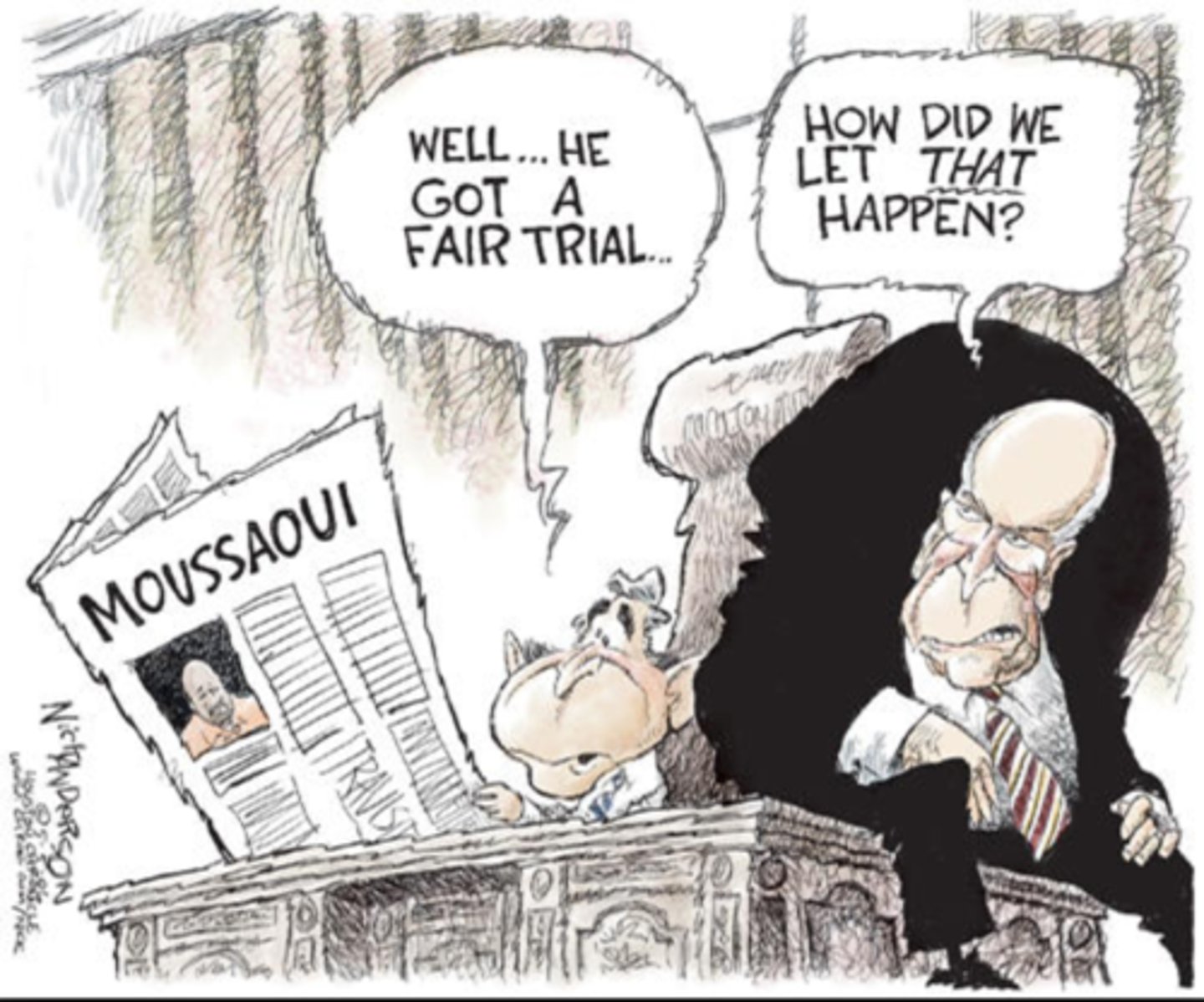
selective incorporation
the process through which the Supreme Court applies fundamental rights in the Bill of Rights to the states on a case-by-case basis
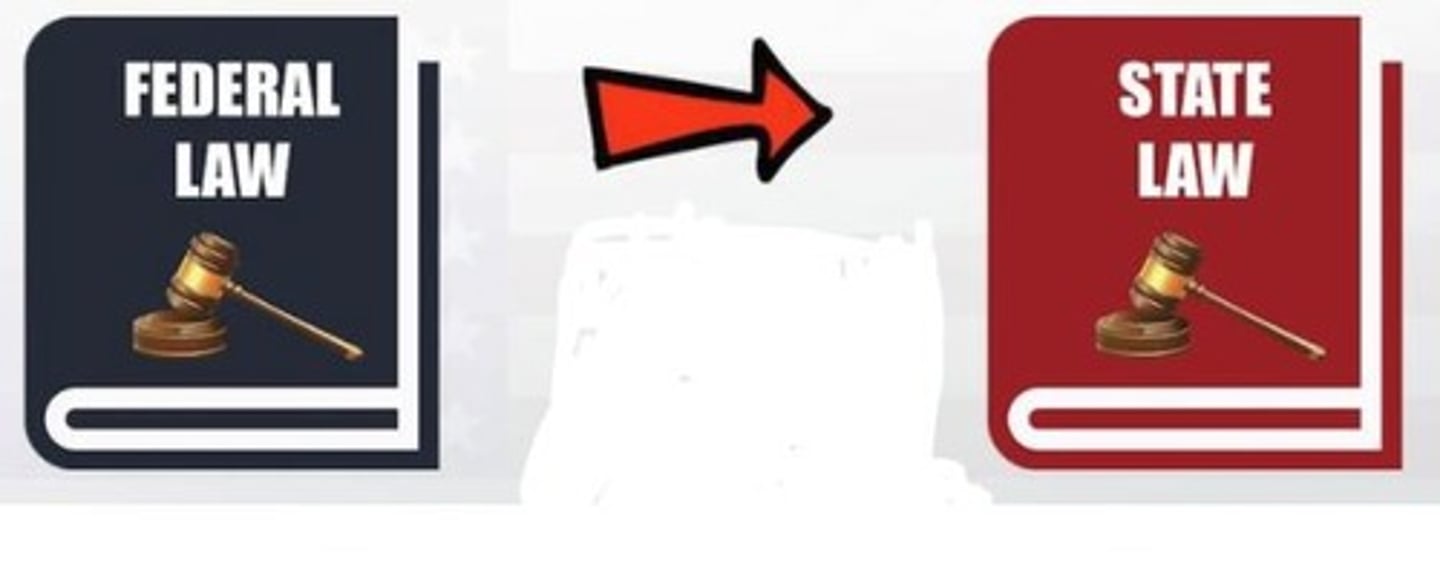
establishment clause
First Amendment protection against the government requiring citizens to join or support a religion
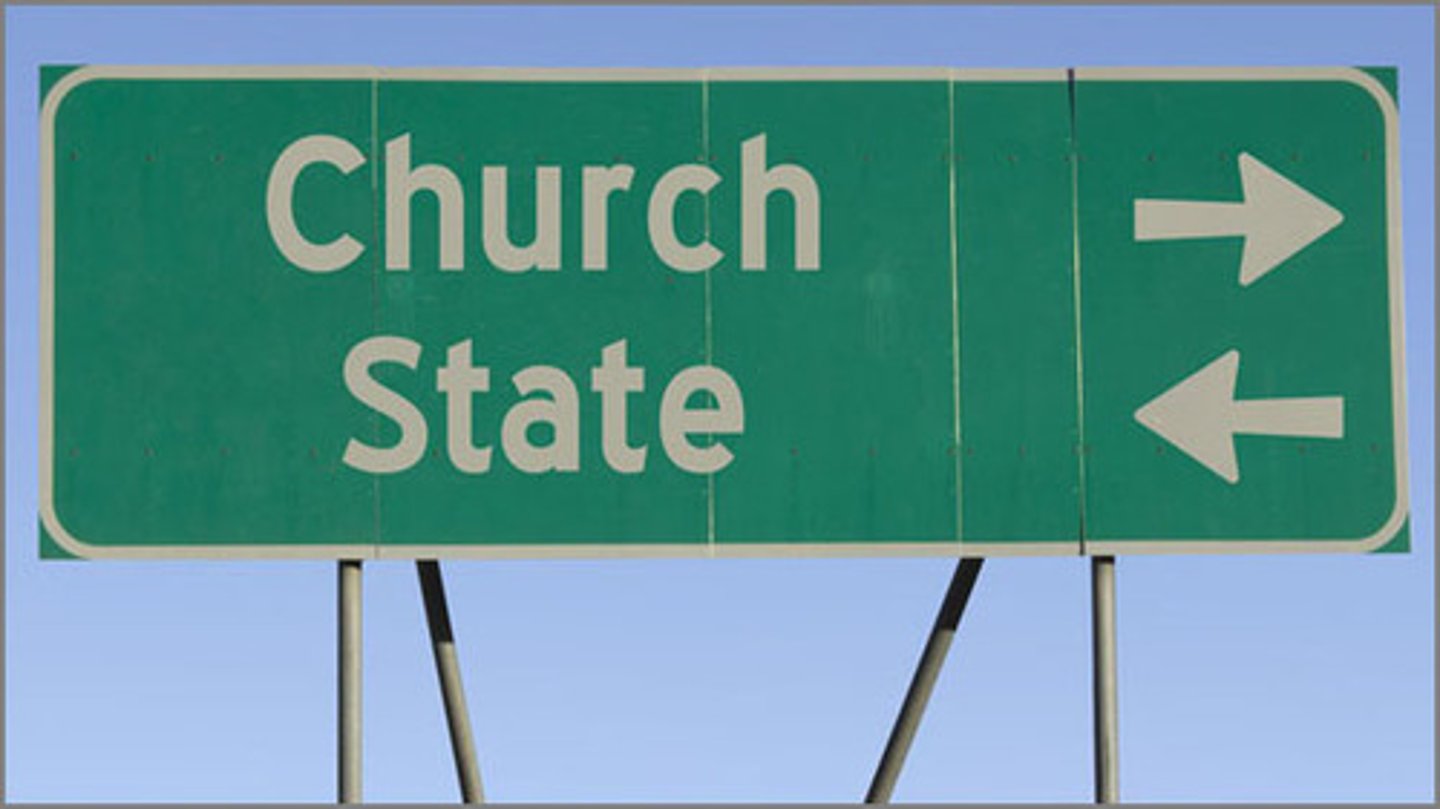
free exercise clause
First Amendment protection of the rights of individuals to exercise and express their religious beliefs
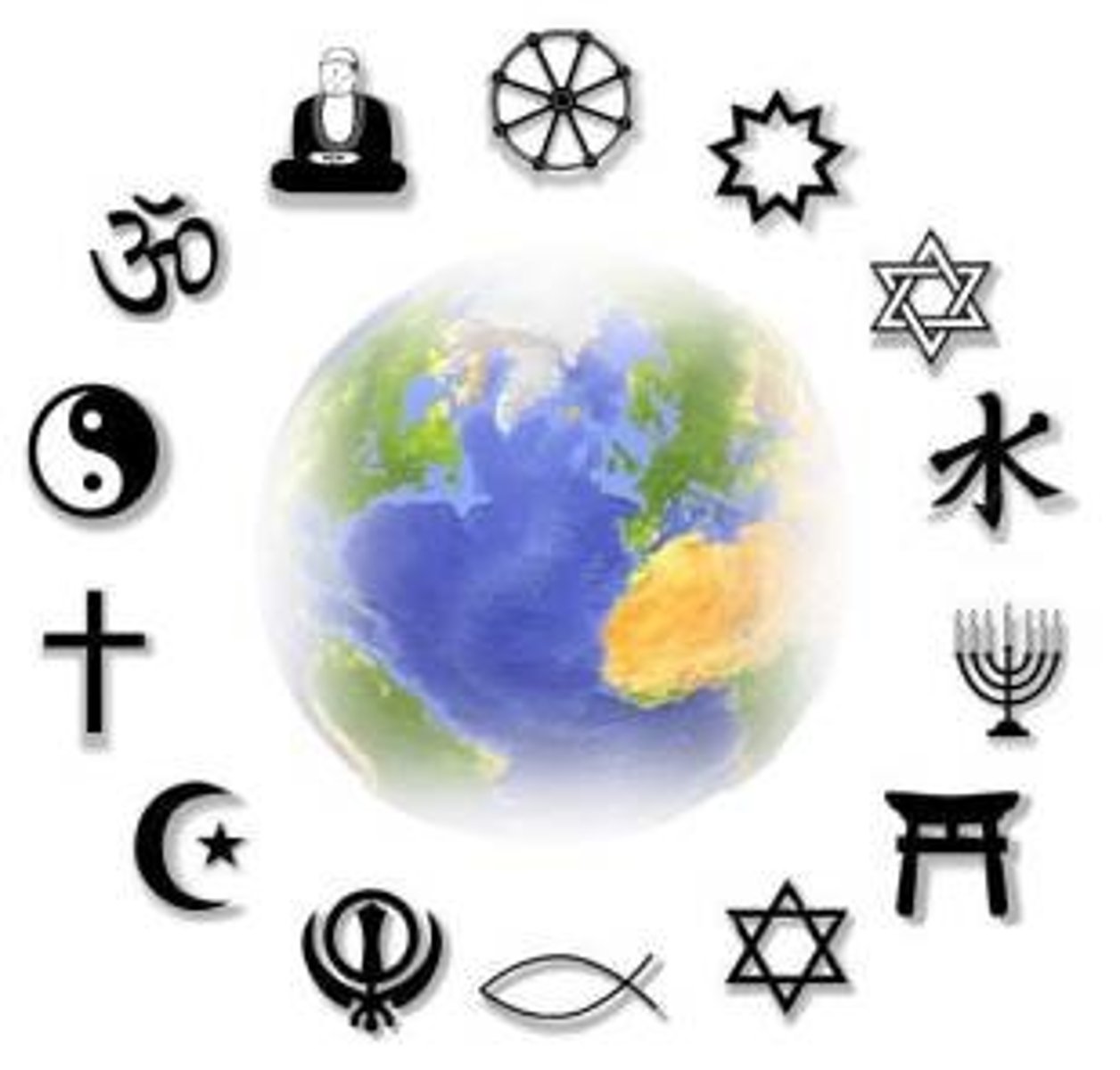
freedom of expression
a fundamental right affirmed in the First Amendment to speak, publish, and protest
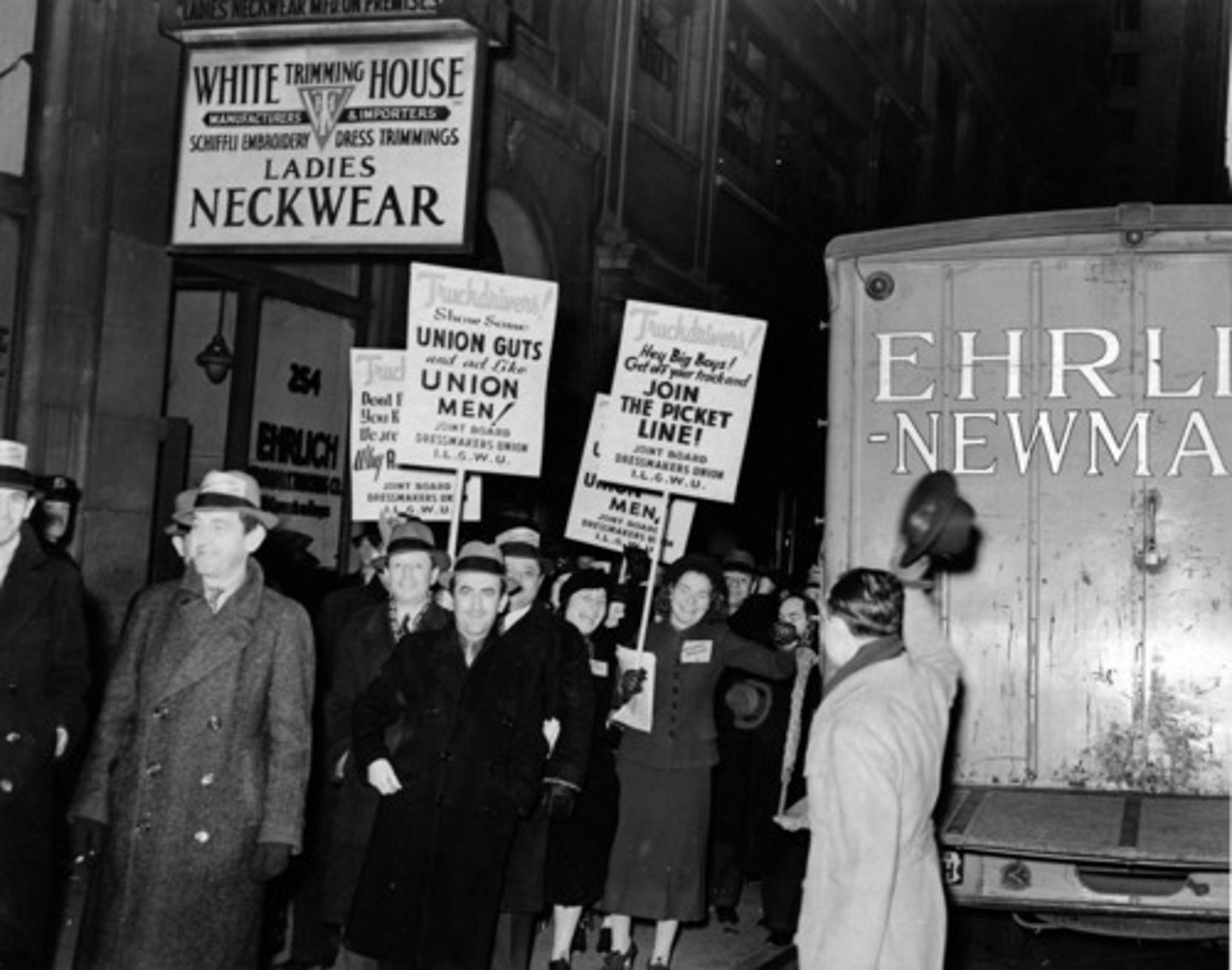
clear and present danger test
legal standard that speech posing an immediate and serious threat to national security is not protected by the First Amendment
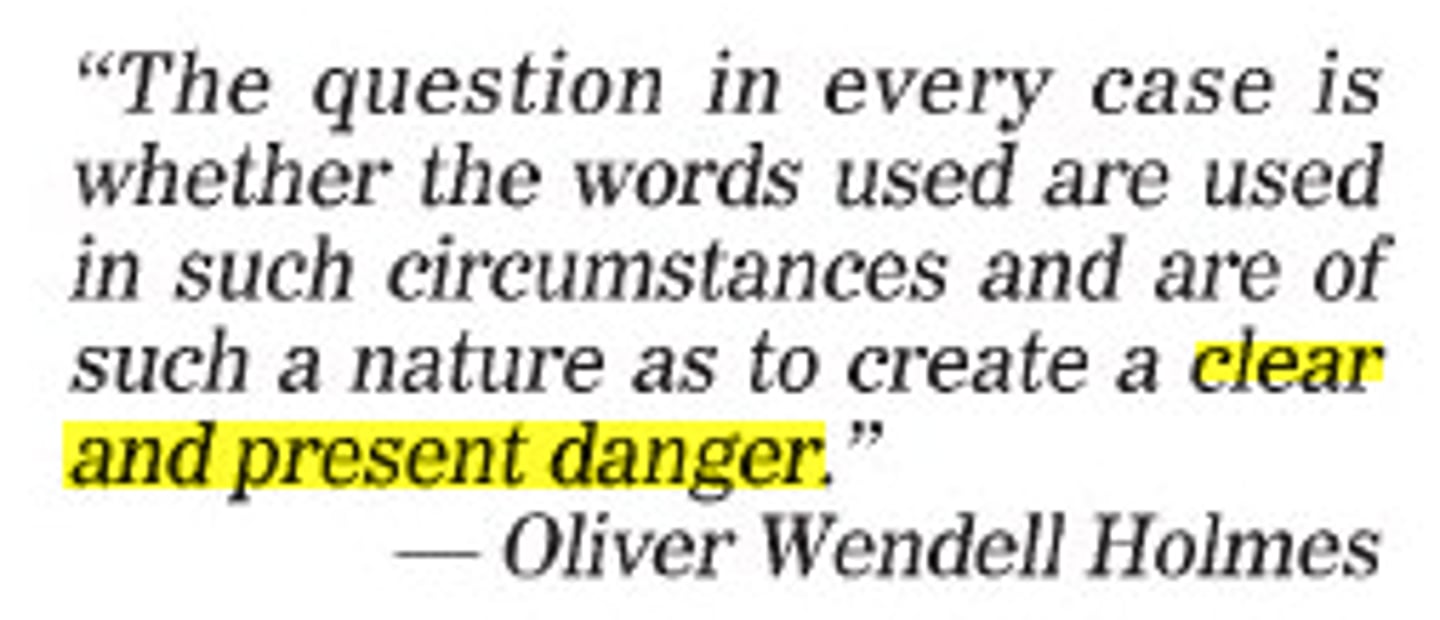
prior restraint
the suppression of material prior to publication on the grounds that it might endanger national security
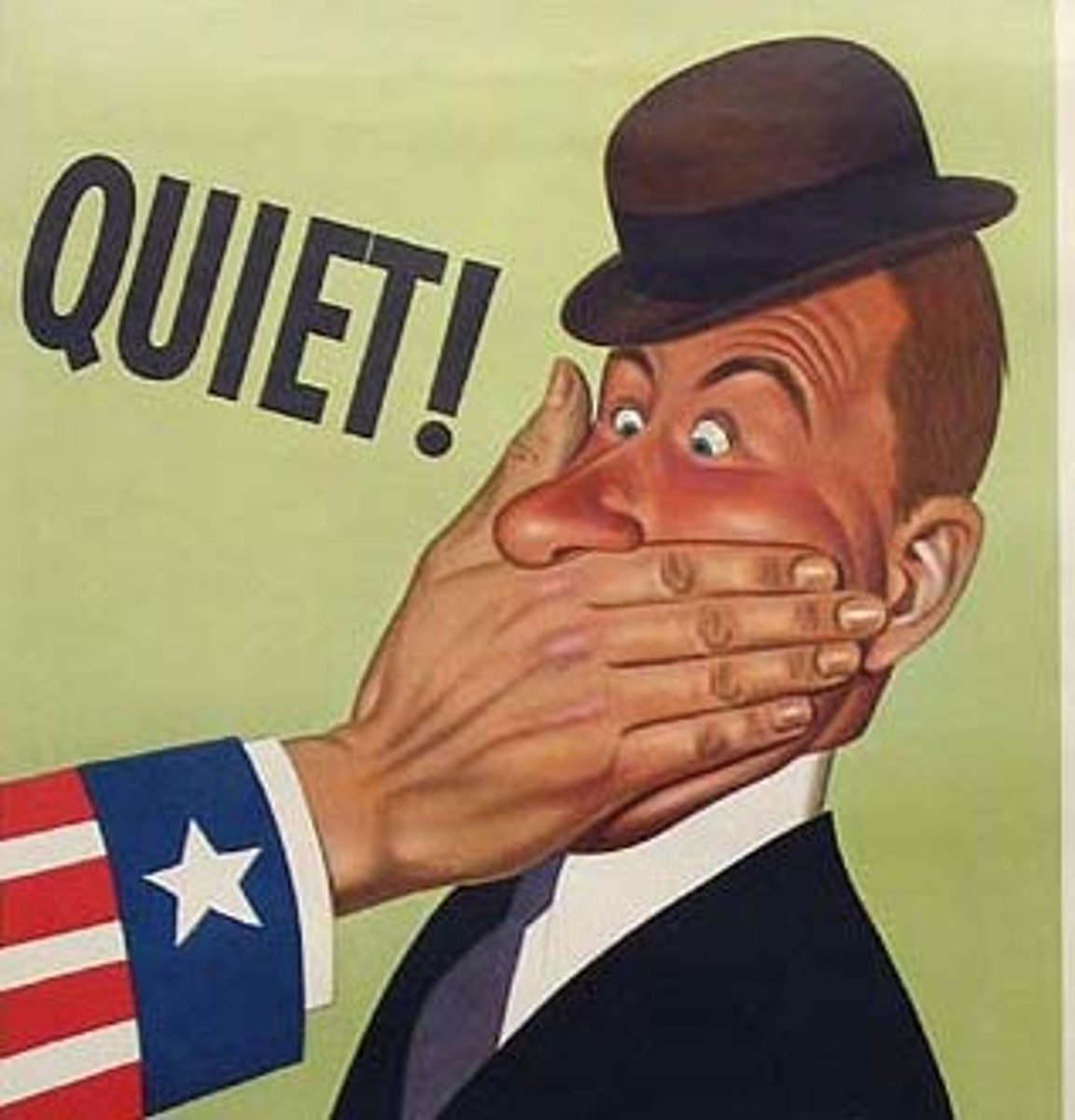
symbolic speech
protected speech in the form of images, signs, and other symbols

libel
an untrue written statement that injures a person's reputation
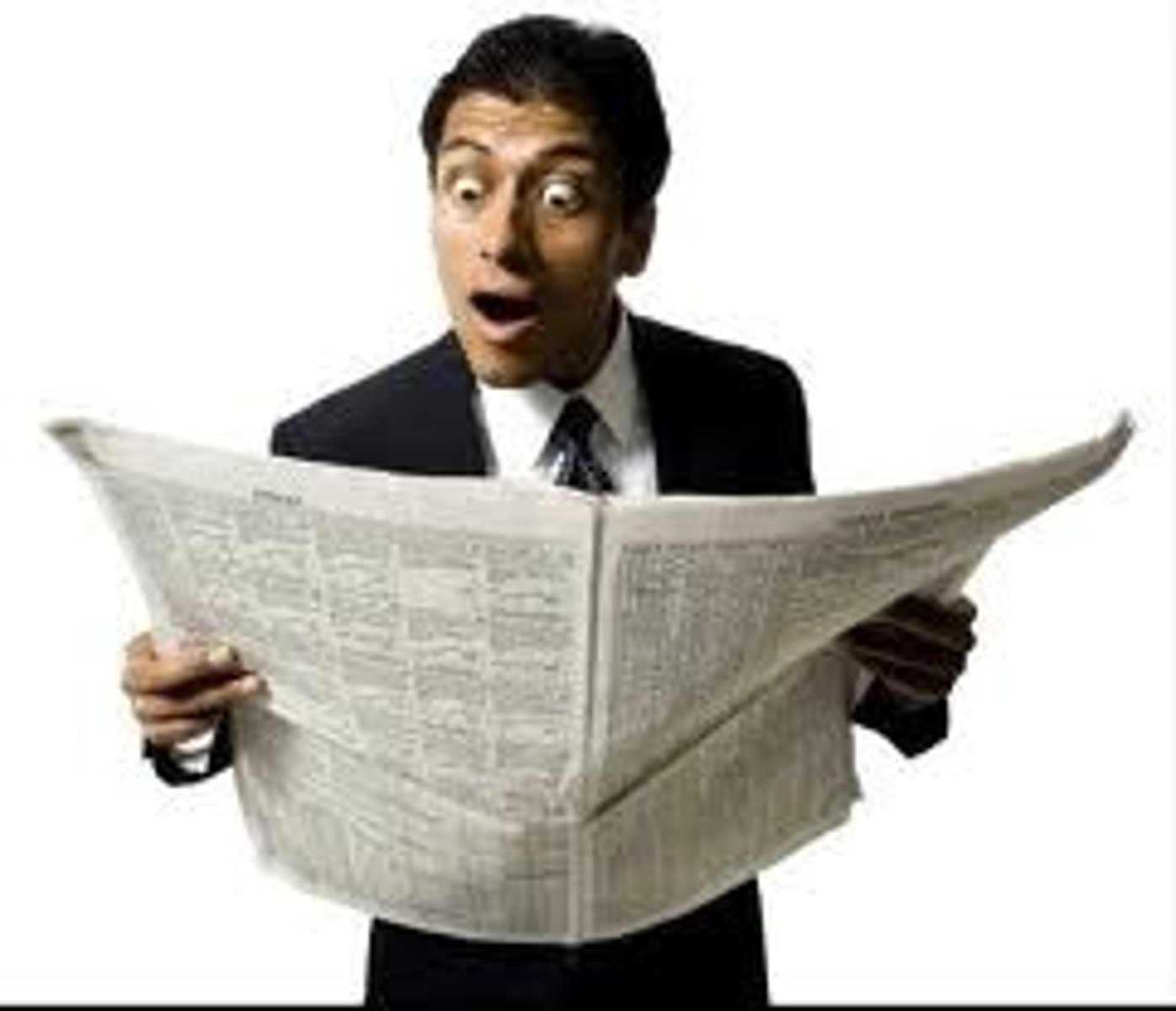
slander
an untrue spoken expression that injures a person's reputation

procedural due process
a judicial standard requiring that fairness be applied to all individuals equally
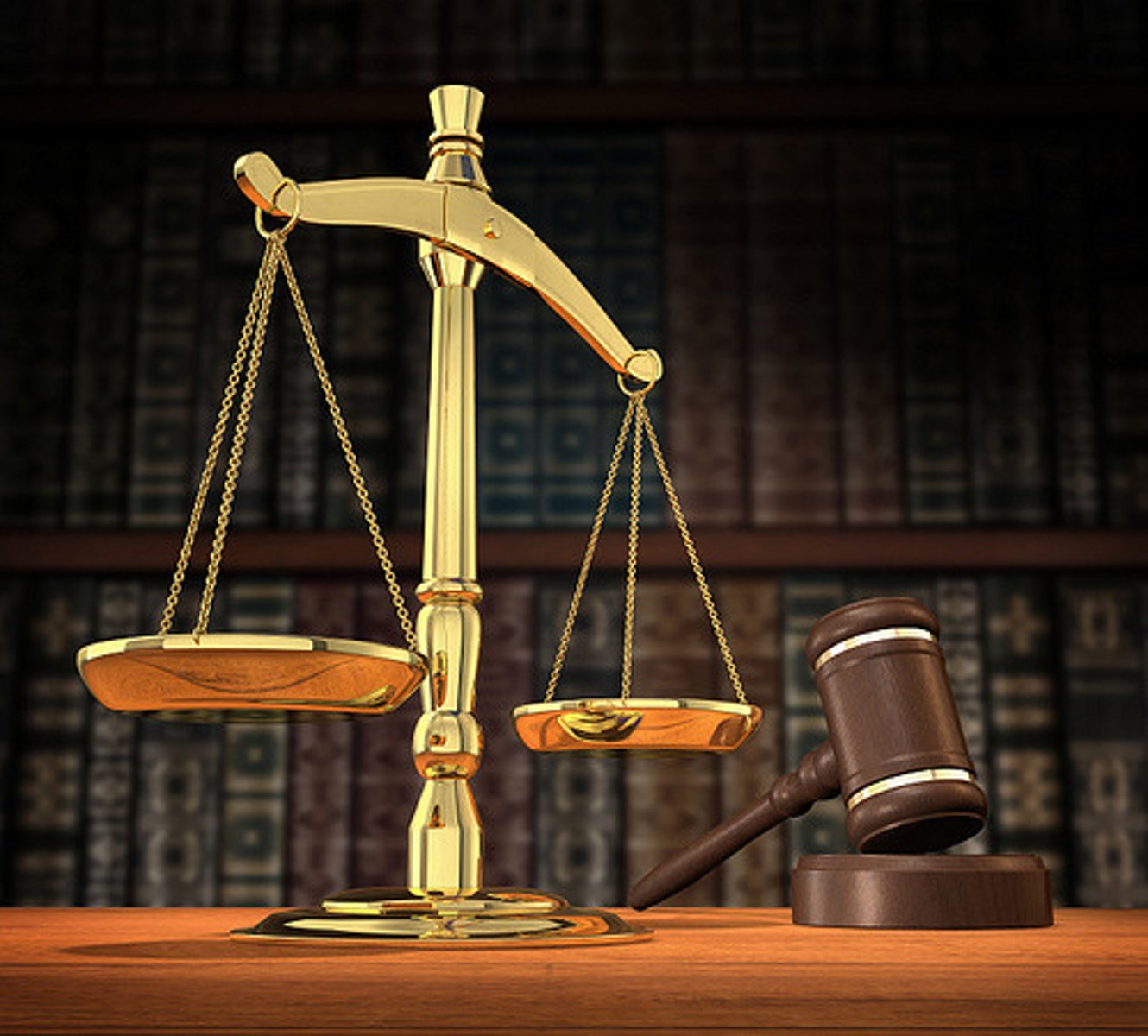
warrant
a document issued by a judge authorizing a search
